41 Best Free SEO Tools
Written by Brian Dean
![25 AMAZING Free SEO Tools [2020 Reviews]](png/best-free-seo-tools.png)
This is a list of the 41 best free SEO tools on the planet.
In fact, these tools have helped my site get 500k+ visitors per month.
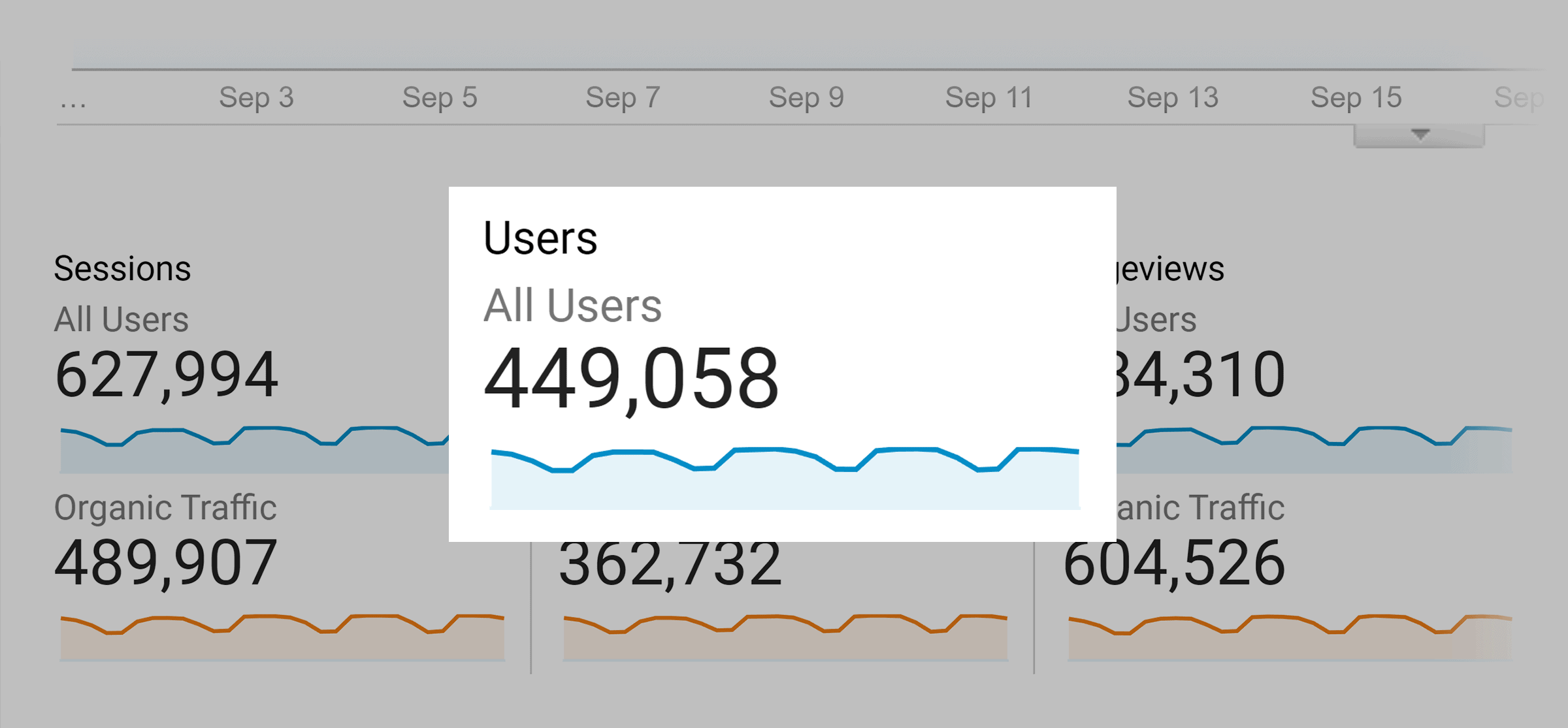
(Most of which came from SEO.)
The best part?
All of these tools work GREAT in 2024.
Let’s get started…
1. Semrush
To get the full version of Semrush you need to pay.
But, you can use some of the best tools it has to offer for free.
One of my favorite Semrush tools is the Keyword Magic Tool.
If you sign up for a free Semrush account you get 10 credits per day for this tool.
Pretty neat.
You can also use our free keyword research tool, powered by the Semrush
For definitive, relevant, and effective keyword research, just log into your free account and click on the Keyword Magic Tool tab.
Then, type in the keyword you want to research, select your region and hit the search button.
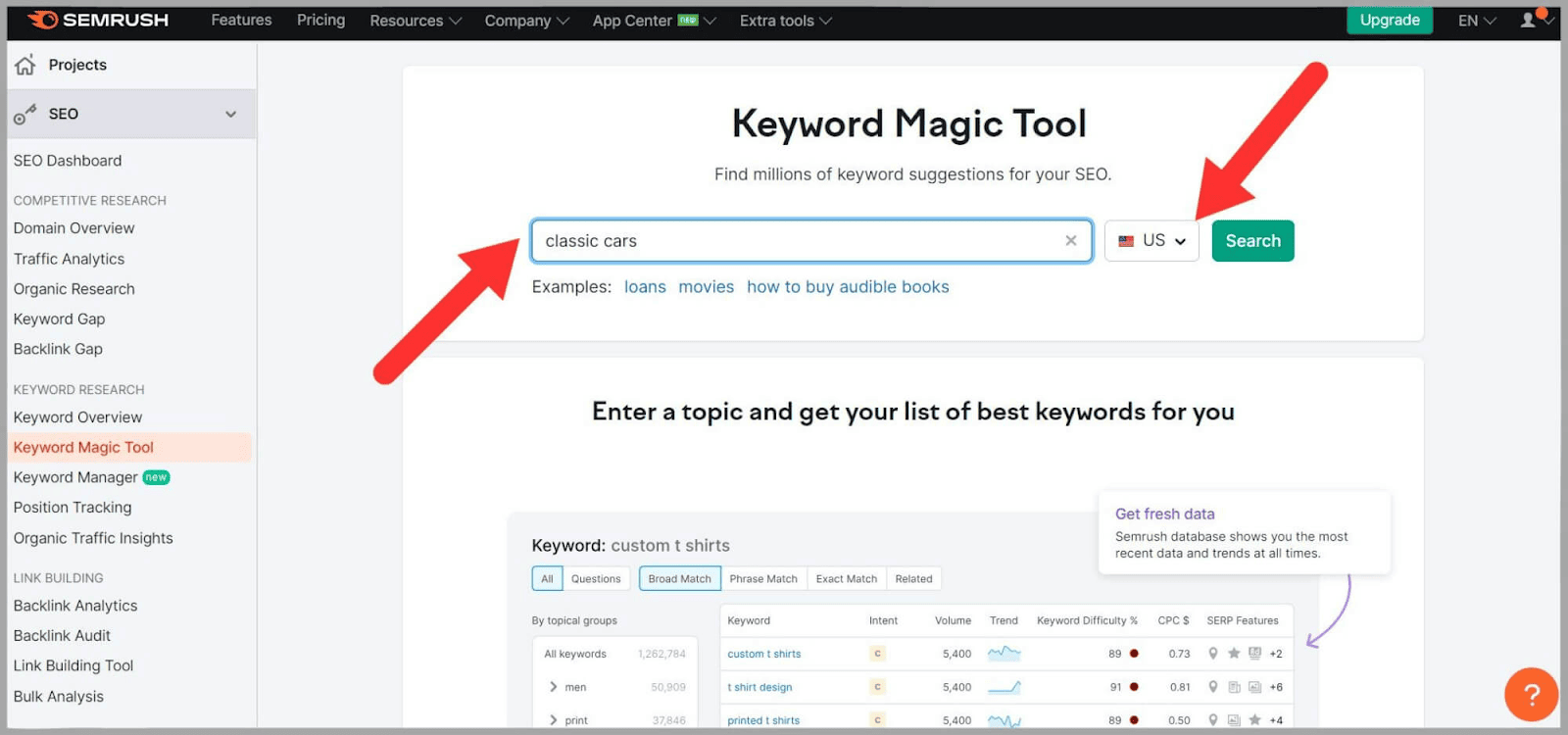
You will then get a list of related keywords.
It also shows you some really handy information like search volume and keyword difficulty.
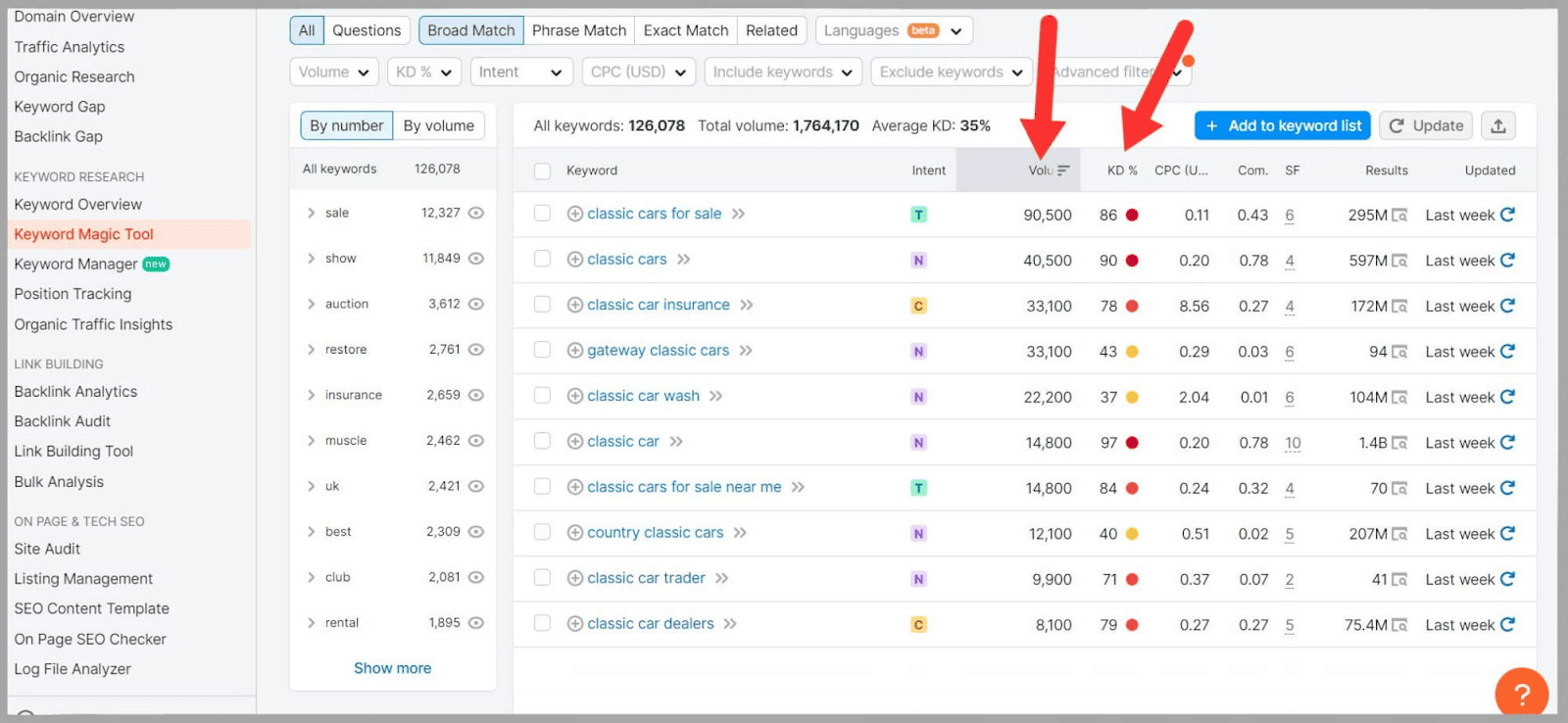
But that’s not all you can do with your free Semrush account.
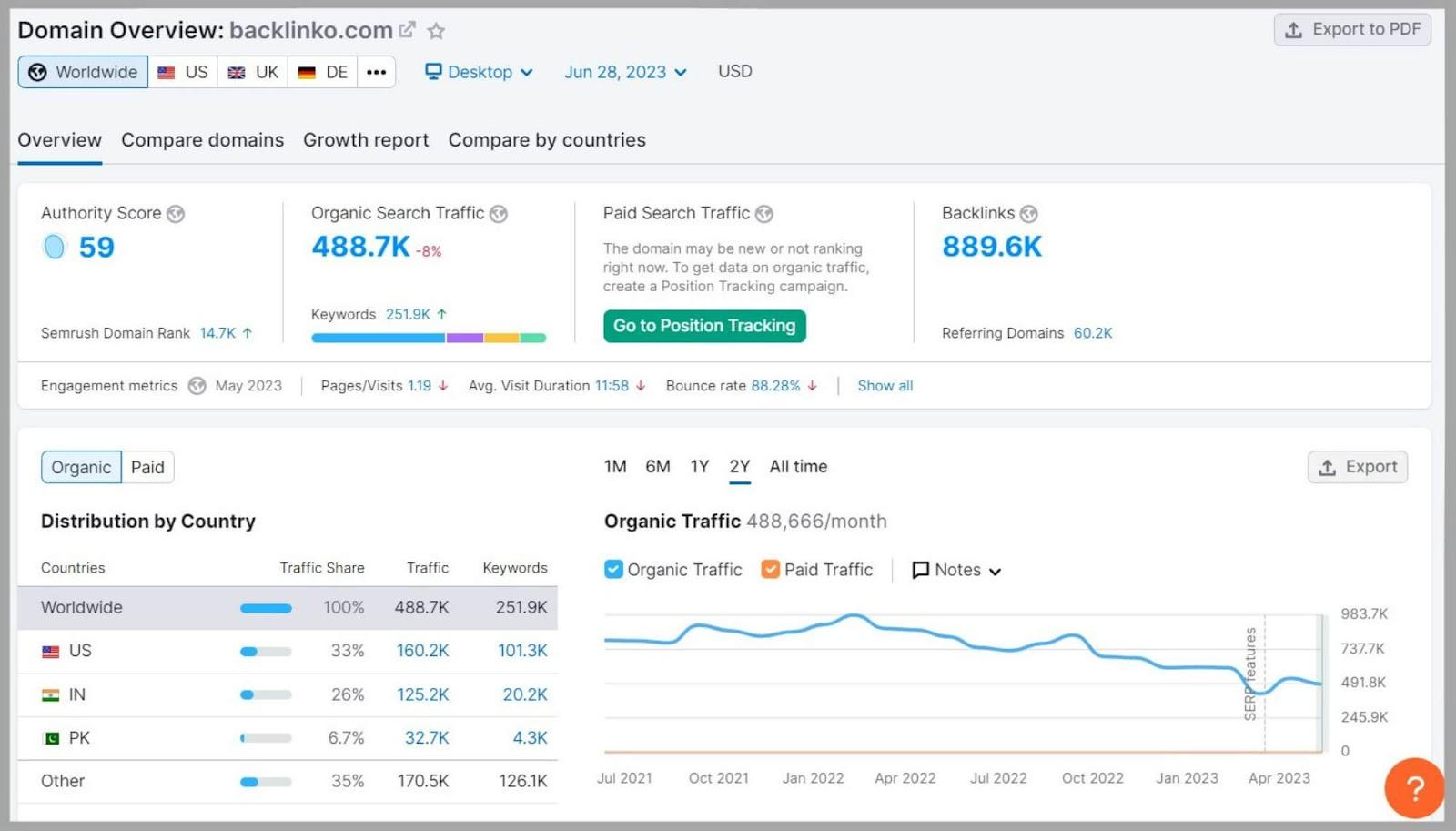
You also have access to:
- The Position Tracking tool
- The Site Audit tool
- The Listing Management tool
- The Semrush Copilot AI
- SEO Content Templates
- The SEO Writing Assistant
- The On-Page SEO Checker
- The Social Media Toolkit
- The Keyword Overview Tool
- The Domain Overview Too
All without paying a dime.
Just bear in mind that a free Semrush account does mean you’re limited to a fairly small amount of credits each day.
You get 10 searches each day for all of the domain analytics and keyword research tools.
But, that doesn’t mean 10 searches per day, per tool.
For example, let’s say you analyzed a domain with the Domain Overview tool and then performed a search with the Keyword Overview tool.
That would count as two out of your 10 credits for the day.
If you’re a little confused, Semrush’s free account guide explains it all in great detail.
Editor’s Note: Check out Backlinko’s free SEO tools, powered by Semrush, right now.
2. Answer The Public
Find 150+ keyword ideas in seconds.
Most SEO tools get their data from the same place: The Google Keyword Planner.
Answer the Public is different.
This awesome tool finds questions that people ask on forums, blogs and on social media.
And it turns those questions into awesome keywords:

Best Feature: “Vs. Keywords”
You’d be surprised how many people search for “X vs. Y” keywords in Google.
(For example: “iPhone vs. Android” or “SEMRush vs. Ahrefs”.)
And Answer the Public has a section of the results dedicated to “Vs. Keywords”.
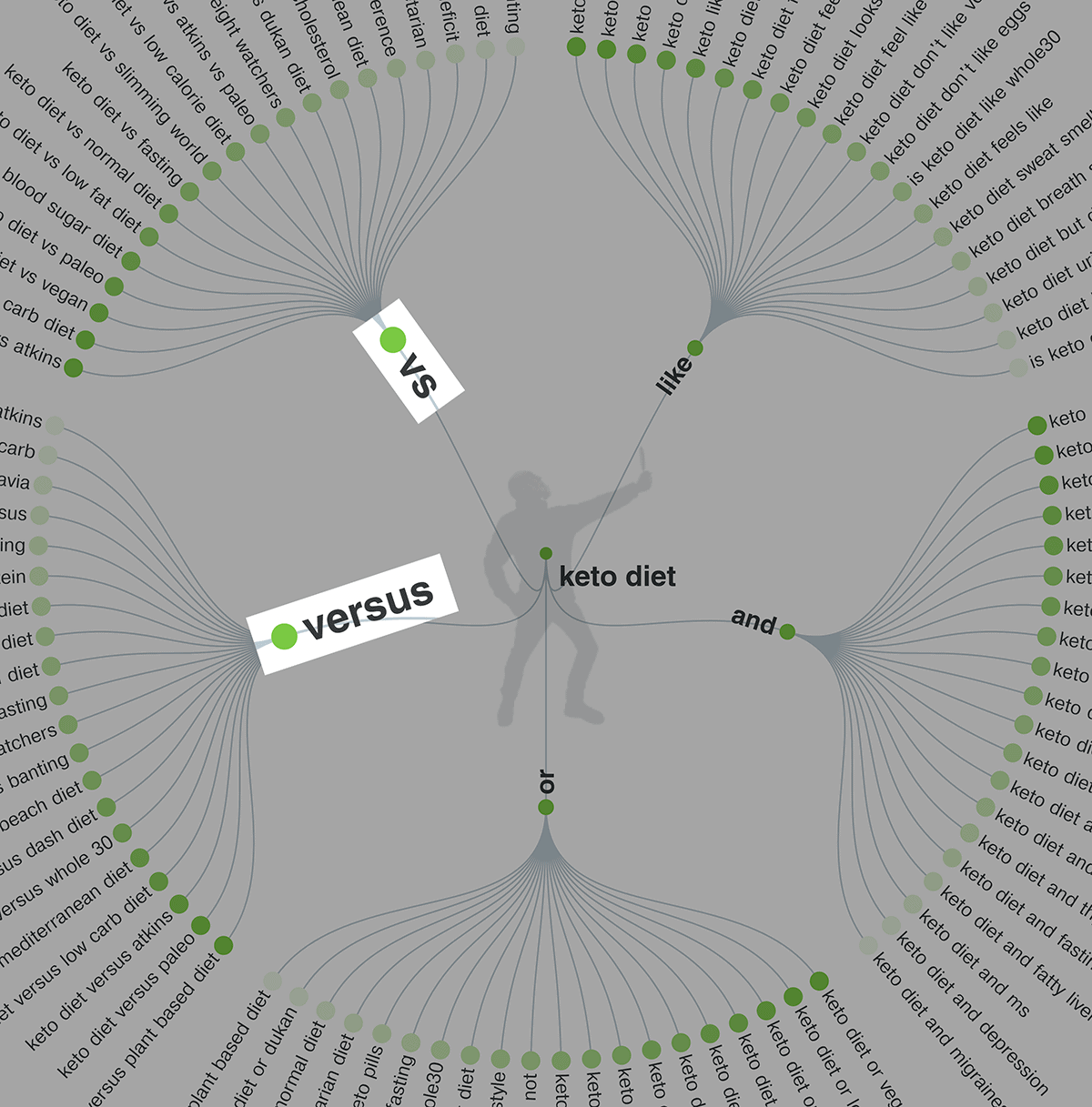
This brings us to the 3rd tool on our list…
3. Woorank’s SEO & Website Analysis Tool
Get a list of SEO improvements in seconds.
This is a very handy Chrome extension.
First, you get an overall SEO score.
Then, the tool shows you EXACTLY how to improve your site’s on-page and off-page SEO.
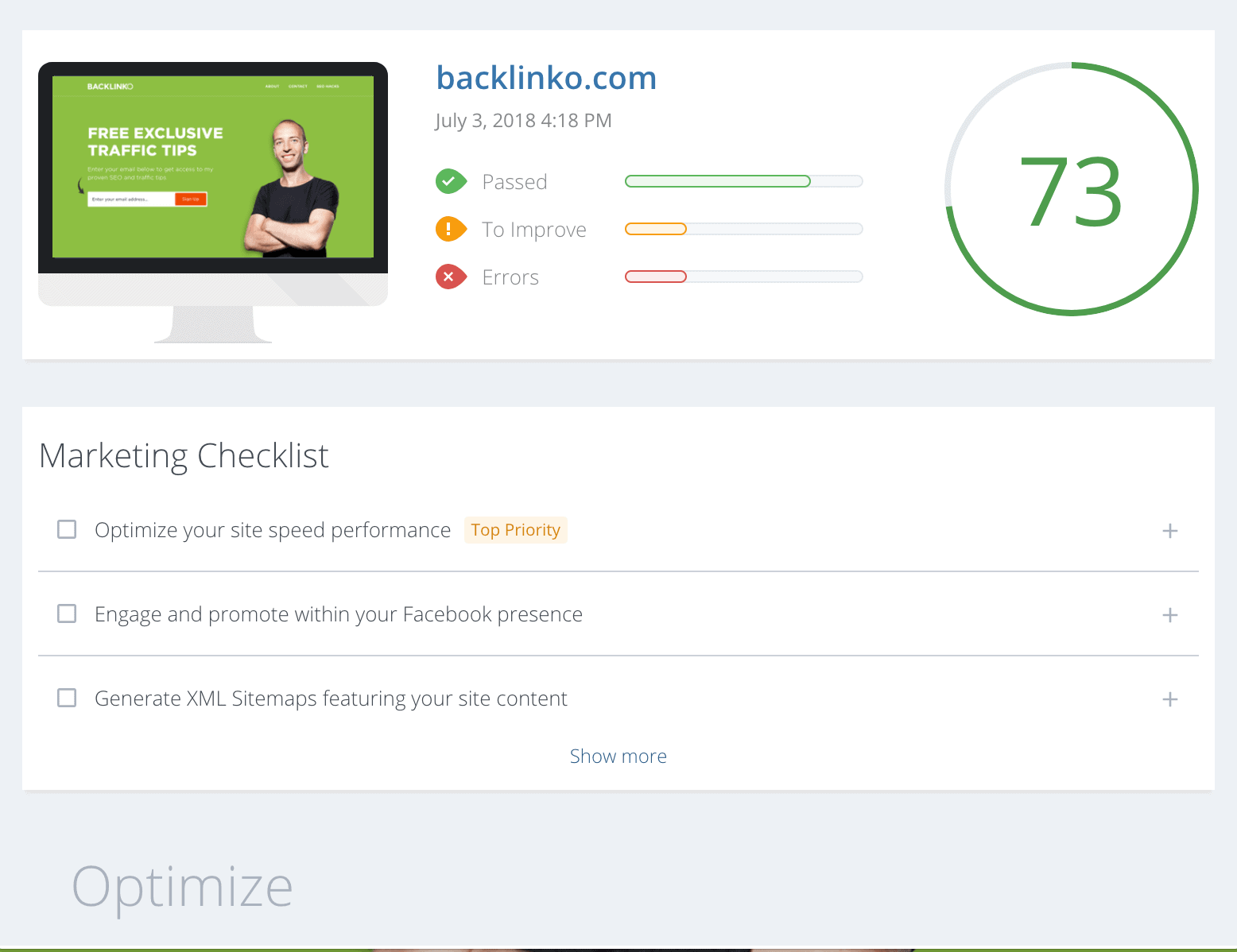
Best Feature: “Marketing Checklist”
Most SEO tools only tell you about problems… not solutions.
But with Woorank you get a detailed SEO checklist that you can use to fix any issues that you run into.

And now it’s time for our next free SEO tool…
4. Animalz Revive
Improve and update old content.
Animalz Revive helps you find older content on your site that needs an update, an upgrade… or both.
Before this tool, you had to manually comb through your Google Analytics account to find these pages.Which was a giant pain.
Fortunately, this tool tells you exactly which articles on your site need the most attention.
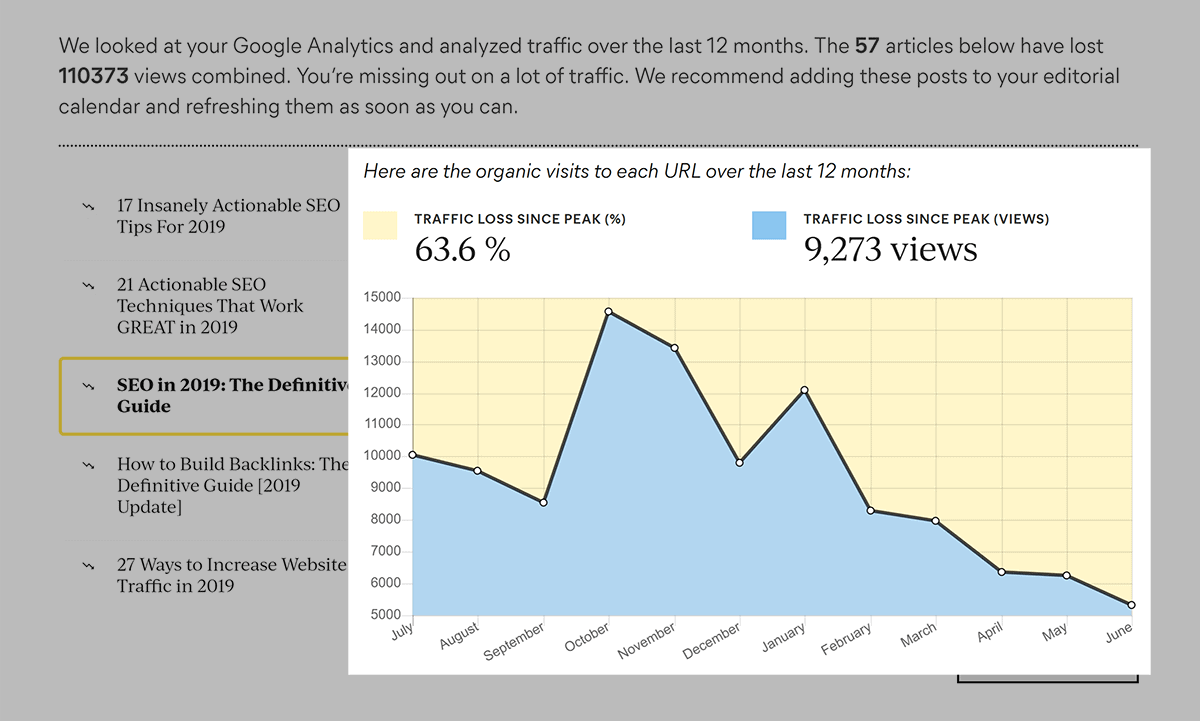
Best Feature: “Traffic Loss Since Peak (Views)”
This feature lets you know exactly how many visitors that a piece of outdated content is costing you.
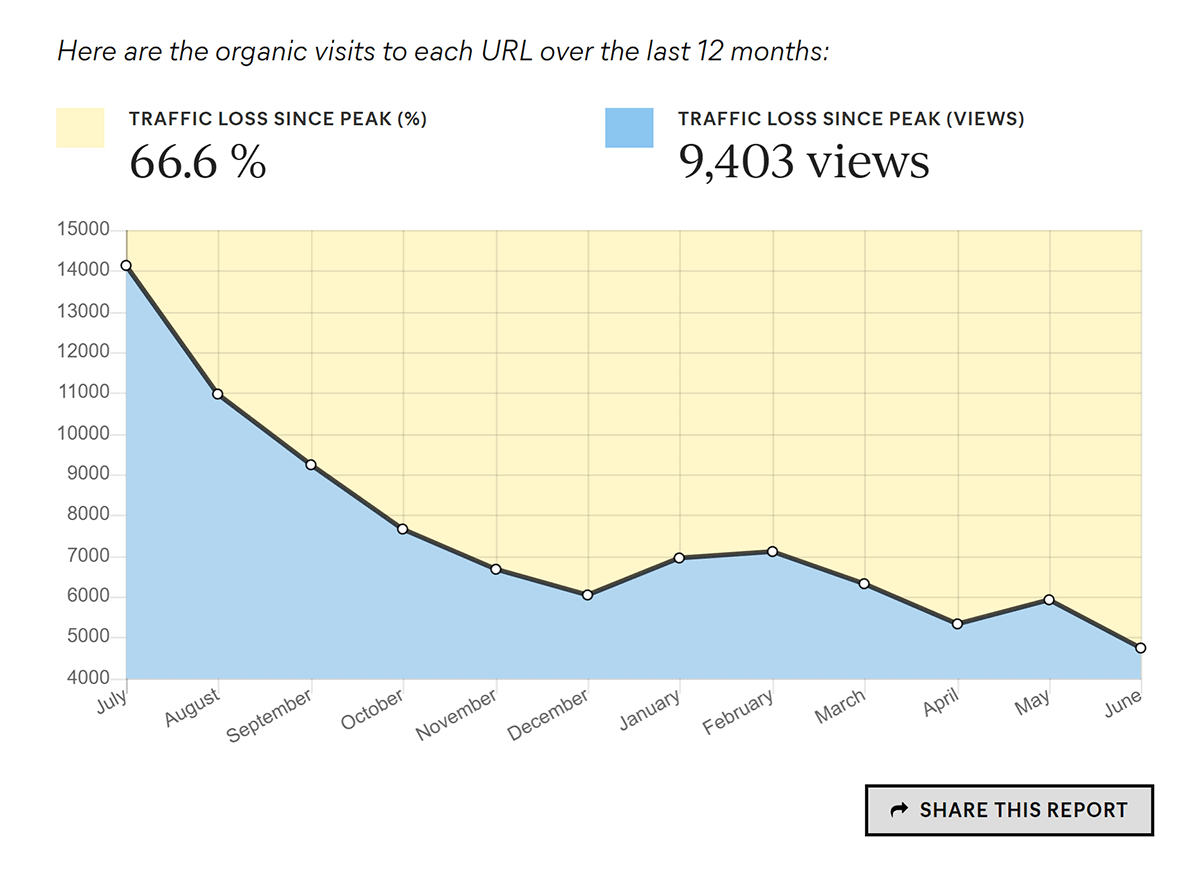
5. CanIRank
Quickly answer the question: “Can I rank for this keyword?”.
CanIRank is a super-detailed keyword difficulty tool.
And unlike most free SEO tools, CanIRank doesn’t give you generic advice like:
“This keyword is really competitive”
Or
“This keyword has low competition”
Instead, it tells you whether or not YOU can rank for that keyword.
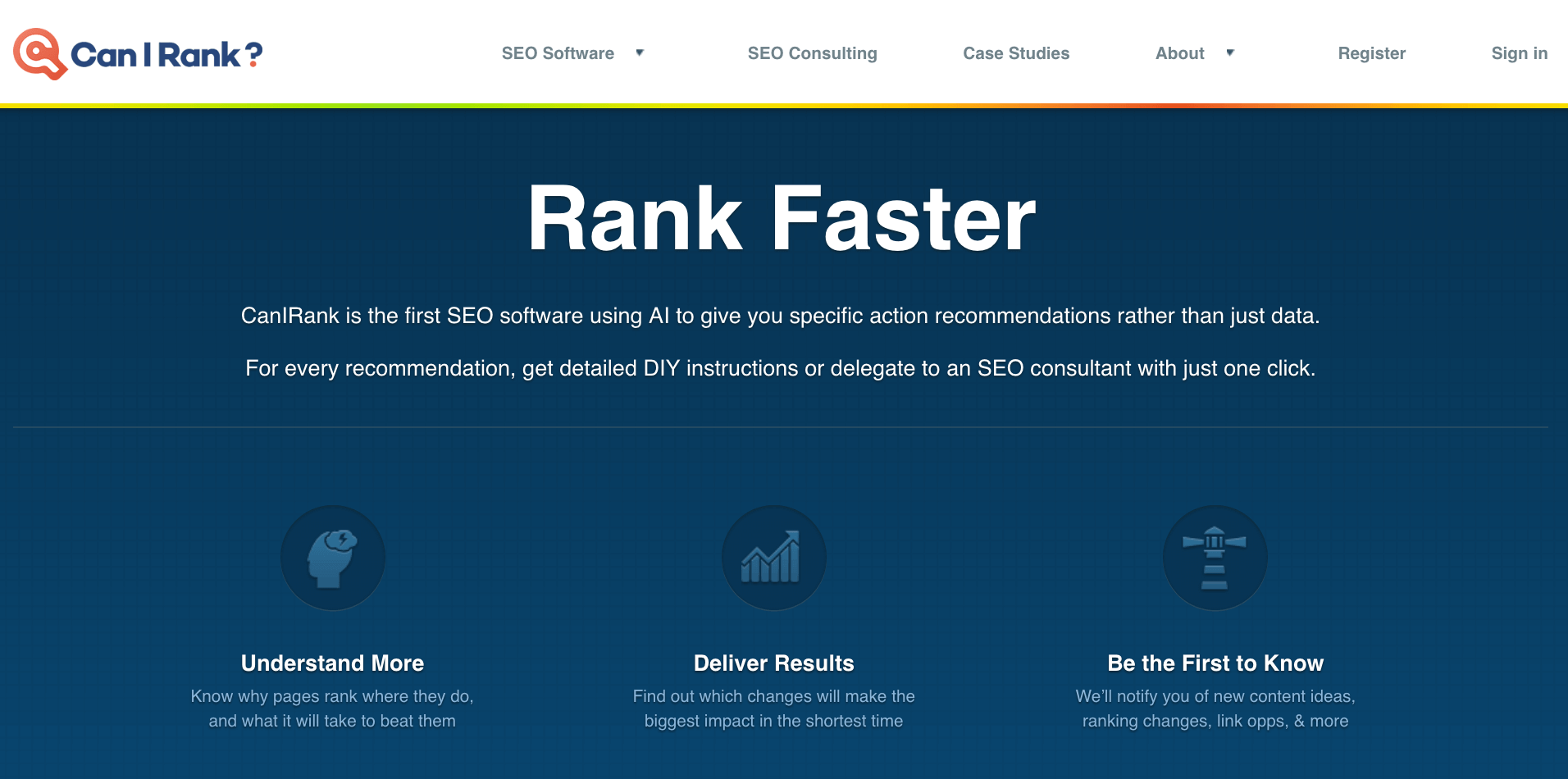
Very cool.
Best Feature: “How can you better target this keyword?”
CanIRank isn’t just for sizing up the first-page competition.
It also gives you suggestions that can help you rank for a specific term.

6. Google Lighthouse
Google Lighthouse is one of the most-used free SEO tools by webmasters.
And it’s easy to see why.
It’s a browser extension that gives you detailed reports about your site’s SEO performance and actionable tips on how to improve it.
You just need to add the extension to Chrome and then open it when you’re on the page you want to analyze.
Then, click ‘Generate Report’.
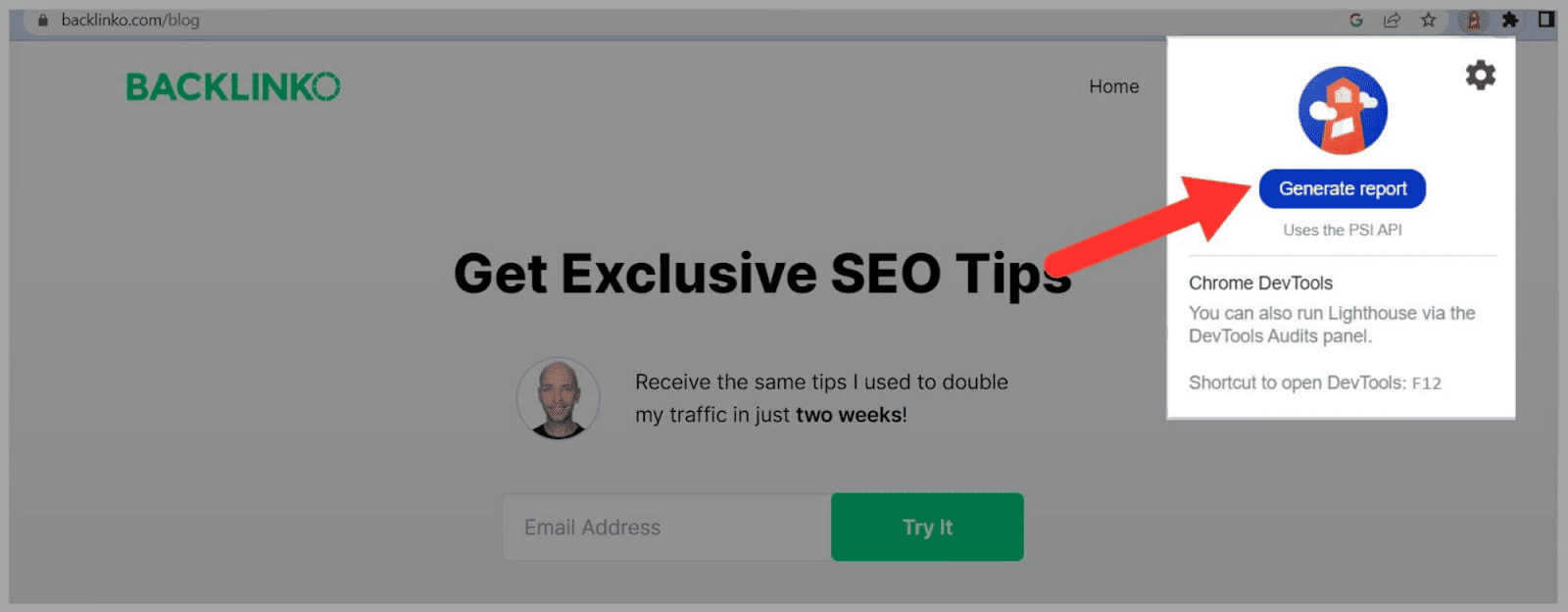
It then gives you various metrics related to your site’s performance, such as:
- Page load speeds
- Accessibility
- SEO
and more.
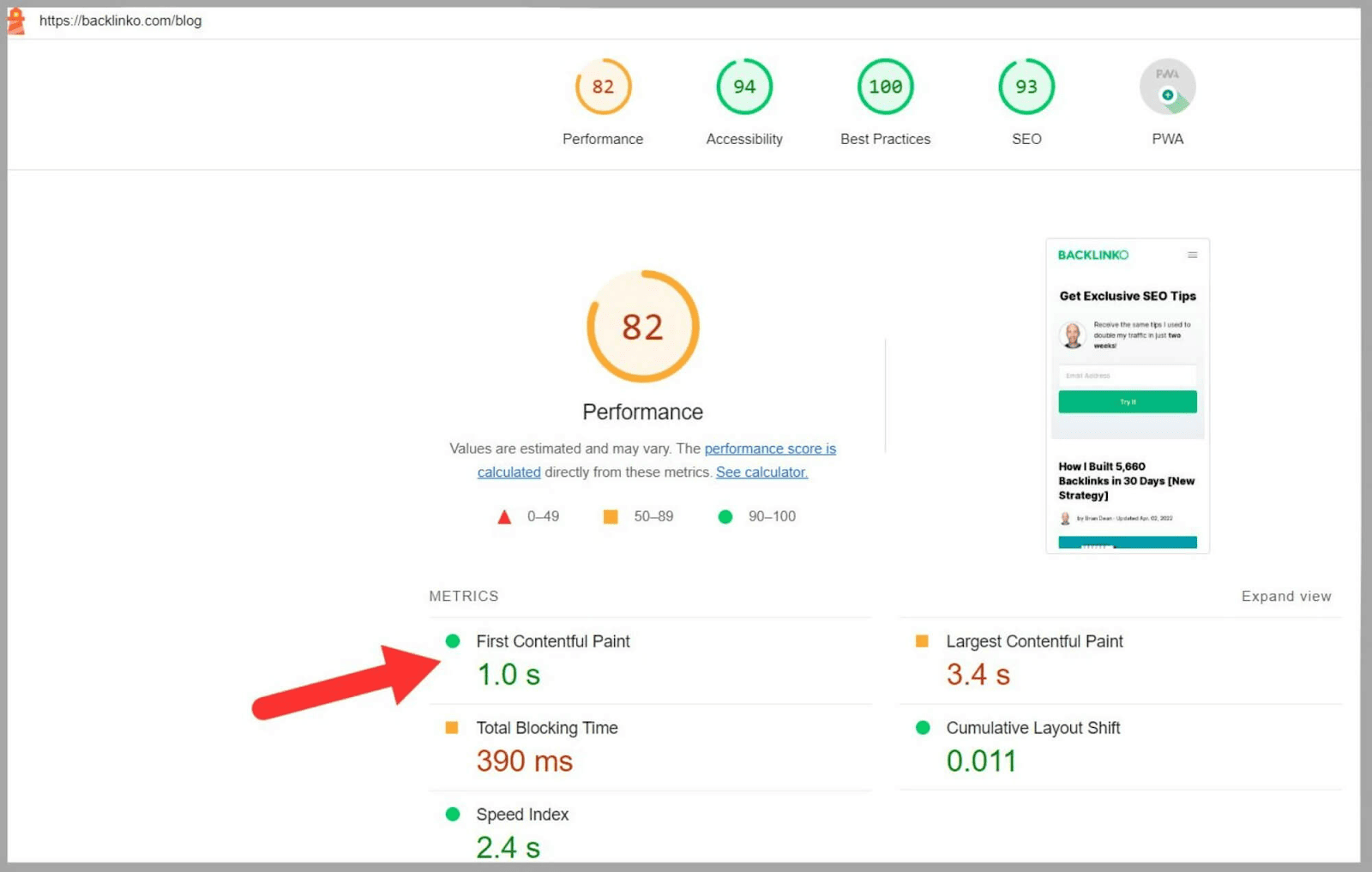
It also shows you elements on your site that are currently harming its performance.
Plus, it gives you the option to get advice on how to optimize these elements to improve performance.
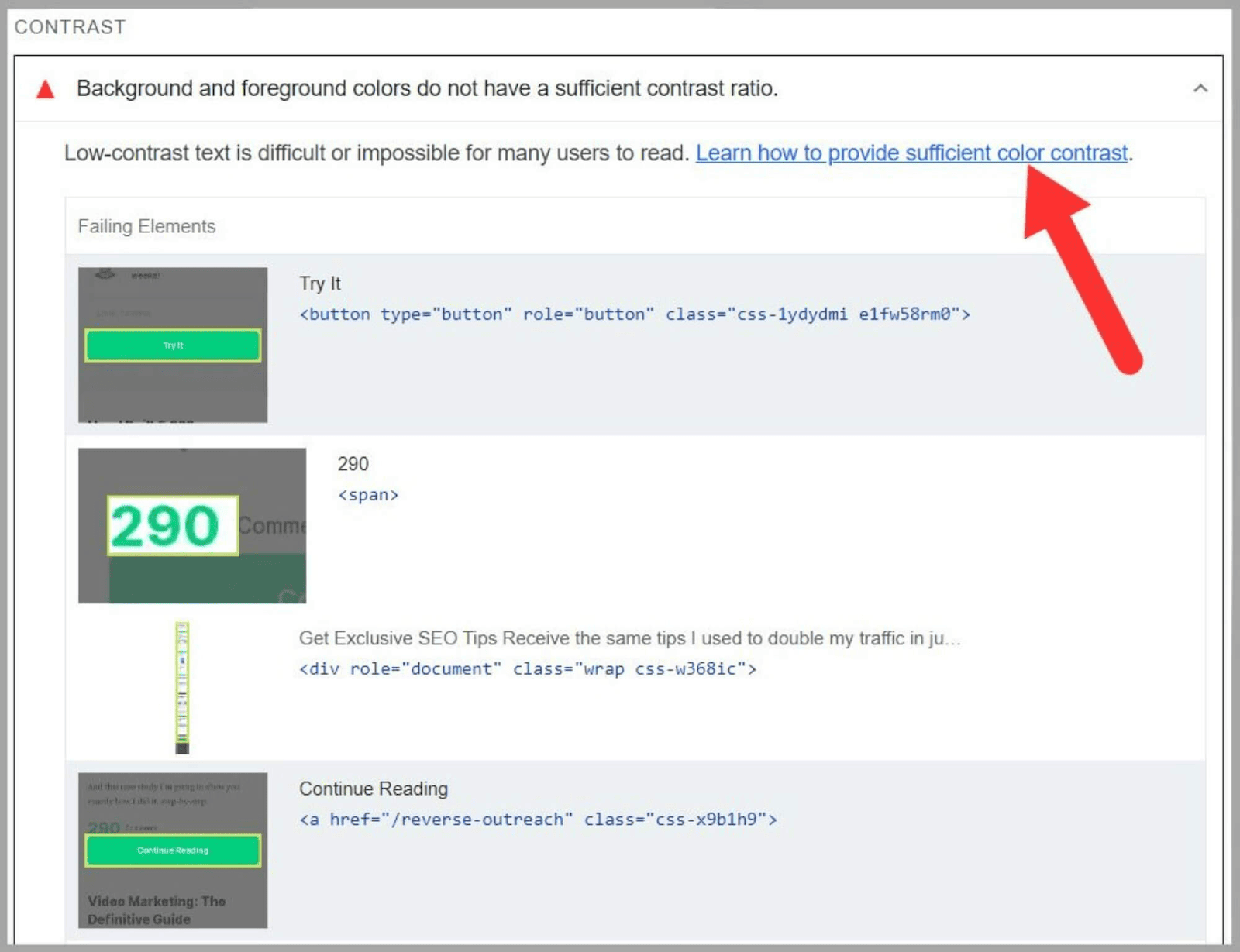
7. Google’s Mobile-Friendly Test
Get your site ready for Google’s Mobile-first Indexing.
You might have heard that Google recently made a big change to its algorithm.
(This change is officially called “Mobile-First Indexing”.)
The bottom line is this:
If your site isn’t optimized for mobile devices, you’re in big trouble.
Fortunately, you don’t need a full-time developer to make your site mobile-friendly. All you need to do is run your site through the Mobile-Friendly Test tool.
And it tells you whether or not Google considers your site mobile-friendly.
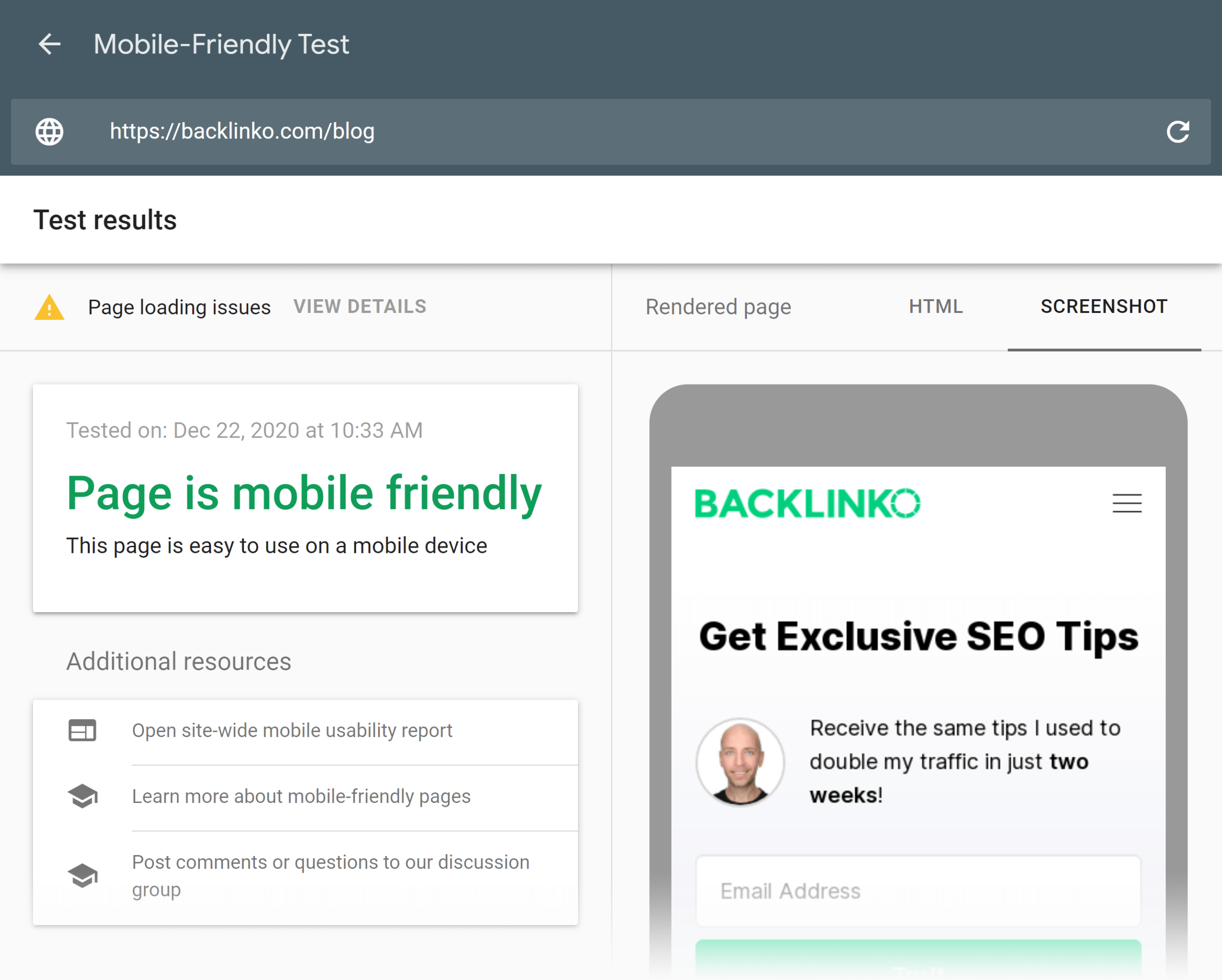
Best Feature: “Page loading issues”
This feature shows you how you can improve your site’s code. That way, Google’s mobile crawler can find and index all of the resources on your site.
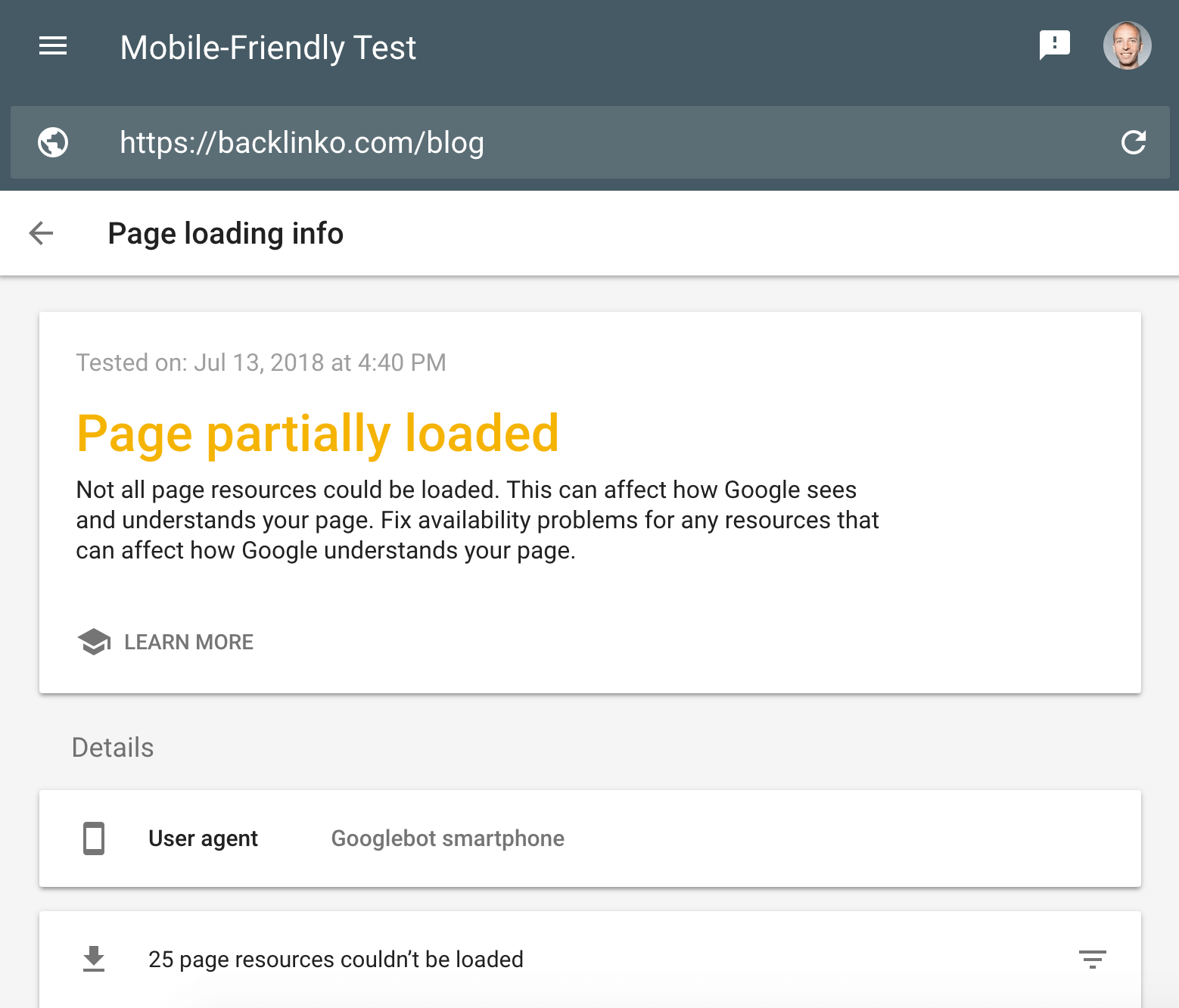
8. SEOquake
SEOquake is another free SEO browser extension.
It allows you to analyze lots of different search engine metrics in real-time such as:
- Backlinks
- Google index updates
- Semrush ranking
- Bing index
- Facebook likes
- Web archive page
- Pinterest pin count
This tool can be a little tricky to get used to at first, especially for beginners.
But, once you’ve got the hang of SEOquake it becomes a really valuable weapon in your SEO arsenal.
Once installed, the SEObar will appear underneath the URL for each site you visit.
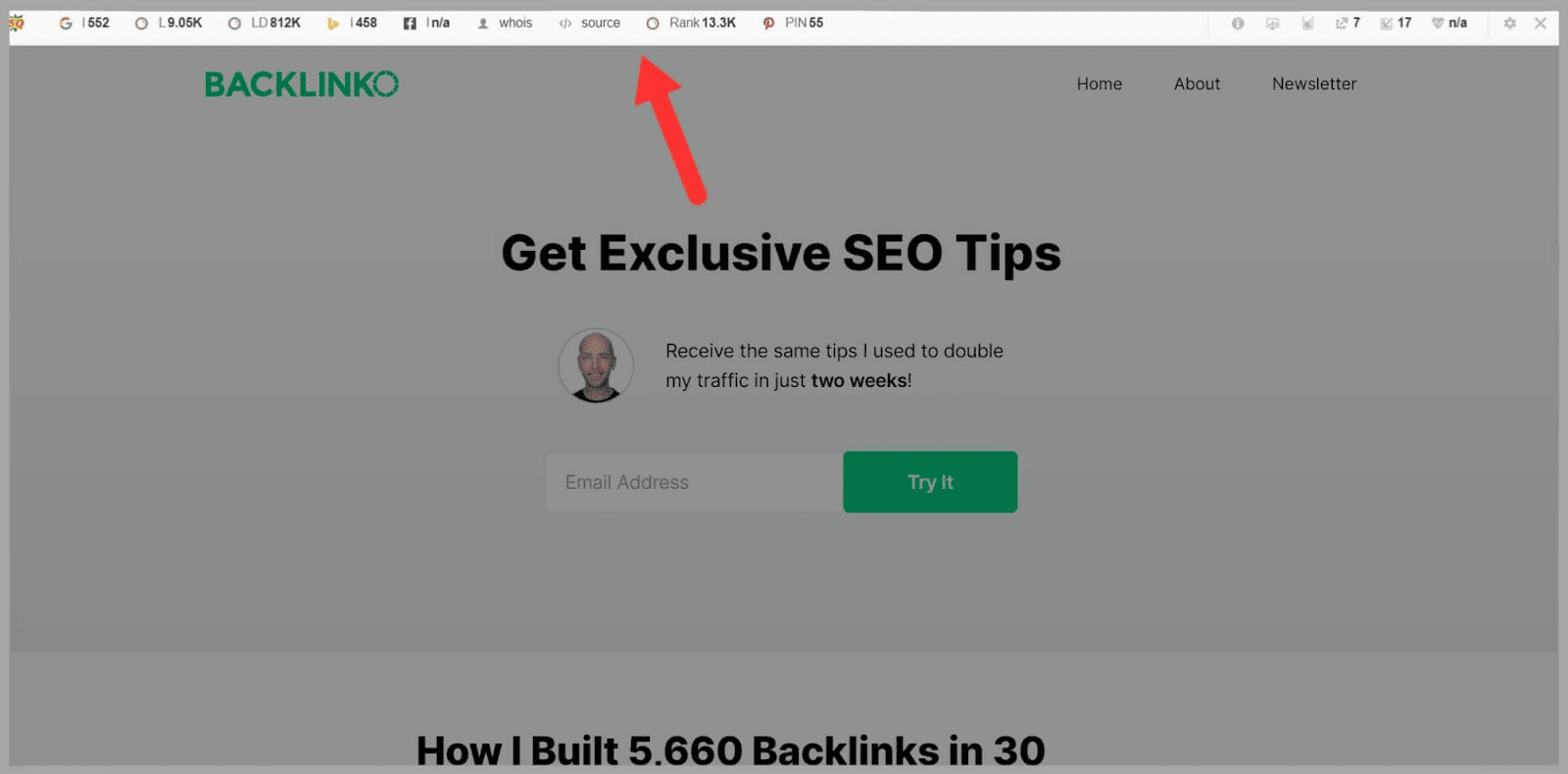
This means you can immediately analyze the data without having to do anything.
You can use the tabs to change the metrics so that you can see the exact data you need.
For example, I can see metrics like Google cache date which tells me when the page was last indexed.
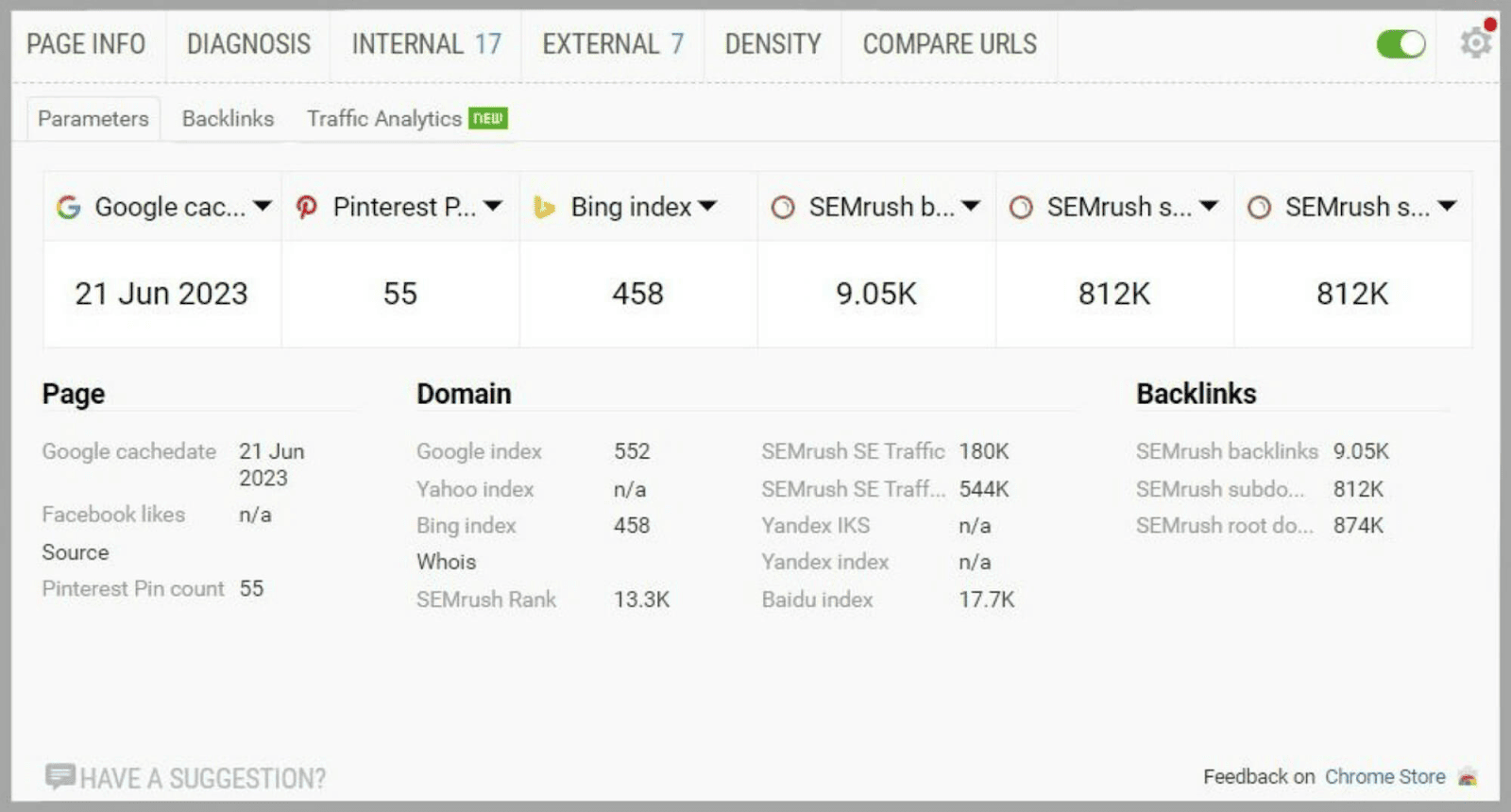
9. Seed Keywords
Find completely fresh keyword ideas.
Most keyword research tools work the exact same way:
- Enter a seed keyword into the tool.
- Get a list of closely-related terms.
The problem with this approach is this:
Everyone types the same seed keywords into these tools.
Well, Seed Keywords takes a completely different approach.
Instead of pulling seed keywords out of thin air, you ask your customers how they’d search for you online.

Then, type those seed keywords into your favorite keyword research tool.
Best Feature: “Submit Query”
Once the results come in, you can use SeedKeywords to do a Google search for the keywords that people gave you.
That way you can quickly scan the search results… and see how competitive those keywords are.
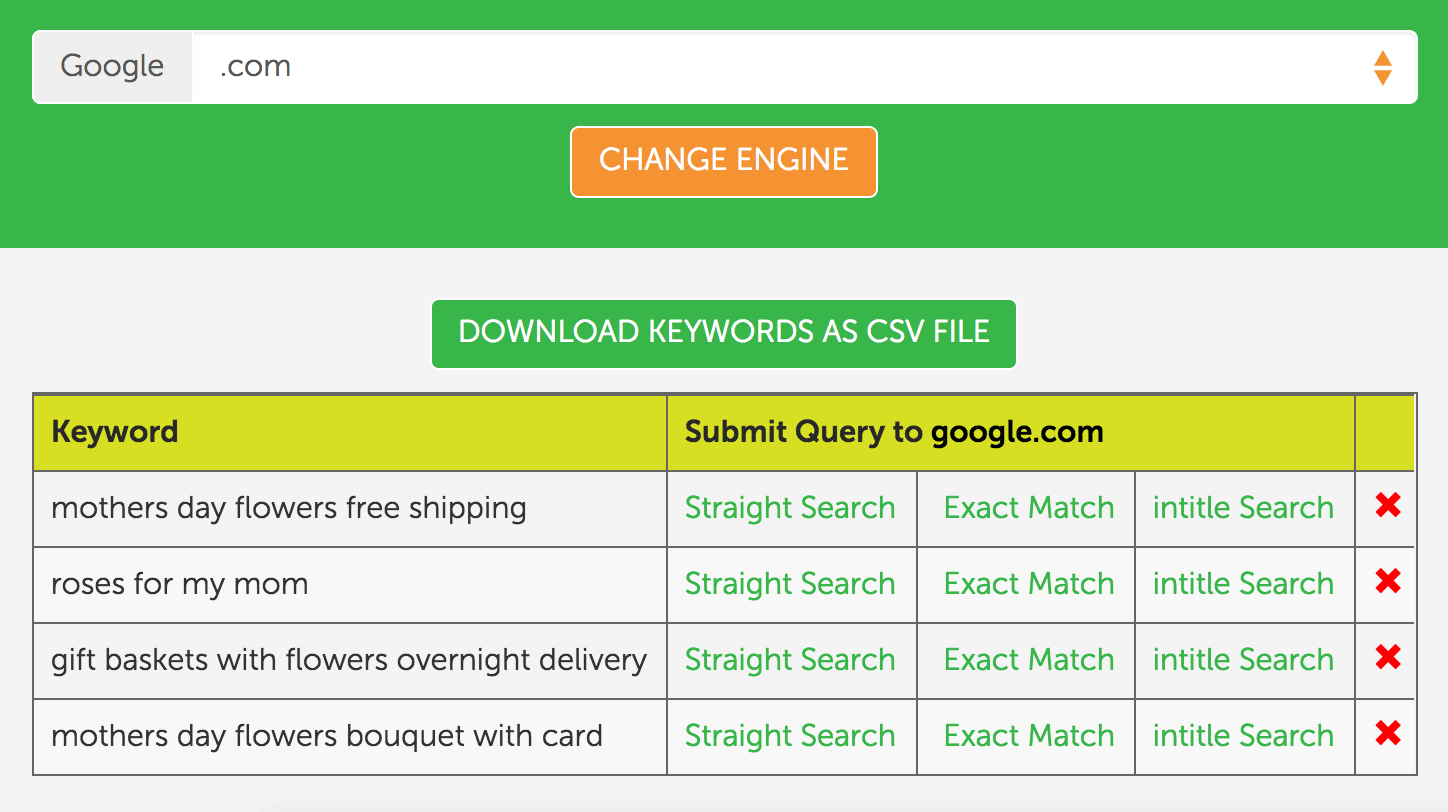
10. Exploding Topics
Find popular keywords before they get competitive.
This free SEO tool does one simple thing:
It bubbles up topics that are just starting to trend.
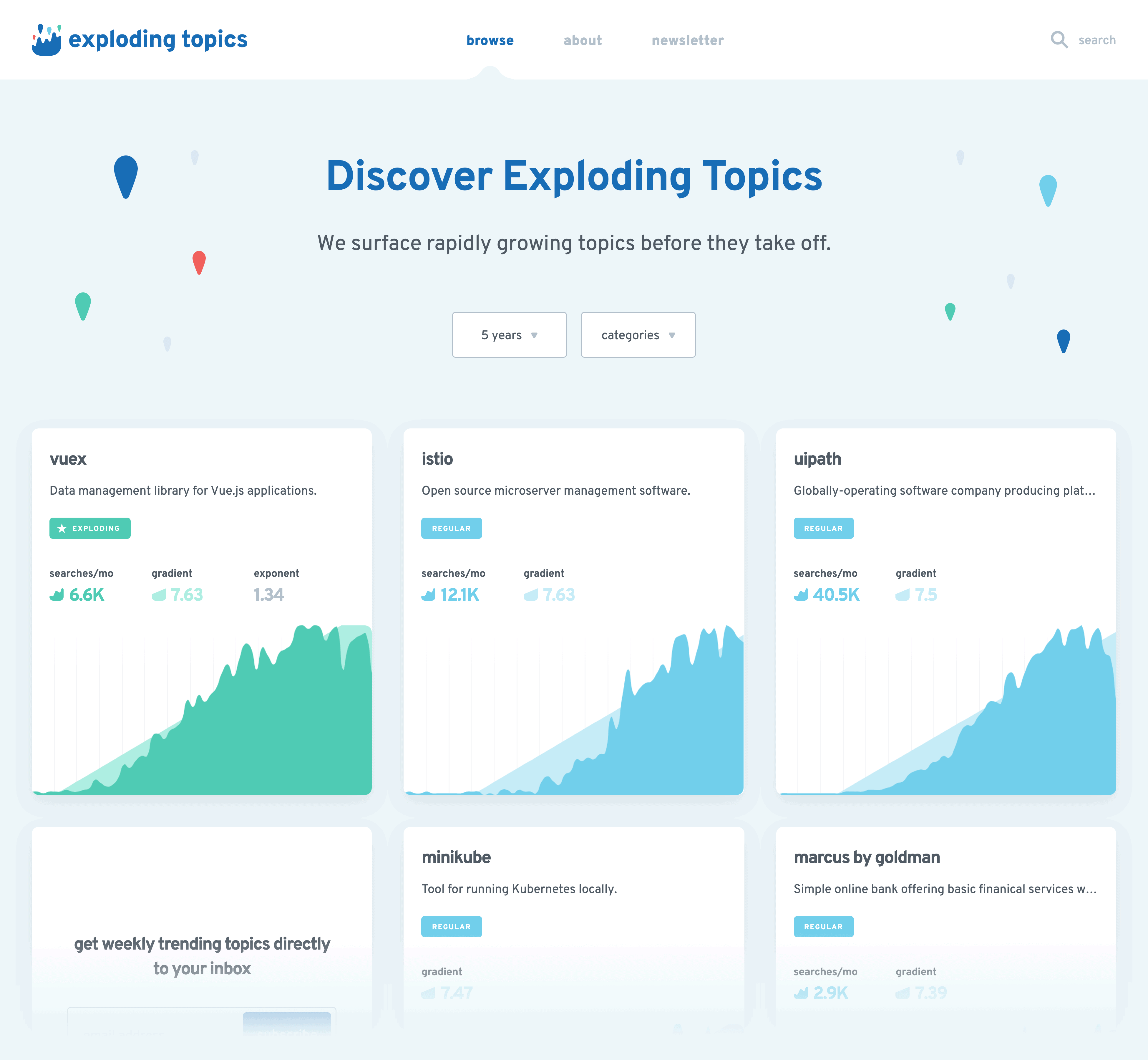
That way, you can create content around these emerging trends (or optimize your old content around a new keyword).
The tool currently has about 2k topics in its database. And they’re adding more every week.
Best Feature: Categories
Categories let you drill down to a specific topic category that’s important to your business.
For example, let’s say you run marketing for a skincare brand. Well, you’d hit “beauty” and get a list of emerging topics in that space.
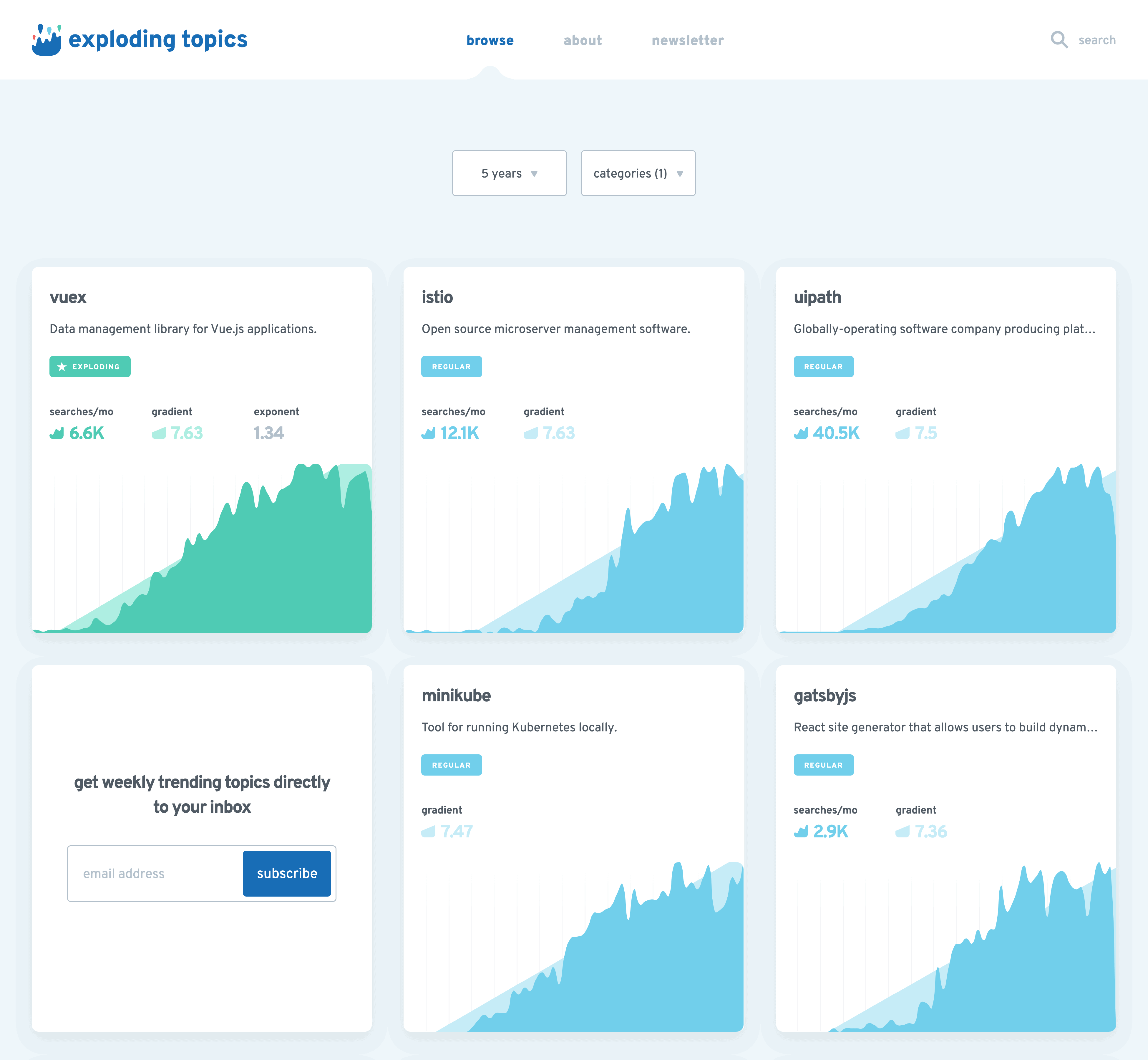
Nice.
11. GTmetrix
GTmetrix is great for analyzing the technical health of your site.
It takes just a few minutes to get information about the size of a page and assess its loading time.
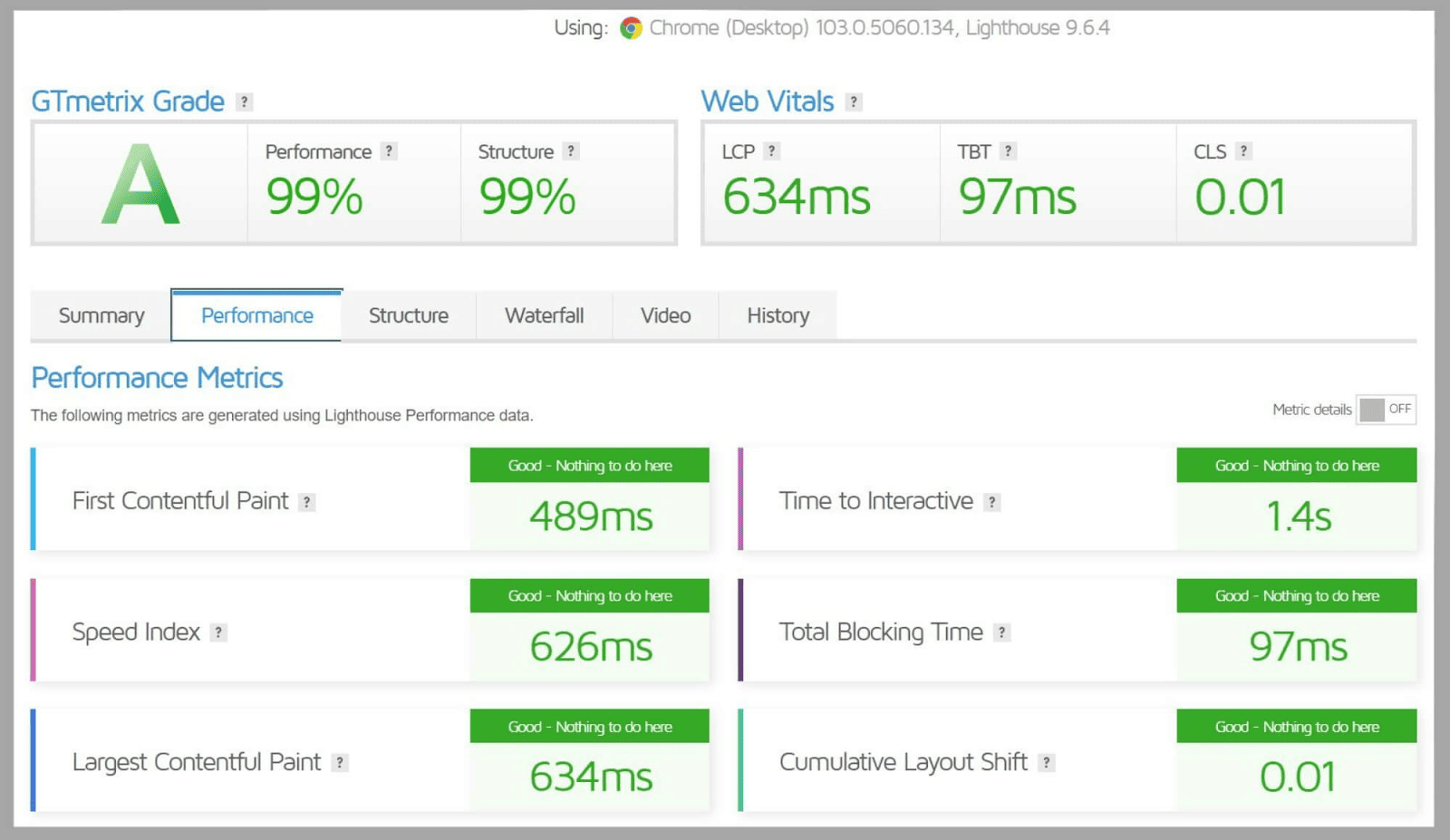
The ‘Waterfall’ view is really useful too.
It displays the order and duration of files loading on your pages.
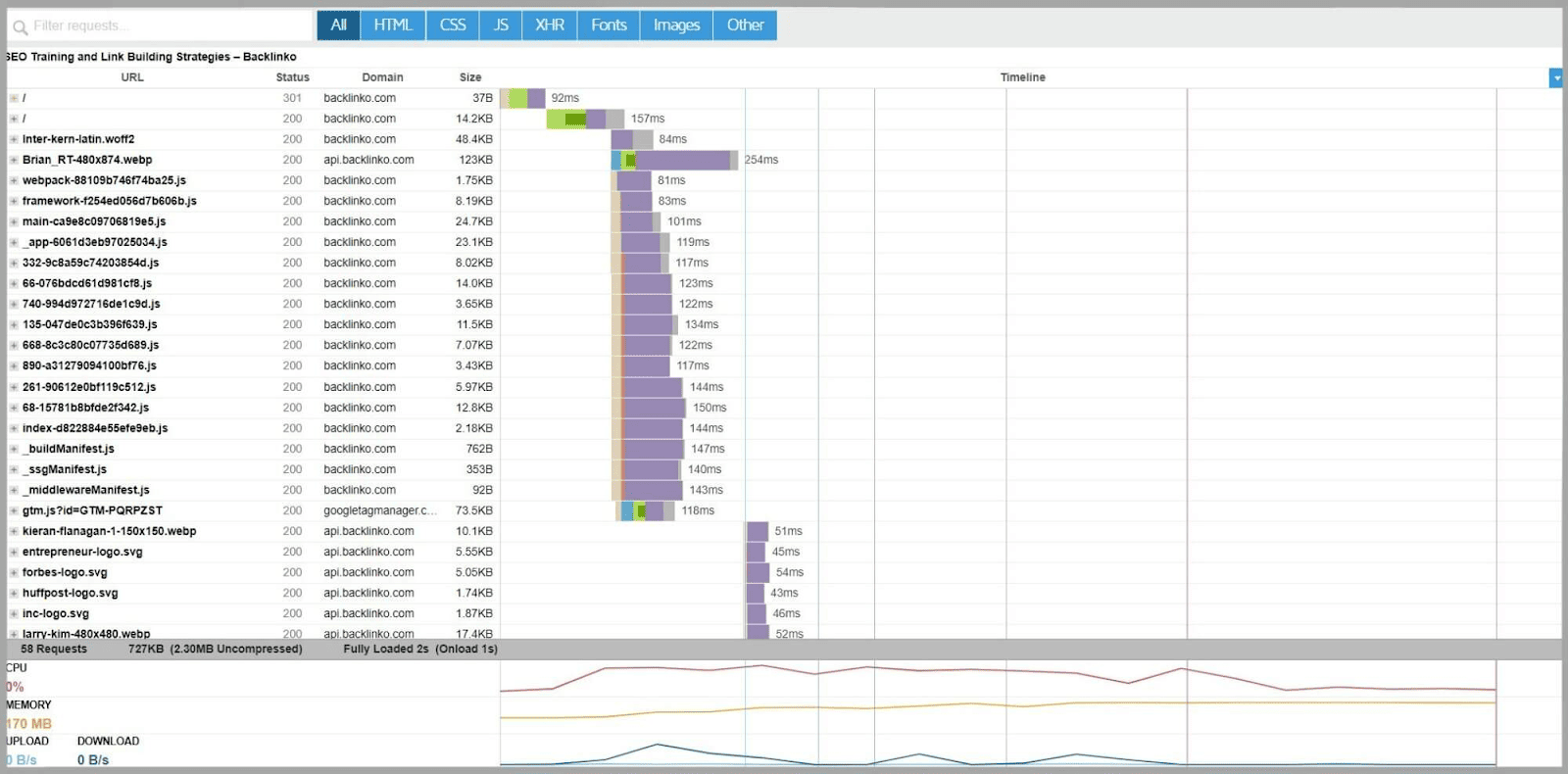
This allows you to identify areas that can be improved and prioritize your efforts to ensure your page loads faster.
12. Schema.org
Schema markup is incredibly important for your site.
It provides structured data that helps search engines understand the content and context of your page.
If you haven’t implemented schema markup on your pages, then you’re REALLY missing out.
One of the best options is to use Google’s Structured Data Markup Helper as it guides you through the process.
To view all the different schemas, you can browse the full hierarchy in HTML.
You can either click on ‘One page per type’ or ‘Full list of types, shown on one page’.
Or, you can search for a specific term with the ‘TermFinder’.

You can also choose from one of the commonly used schema types.

I clicked on ‘Organization’, for example.
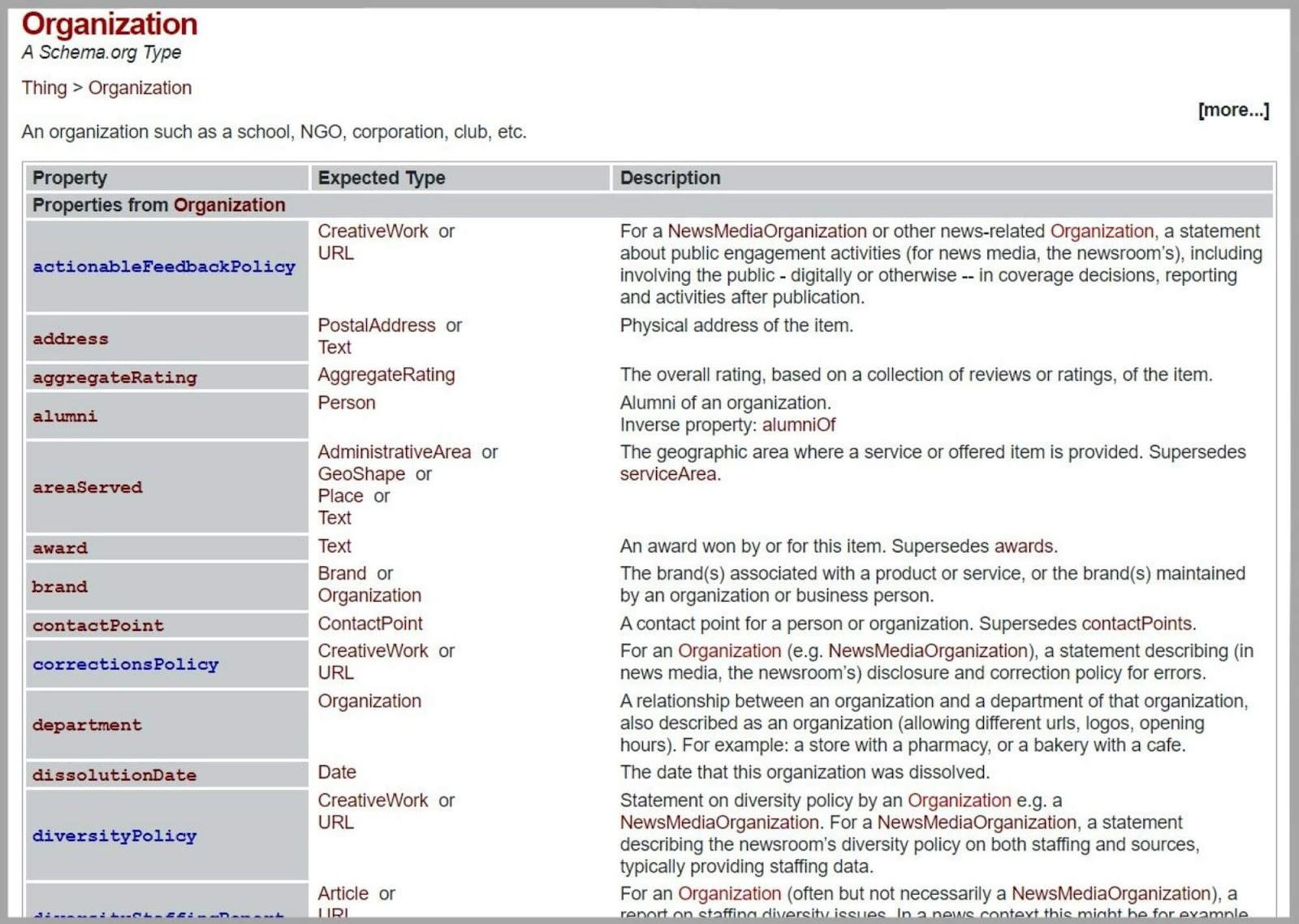
All you need to do is fill in your information, copy the code and insert it directly into your web pages.
When implemented correctly, schema markup can enhance the appearance of your page in the SERP by displaying rich snippets alongside your title tag and meta description.
It looks like this.

This could potentially increase your click-through rates by enticing users to click on your link.
13. Seobility
Get a deep-dive SEO site analysis.
SEObility crawls your entire site and lets you know about search engine optimization issues like:
- Slow loading pages
- Blocked pages
- Sitemap problems
- Technical SEO issues
- Lots more
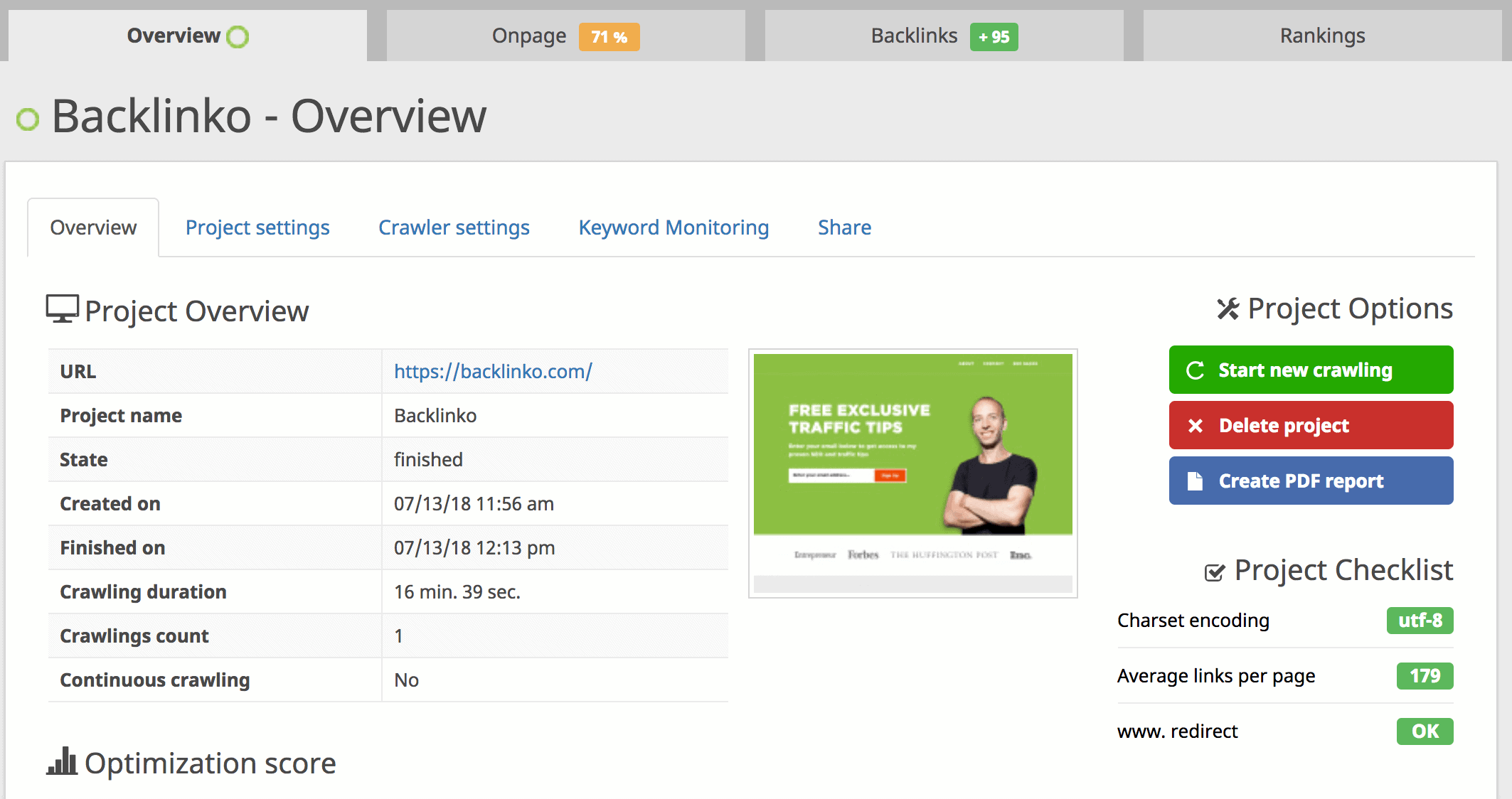
You usually only get this type of stuff from paid SEO tools. So it’s really nice that Seobility gives you this data for free.
Best Feature: Content Report
This report hands you a list of pages that have content-related SEO issues.
(Things like: thin content, missing meta titles, keyword stuffing, and duplicate content.)
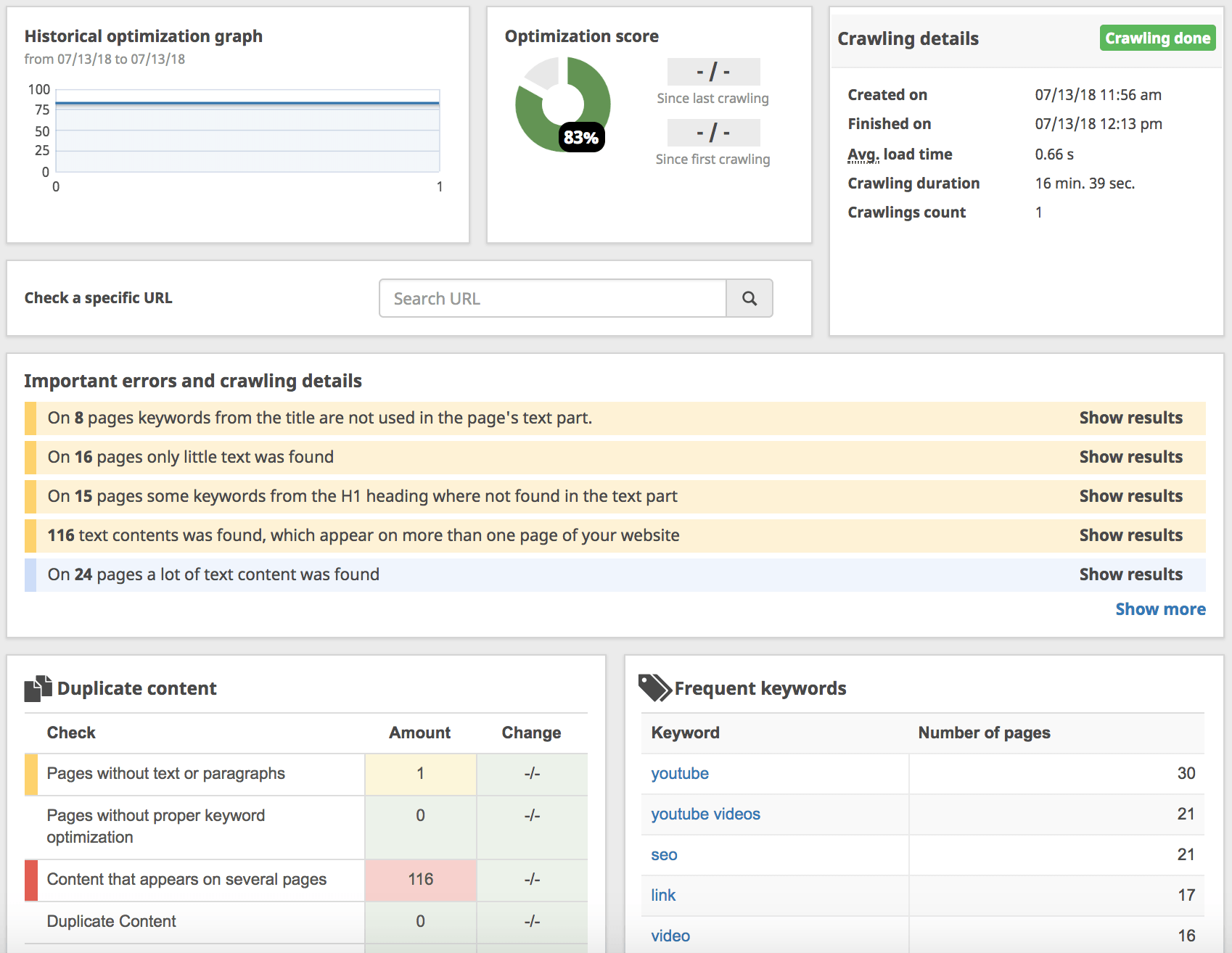
14. Ubersuggest
Get keyword suggestions and competition data.
Ubersuggest has a lot of features that are usually only found in premium SEO tools.
But it’s 100% free.
To use it, type in a keyword that you want to rank for (or a competing website that you want to rank above).
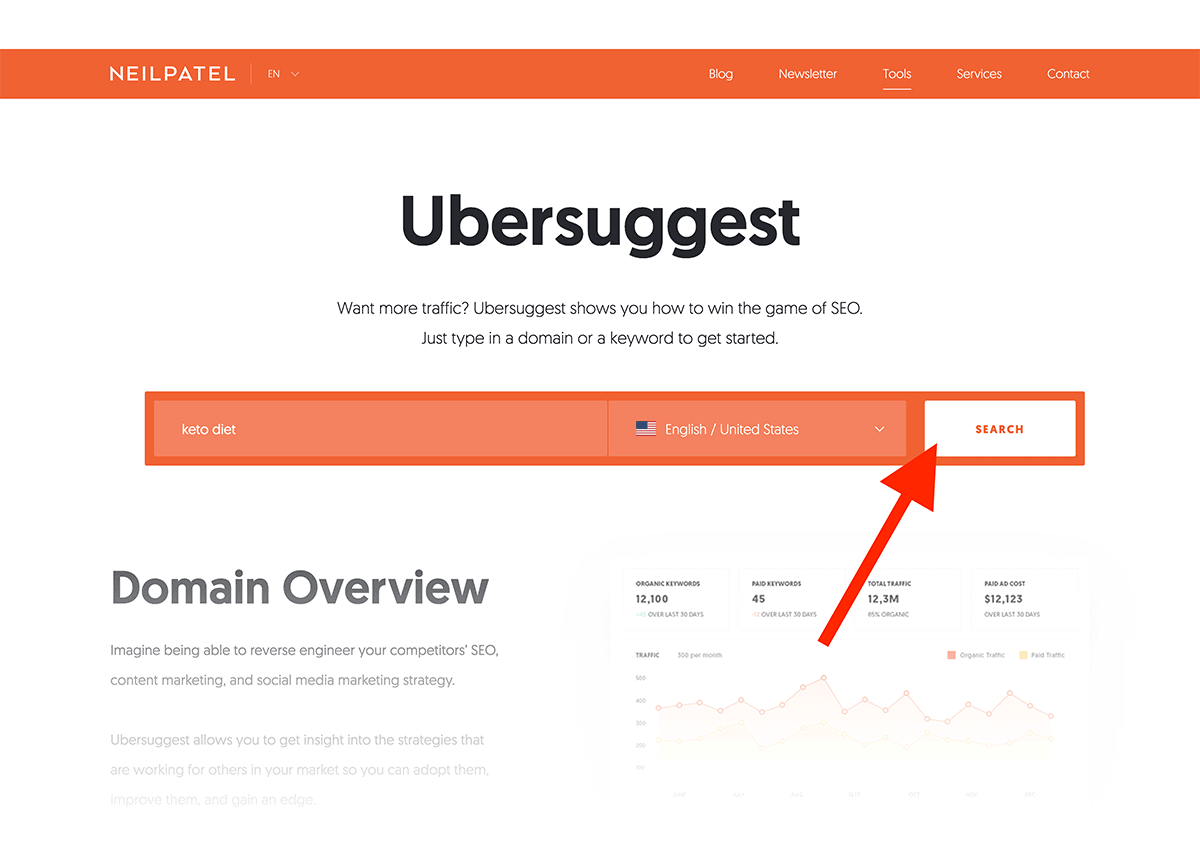
And Ubersuggest will give you detailed data on keyword difficulty, monthly search volume, and more.
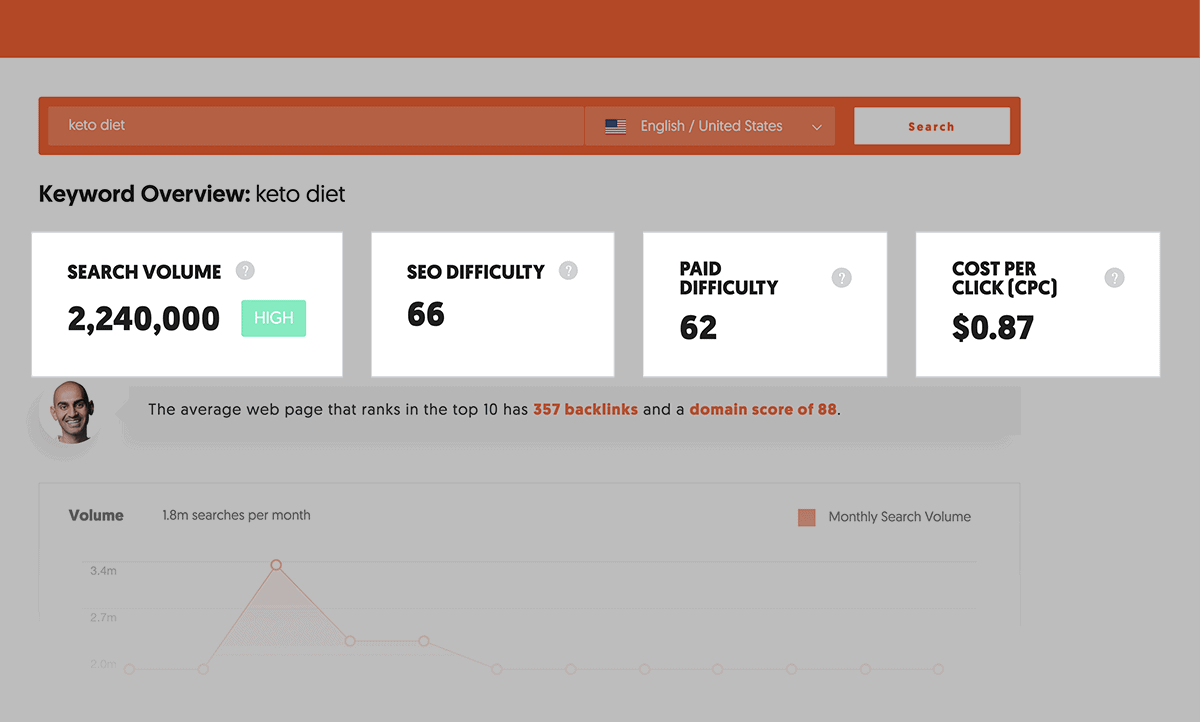
Plus, you get a list of suggested keywords that are based on the keyword you typed in.
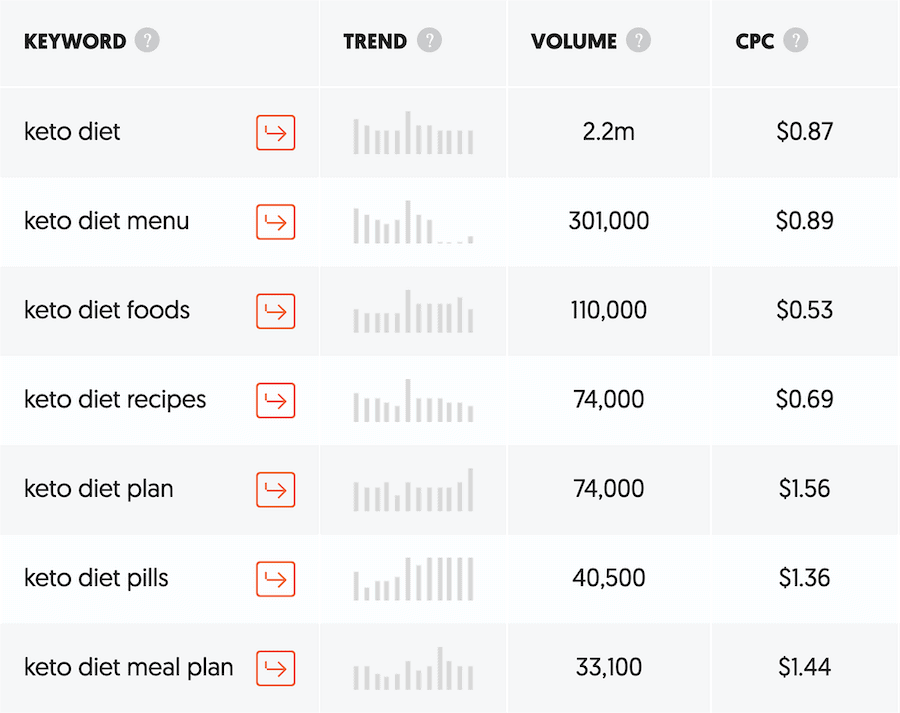
Best Feature: “Comparisons”
This feature shows you “X vs. Y” keywords.
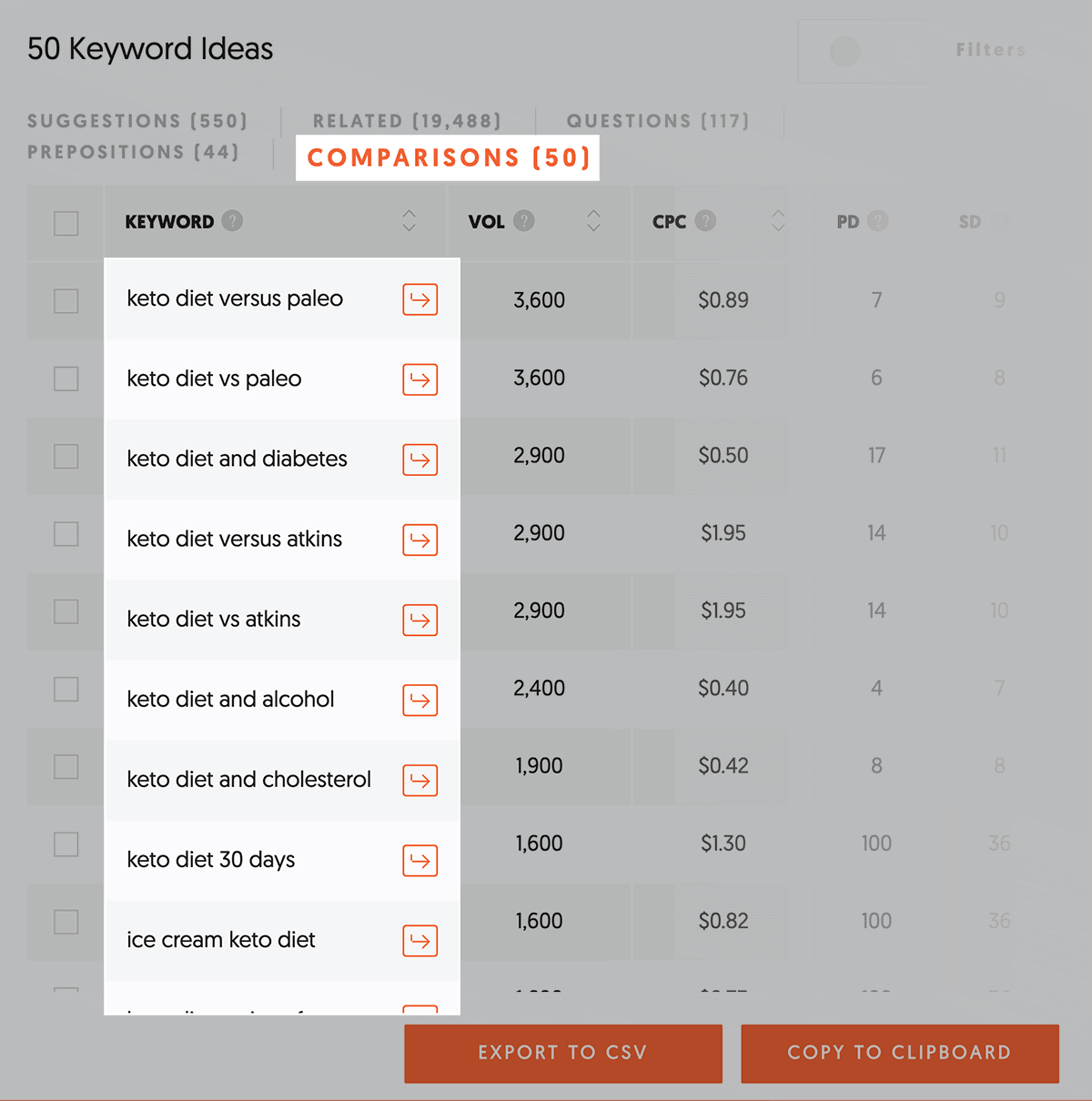
In my experience, X vs. Y keywords are super untapped.
Sure, they may not get as many searches as traditional keywords. But they’re SUPER targeted and high-converting.
And to my knowledge Ubersuggest is the only tool that specifically bubbles up X vs. Y keywords.
15. Similarweb Browser Extension
Similarweb is a nifty browser extension that lets you keep tabs on web traffic, keyword ranking, and MUCH more.
It’s available for Chrome, Firefox, Edge, and Opera.
One of the best things about Similarweb is that it’s very easy to use and has a minimal learning curve.
You can use it to analyze your site in amazing depth.
In just a couple of clicks, you can see data about the demographics of your audience.
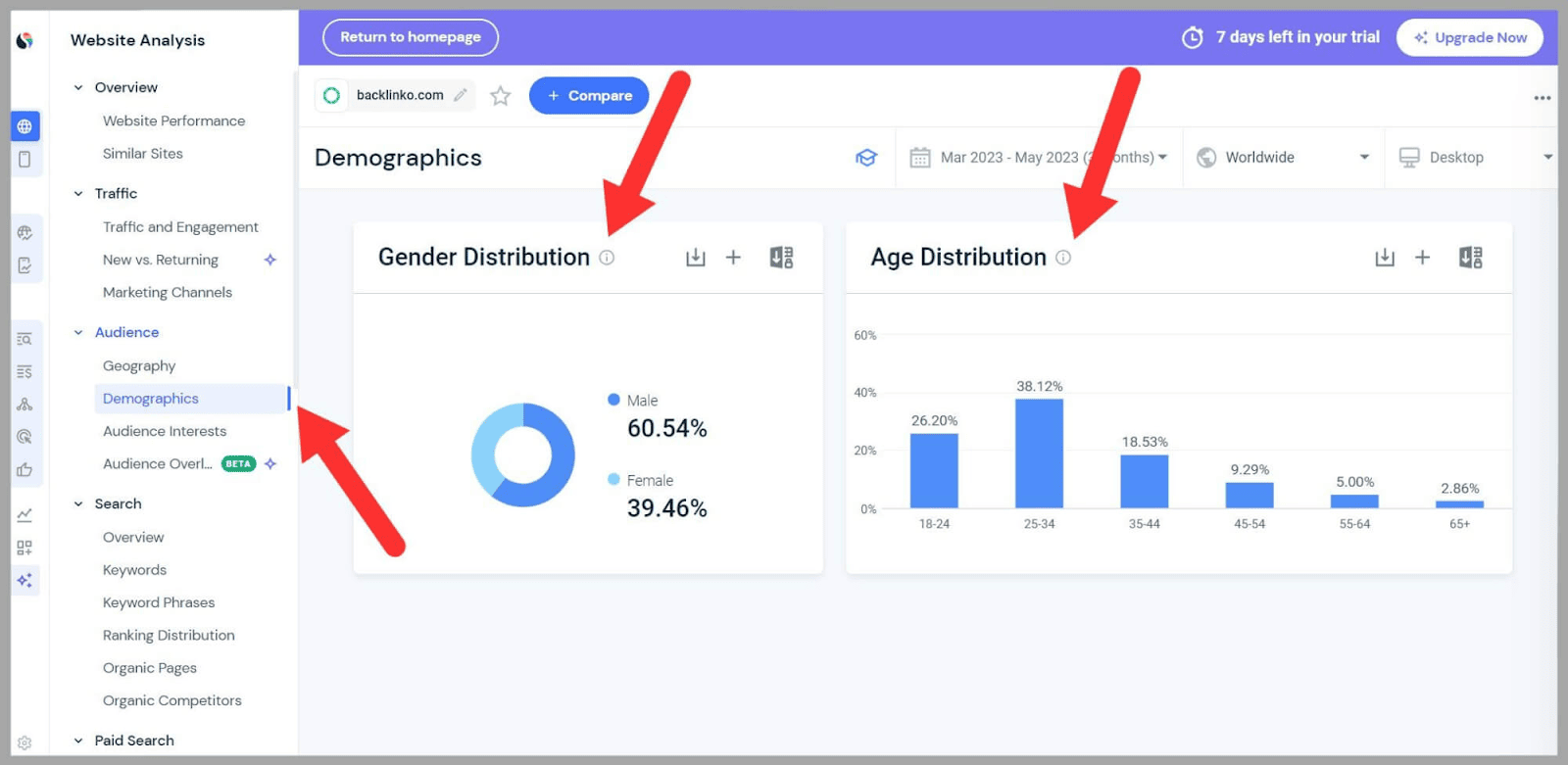
You can also assess your organic competitors and get data for your shared keywords.
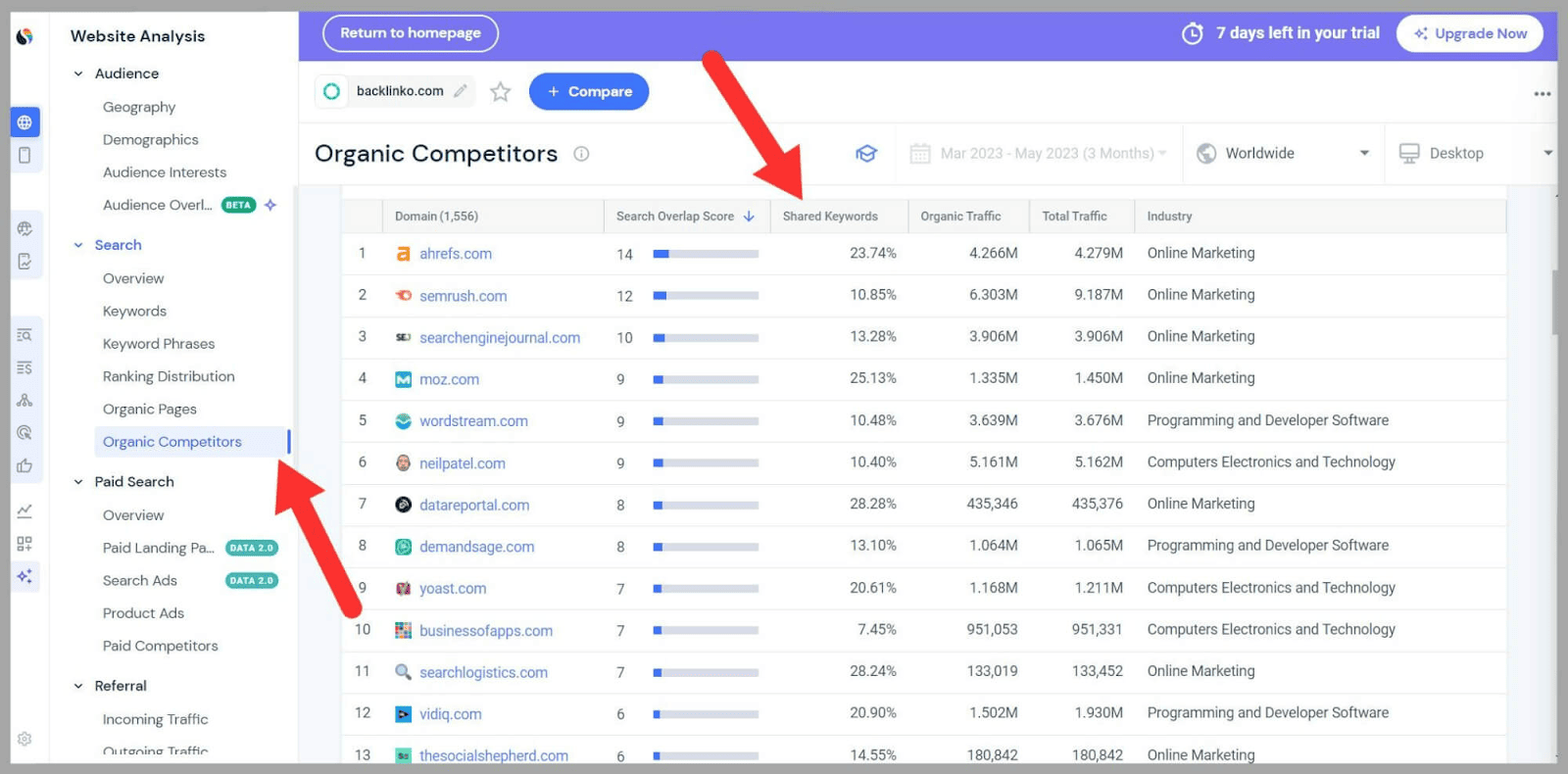
The free version of Similarweb is pretty generous.
You get a month of mobile app data, five results for each metric, and three months of data for web traffic.
NICE.
16. BROWSEO
See your site through the eyes of a search engine.
As it turns out, search engines see your site VERY differently than you do.
And BROWSEO gives you the type of x-ray vision that search engines have.
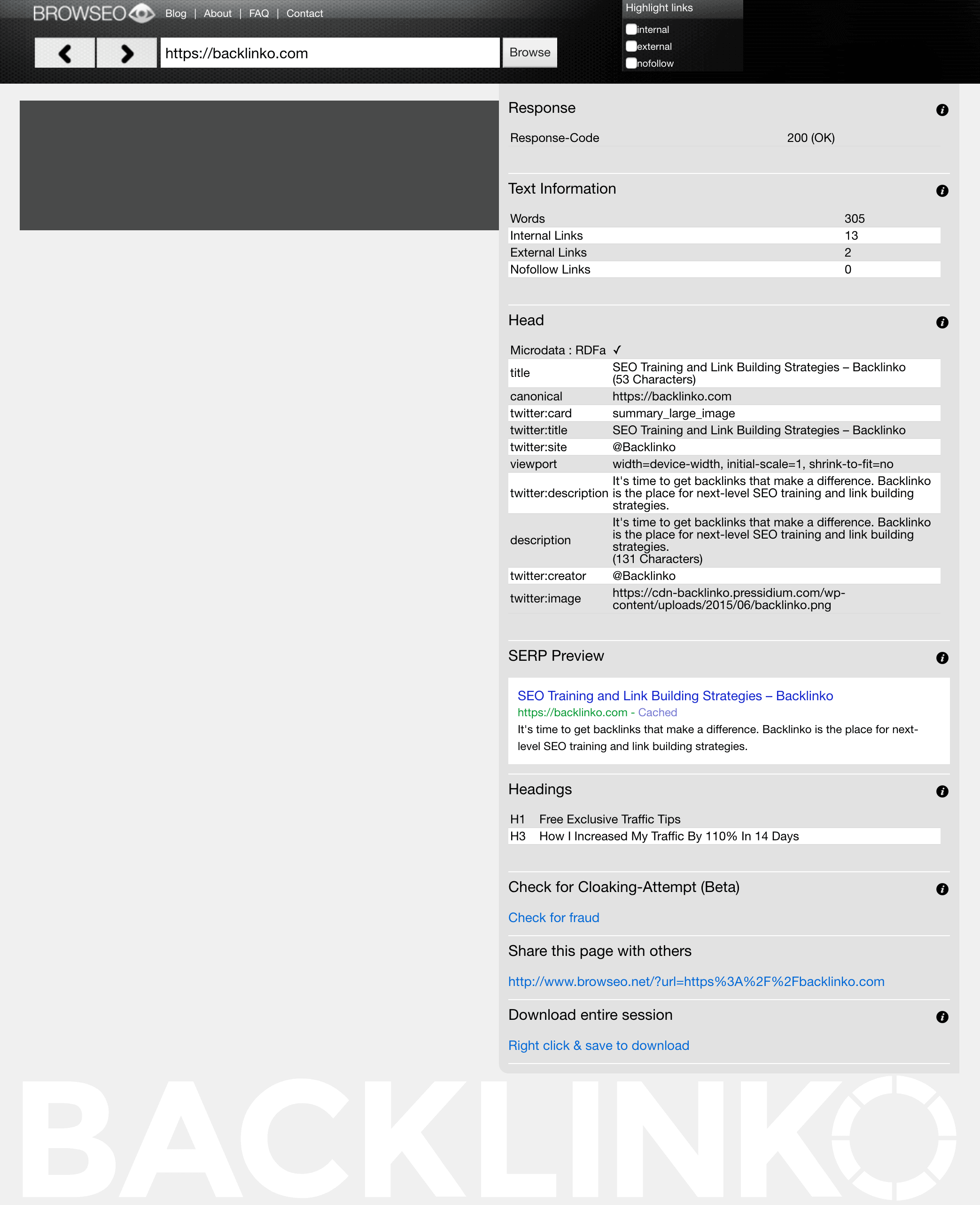
Best Feature: SERP Preview
Get a sweet preview of how your page appears in the search results:
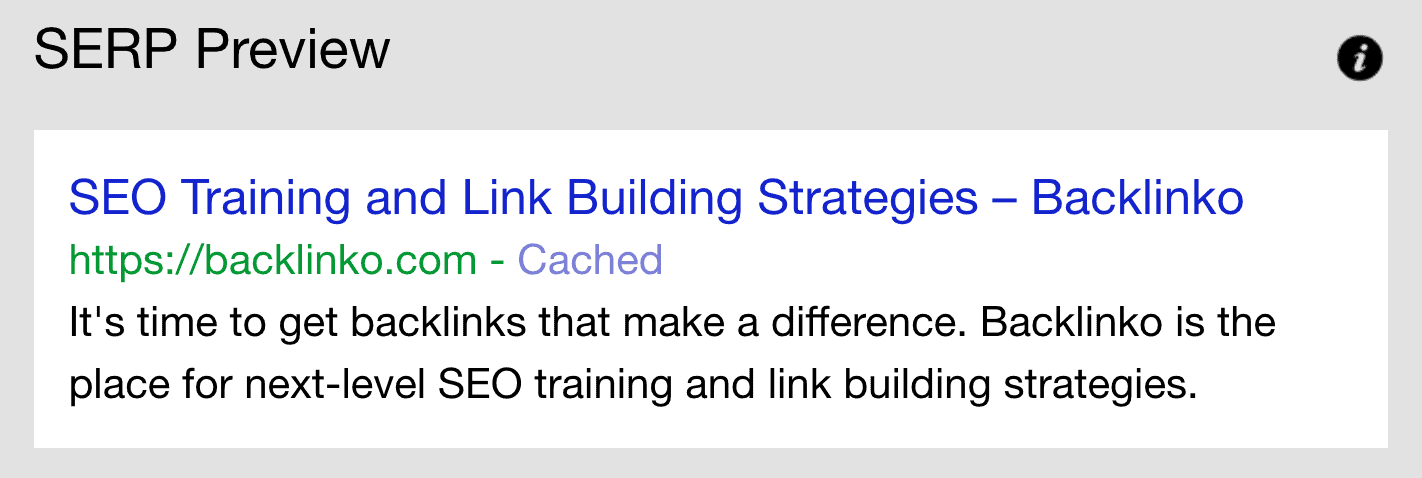
This is helpful for figuring out if your title and description tag are SEO-friendly (or too long). And optimizing your title and description can also help you get more organic clicks.
17. Detailed.com
Get intel on your competition.
Detailed gives you a curated list of the most popular sites in your industry.
That way, you can size up your biggest competitors.
(And copy what they’re doing.)

Best Feature: “Mentions”
This feature shows you who recently linked to (and tweeted about) your competition.
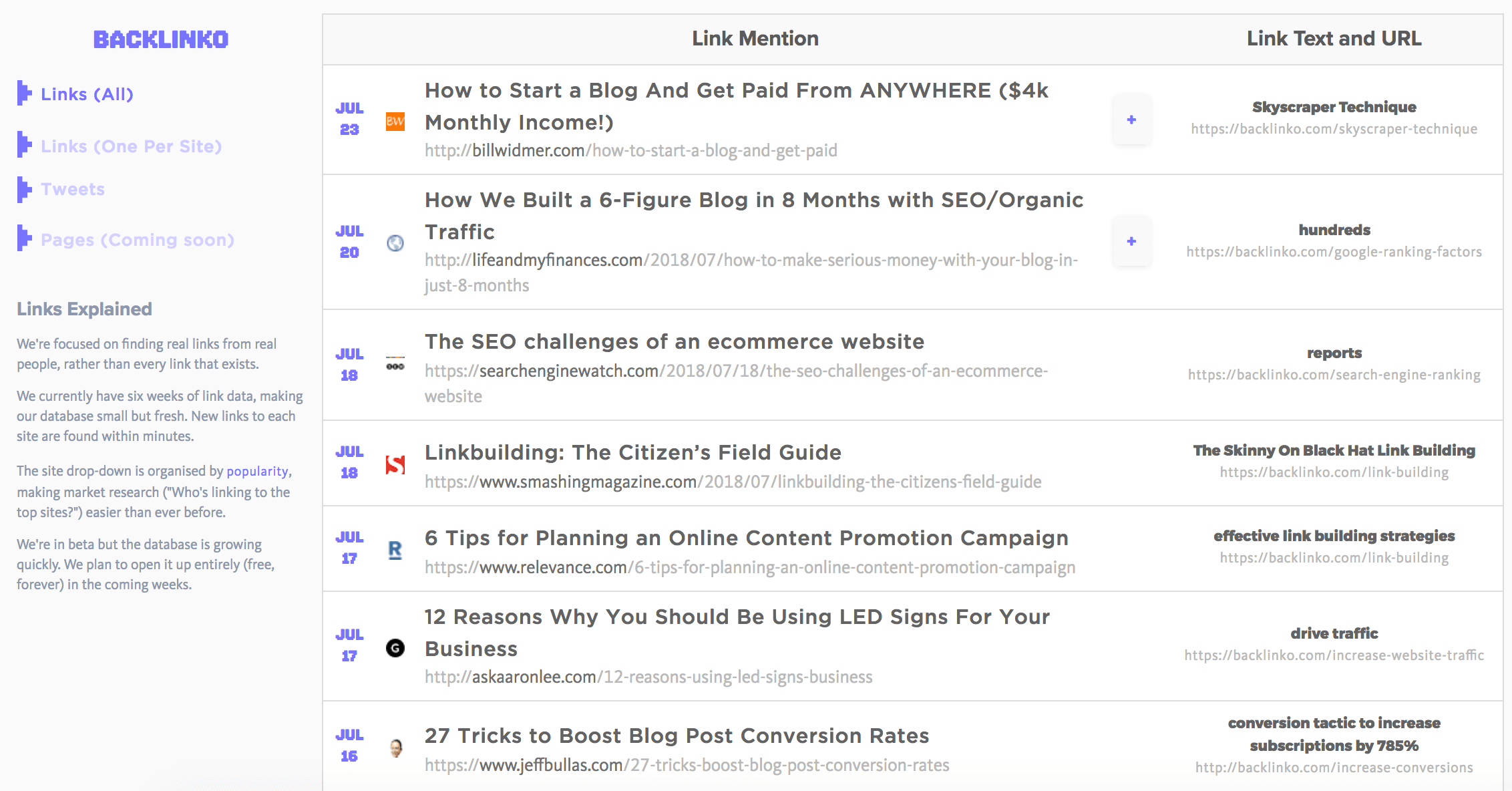
18. Grammarly
Grammarly is a browser plugin that corrects spelling and grammar mistakes and makes suggestions on how you can improve the writing in your content.
Once installed, you can leave it running in the background.
Whenever you’re writing content, it highlights any errors so that you can correct them.

Or, you can click on the extension and open up Grammarly by clicking on ‘Grammarly for Chrome’ so that you can paste the text into the tool.
When you do, Grammarly asks you what your goals are for the piece of content.
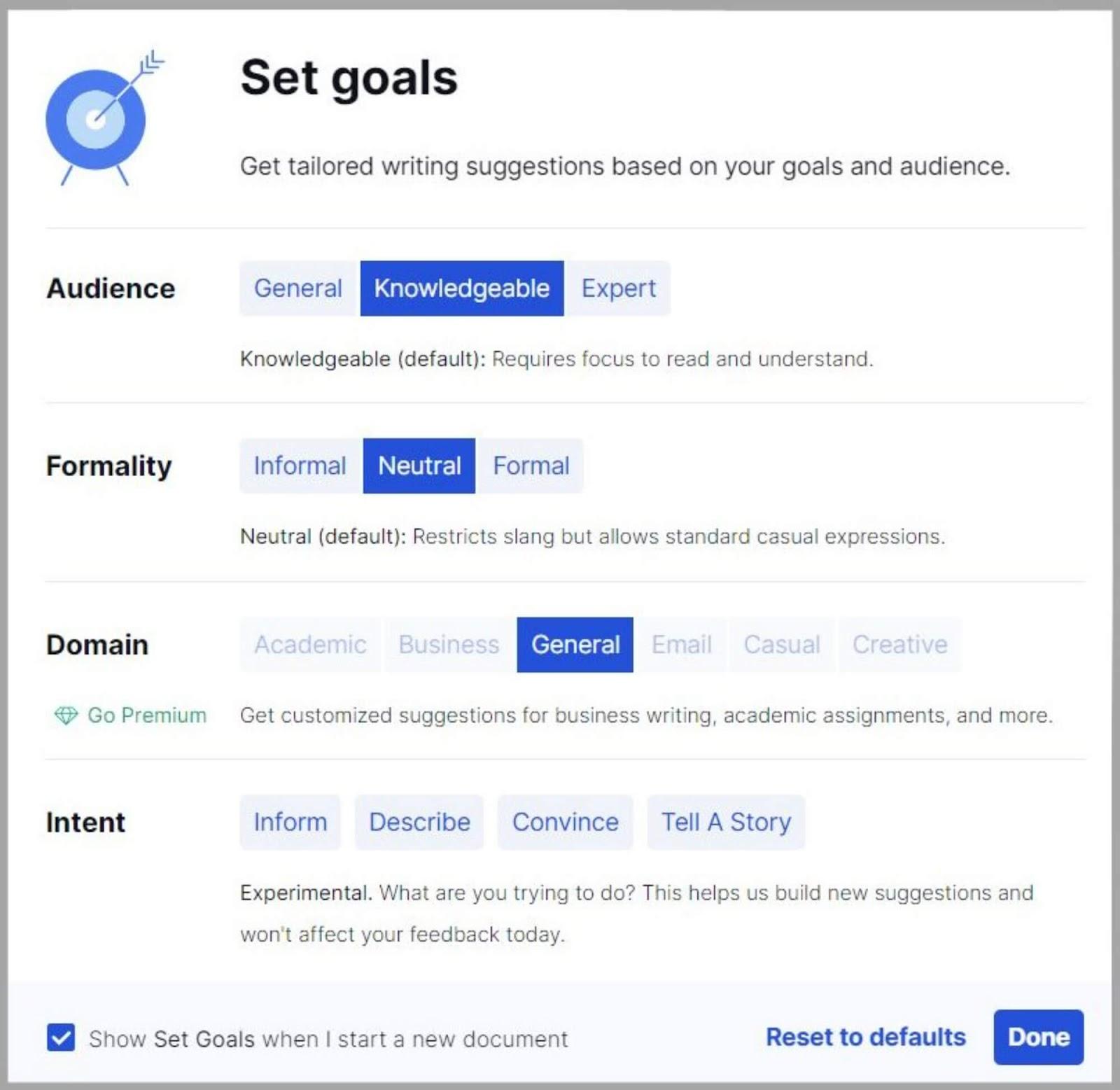
The tool gives you suggestions on how to improve your content. Plus, it gives the content an overall score and ratings for correctness, clarity, engagement, and delivery.
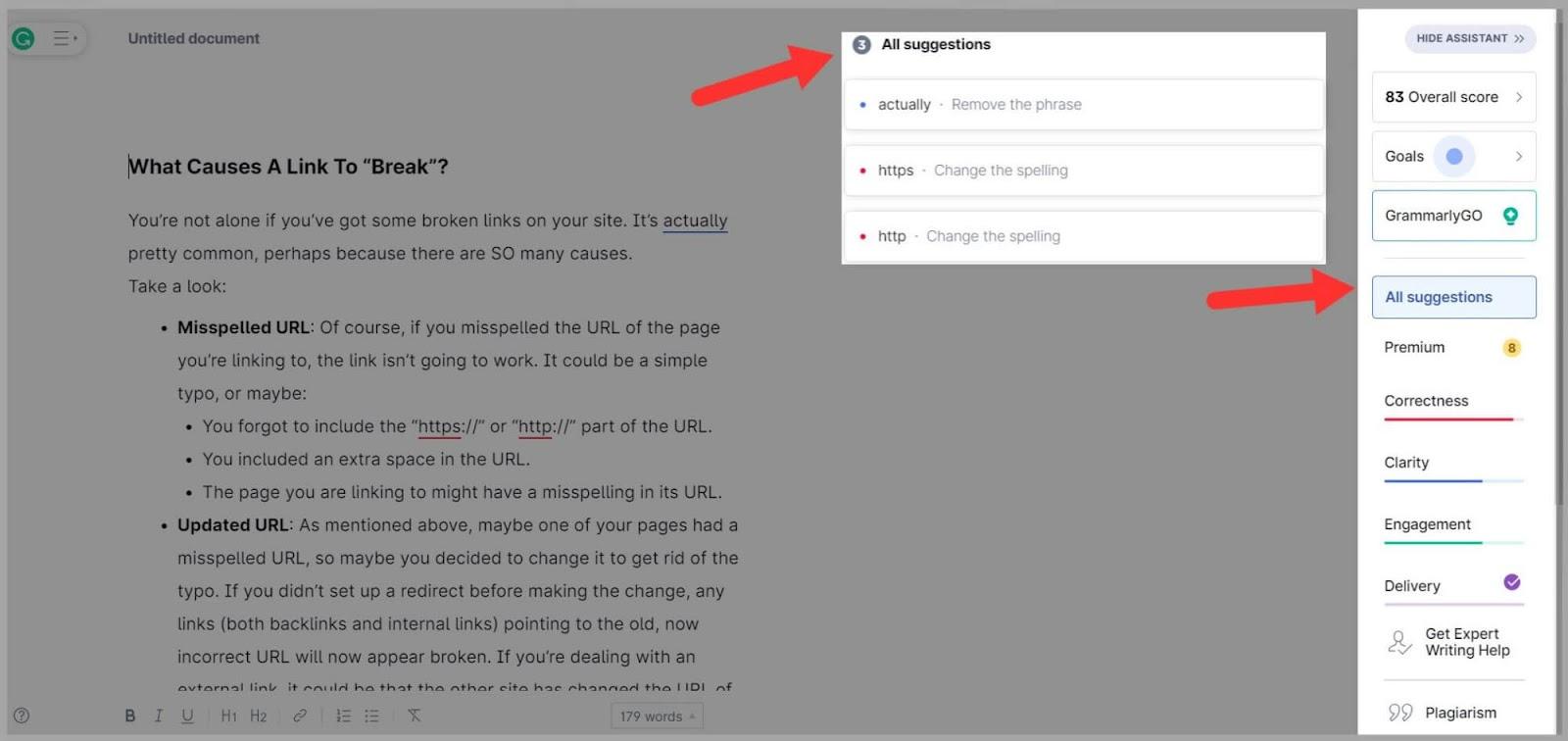
This helps you create engaging content that’s error-free which provides a much better experience for your readers.
19. Google Search Console
Get SEO help straight from Google.
No list of free SEO tools would be complete without the Google Search Console.
Why?
The GSC is a VERY feature-rich piece of SEO software. And unlike pretty much every other tool on the market, you know the data is legit.
(After all, it comes from Google.)
For example, you can use the Google Search Console as a rank tracker to check your site’s rankings in the SERPs.
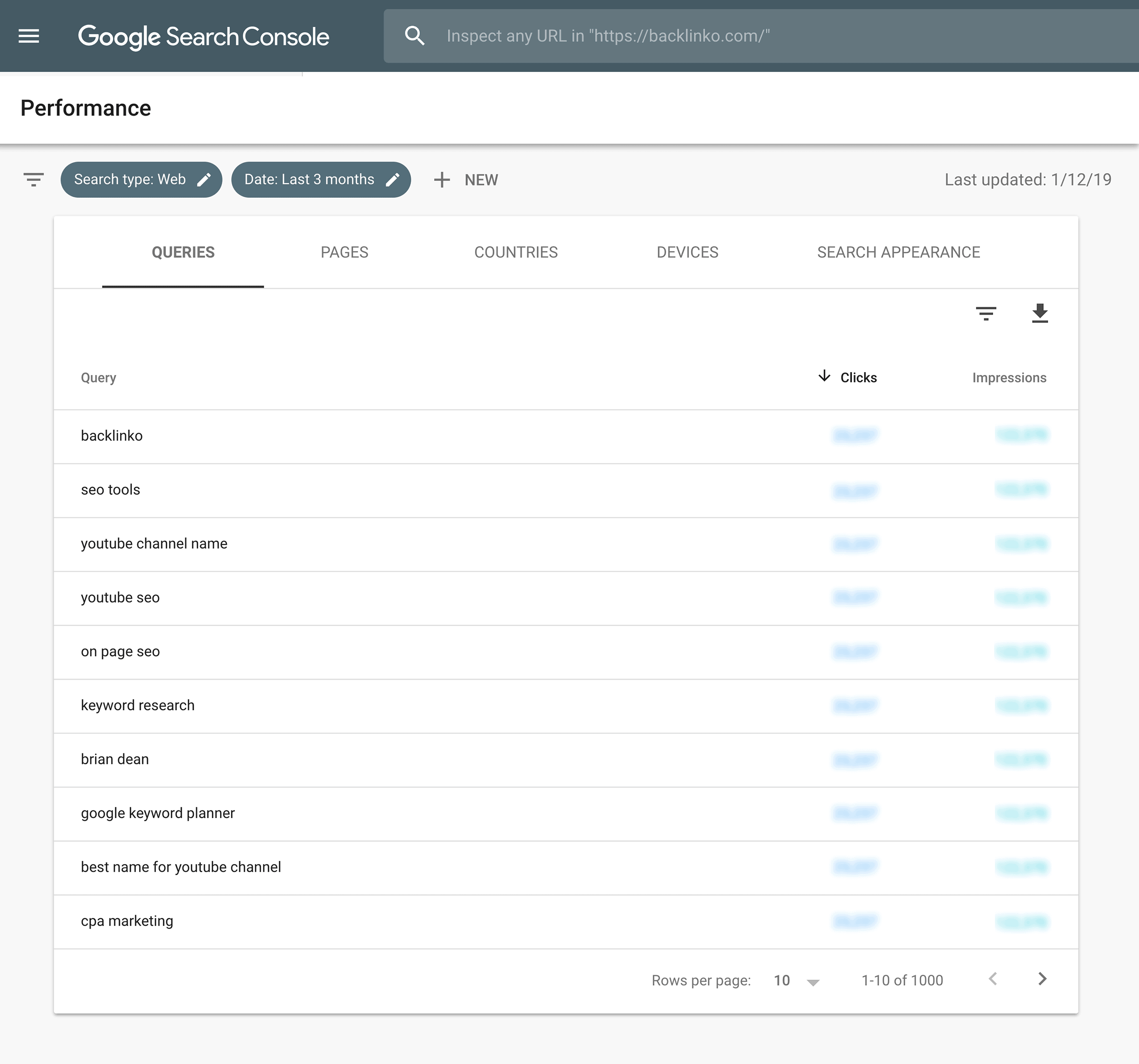
Best Feature: Index Coverage Report
The Index Coverage Report gives you a list of pages on your site that aren’t getting indexed.
You can also see how you can get things back on track.
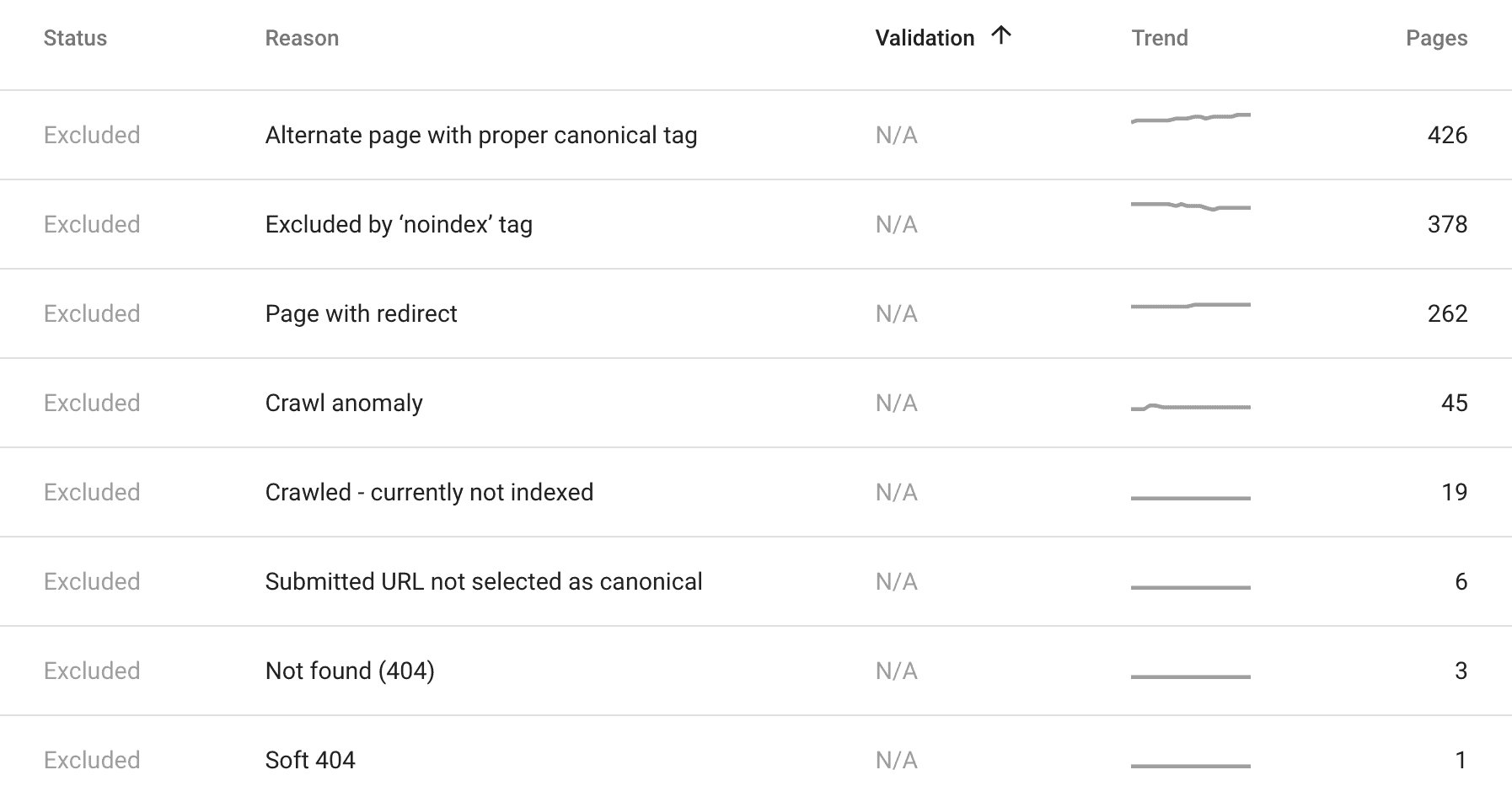
20. SERPerator
This awesome tool lets you check the SERPs across different locations and devices.
As you probably know, the search results change dramatically depending on where you are and what device you’re using.
(Especially for local searches, like: “pizza shop” or “landscaper”.)
And this tool lets you see exactly how the results will look for someone searching on a particular phone from pretty much any major city in the world.

Best Feature: Compare Devices
See how the results look on two different mobile devices… side-by-side.
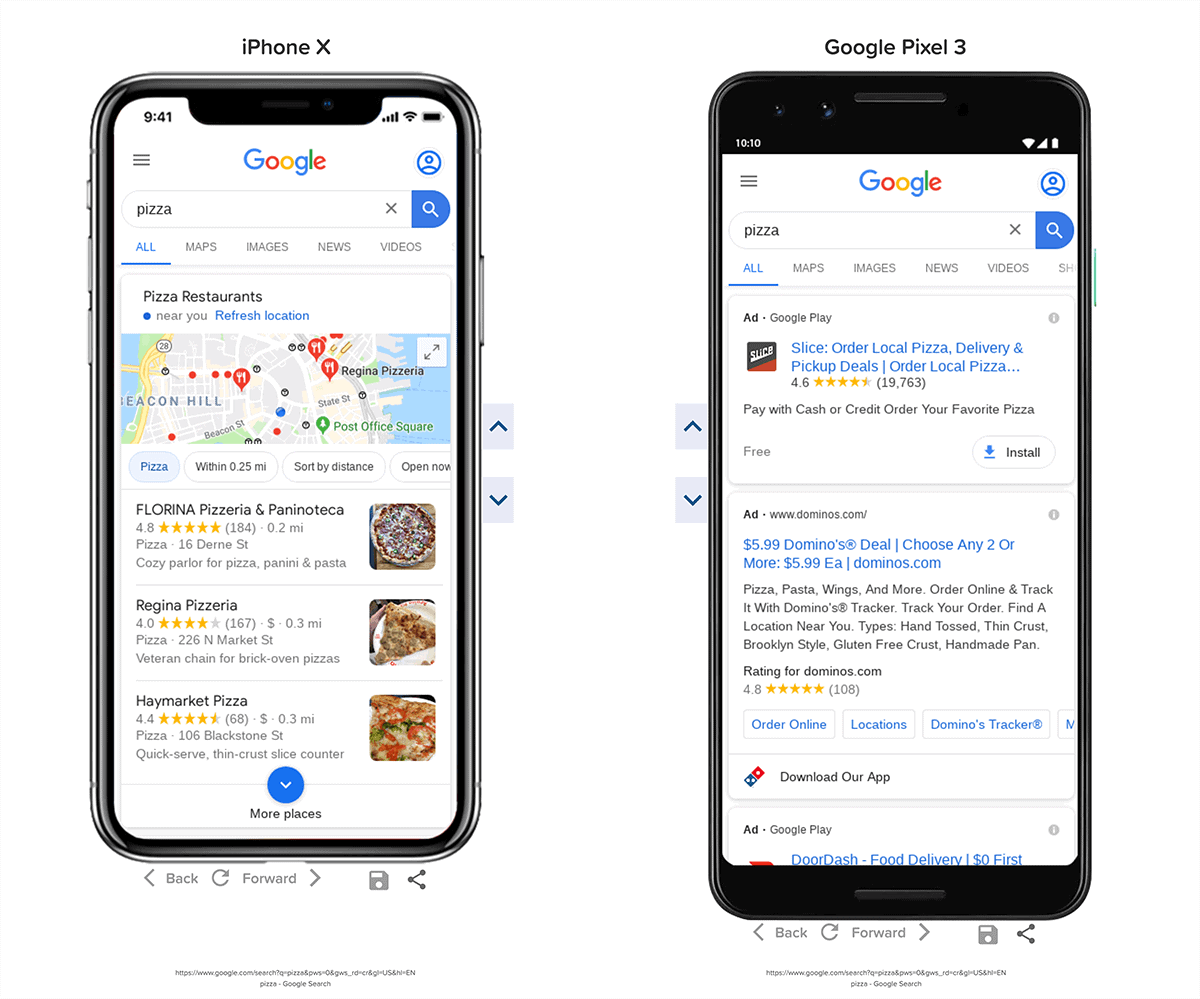
21. Google Trends
Like Exploding Topics, Google Trends gives you real-time information about trending topics.
You can take a look at the search interest trends for different keywords and see if they’re increasing or decreasing over time.
Simply enter your topic and select the region you’re interested in.
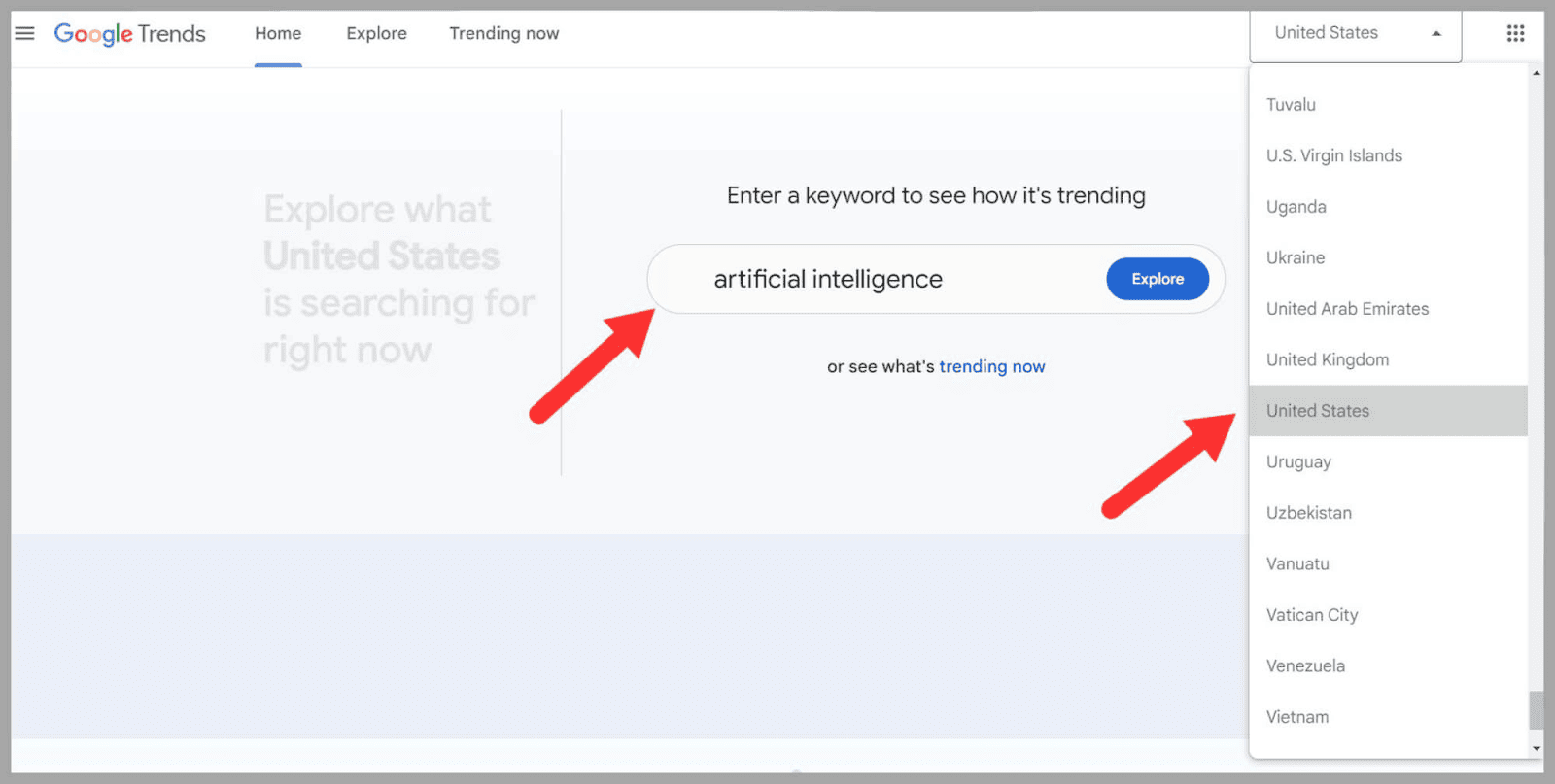
The tool will then present you with the search interest for the topic over your selected time frame.
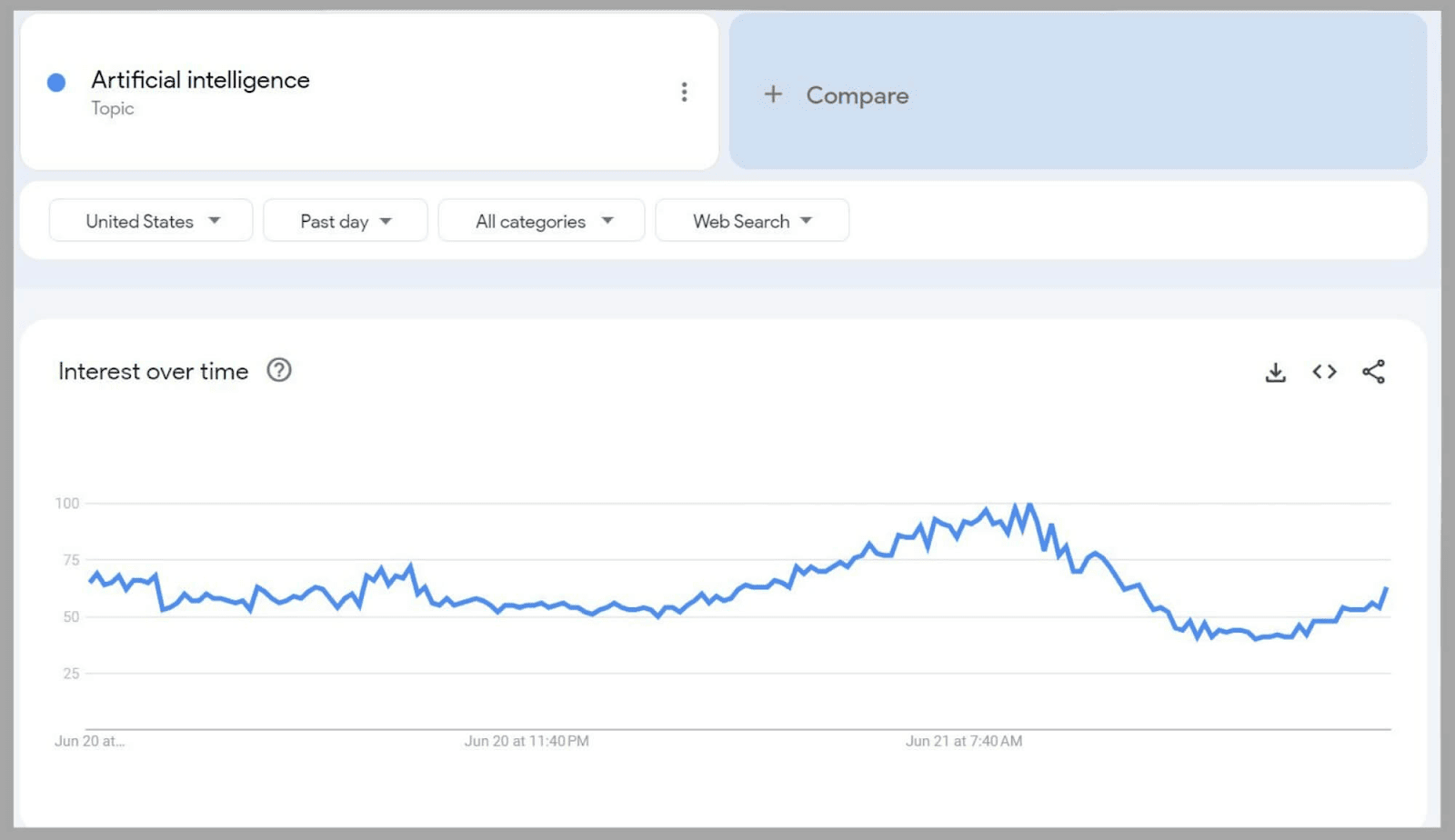
If you want to get more granular, scroll down to the “Interest by subregion” section to see how popular the search term is across different locations.
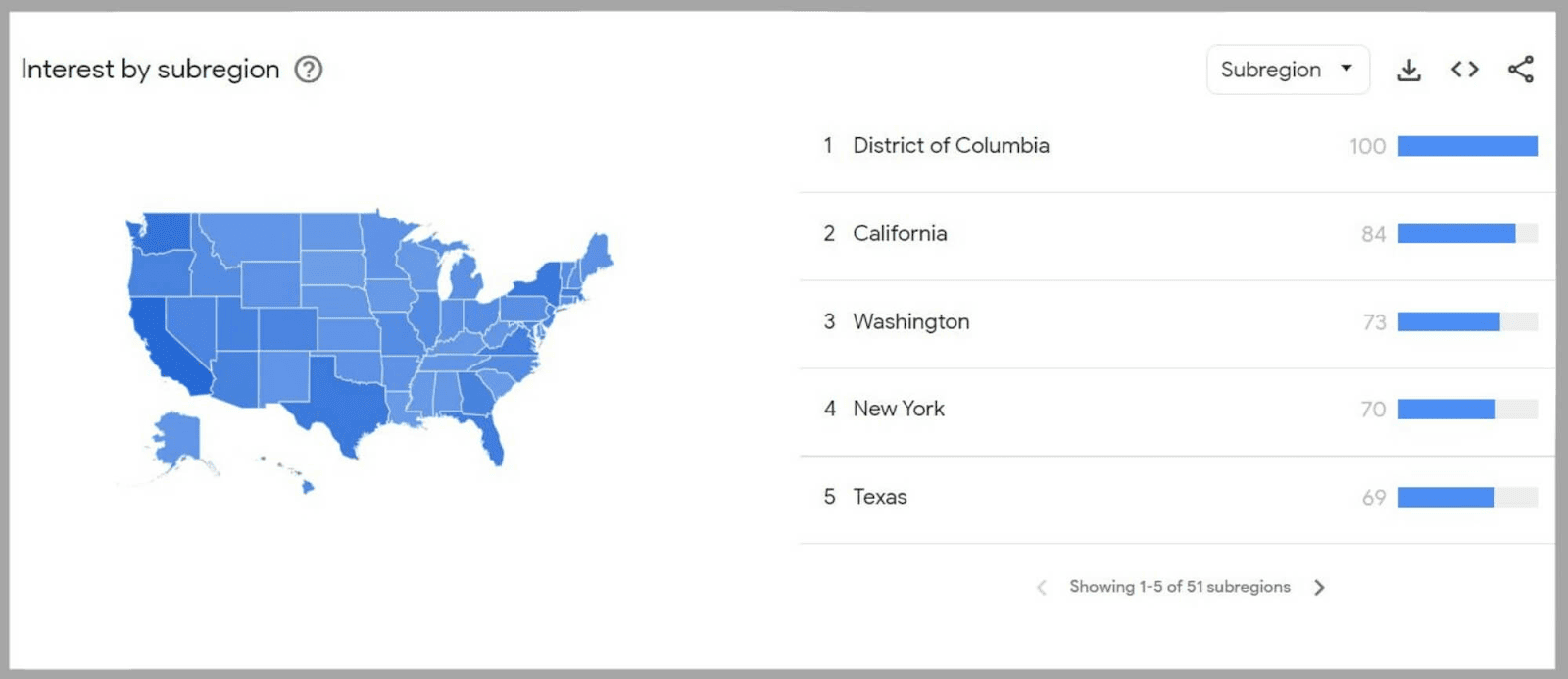
On top of that, Google Trends has a feature that allows you to compare 2 or more topics against each other. This helps you identify which topic has more search interest.

Pretty cool.
Google Trends is great to use when doing niche research as well.
22. Rank Math
Rank Math is a brilliant WordPress SEO plugin that can help you to optimize your site and improve your rankings.
There are paid versions available but the free version gives you access to a good amount of features.
This includes:
- 5 free AI credits
- 18 pre-defined schema types
- Auto canonical URLs
- Google Search Console integration
- Advanced SEO analysis tool
- 1-click import from Yoast SEO and AIO SEO
- 1-click import for SEOPress
- SEO warnings
- SEO analysis score
- SEO failed tests
- Import AIO schema rich snippets
- 30+ detailed SEO tests
- Setting up redirects
And MUCH more.
One of the best things you can use Rank Math for is title tag and content optimization.
To use it, you provide a focus keyword and Rank Math gives it an SEO score.
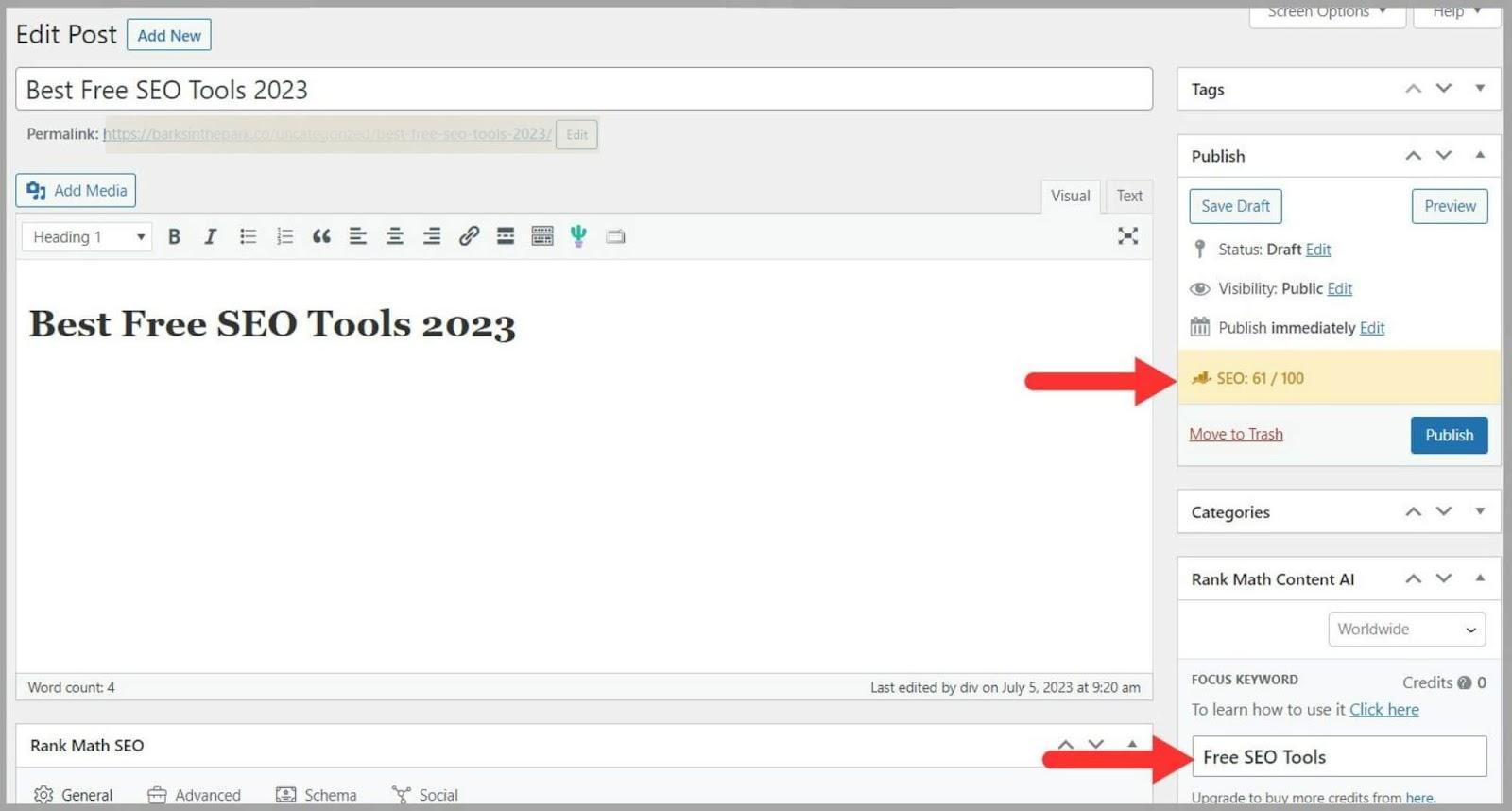
Rank Math then tells you if your Focus Keyword has been used in your content’s title tag, meta description, URL, and body content.
It also gives you suggestions about how to optimize your content more effectively.
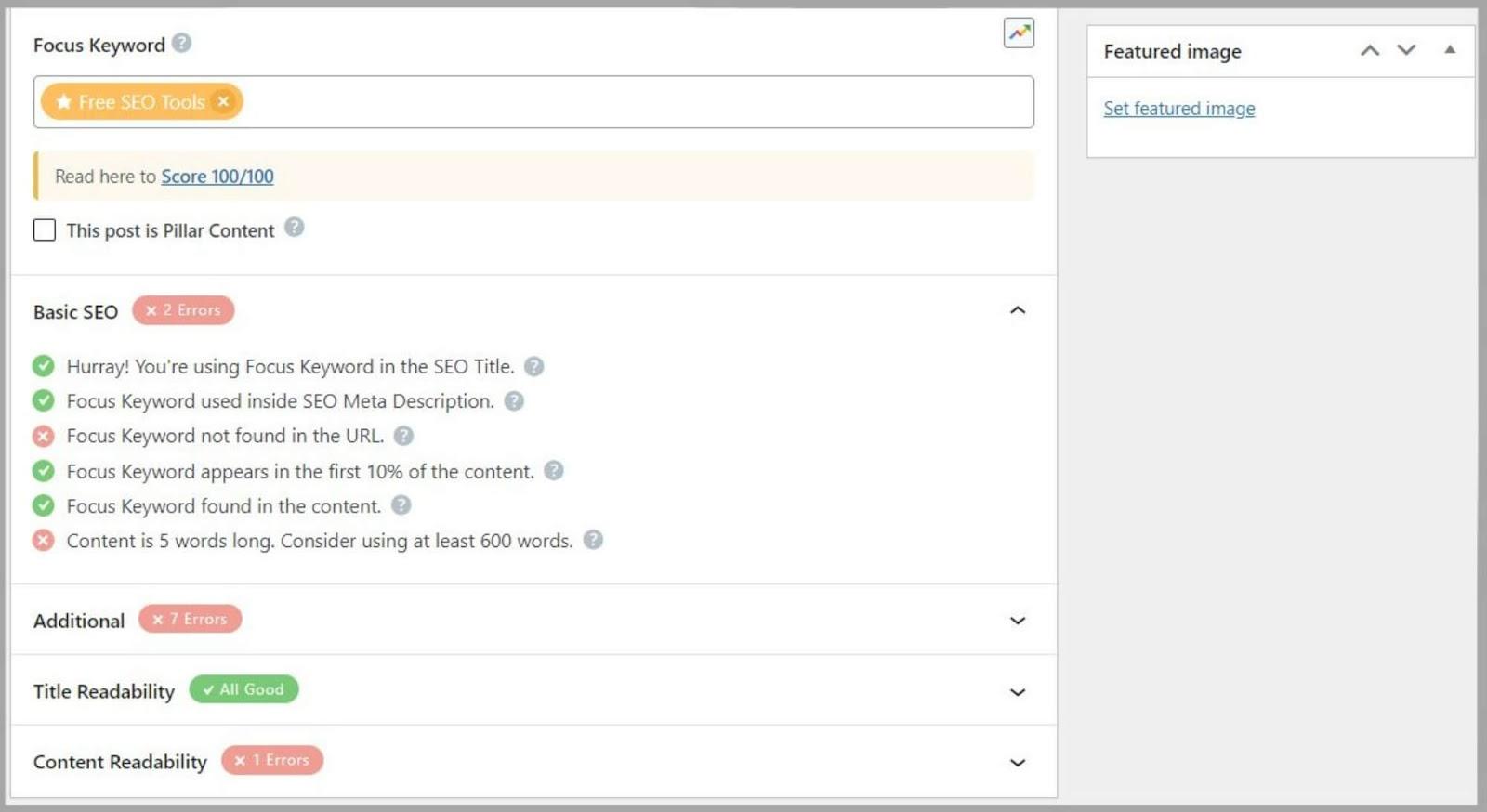
This is an excellent way to make sure that your content is fully optimized and that it keeps you climbing up the SERPs.
23. Screaming Frog
Find and fix technical SEO issues in seconds.
Let’s face it:
Finding technical SEO problems on your site can be a HUGE pain.
Enter: Screaming Frog.
This nifty tool crawls your site using a Google-like crawler. And it generates a report of potential issues (like HTTP header errors, javascript rendering issues, bloated HTML, and crawl errors).
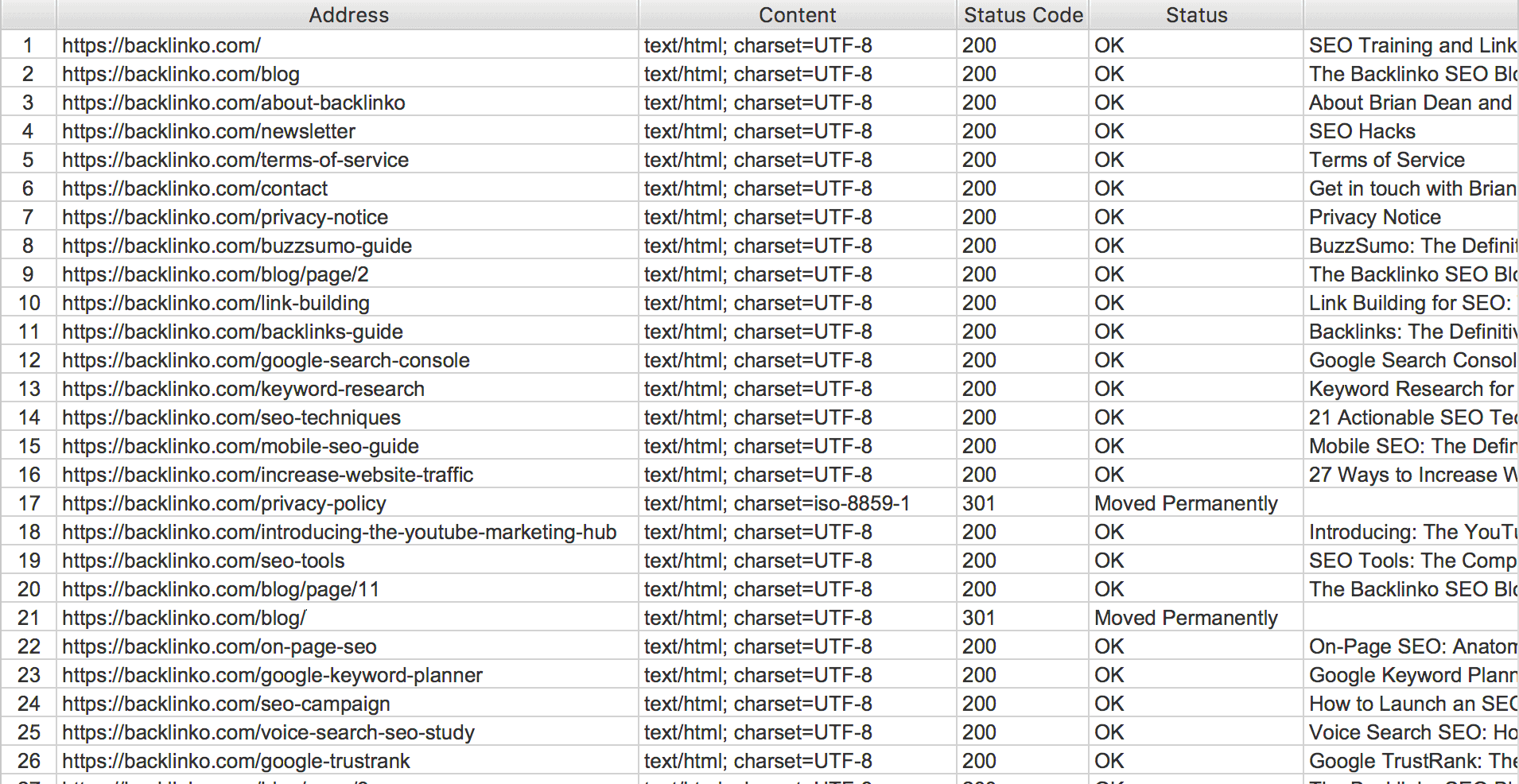
Best Feature: Discover Duplicate Content
As you might have heard, Google HATES duplicate content.
Fortunately, you can use Screaming Frog to quickly ID pages with duplicate content.
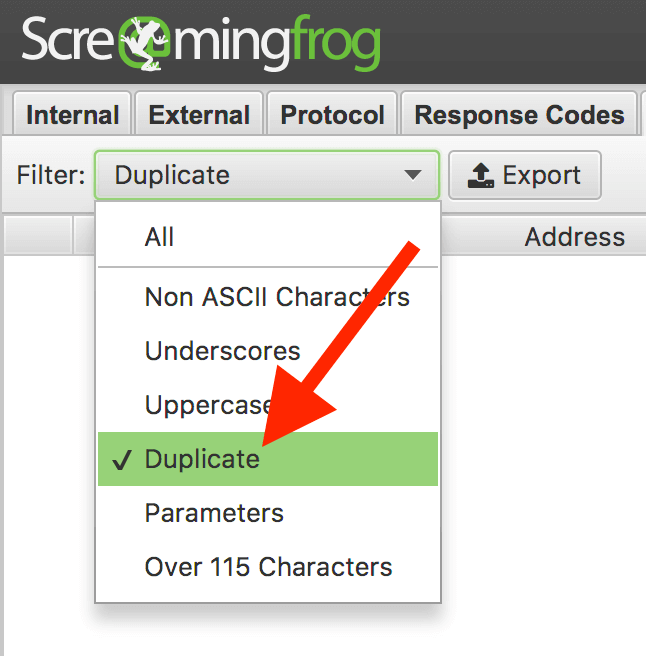
24. Soovle
Soovle gathers popular keywords from platforms like Google, YouTube, Amazon, Wikipedia, Bing, Yahoo, and Answers.com.
It gives you a database of terms that you can use to improve your search engine rankings.
By just typing in a keyword, you can see related terms that users are searching for on major platforms.
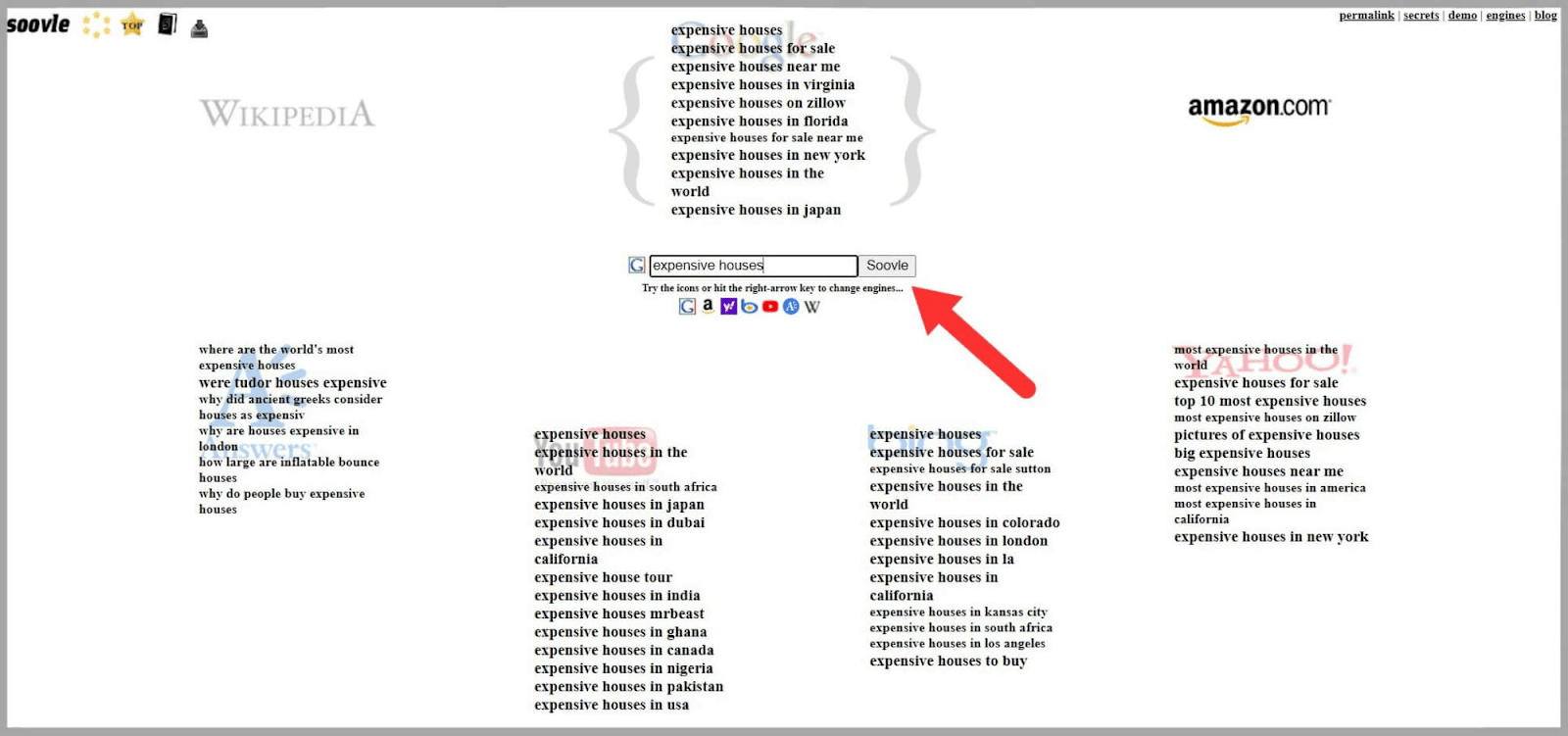
It may be one of the older SEO tools out there but there’s a reason it’s still so popular.
However, it’s worth bearing in mind that you don’t get search volume and keyword difficulty scores with the suggestions.
25. ShortPixel
If the images on your site have large file sizes then they’re probably slowing down your page load speeds. This can be super frustrating for users and can lead to high bounce rates you definitely don’t want.
ShortPixel is an excellent tool that allows you to compress and resize your images allowing for faster page load times.
It gives you the option to upload JPG, GIF, and PNG files that are up to 10 MB in size. To remove this size restriction, you just need to sign up for a free account.
All you need to do is choose your SmartCompress level and then upload your files.
ShortPixel then automatically compresses and optimizes the images without sacrificing quality.
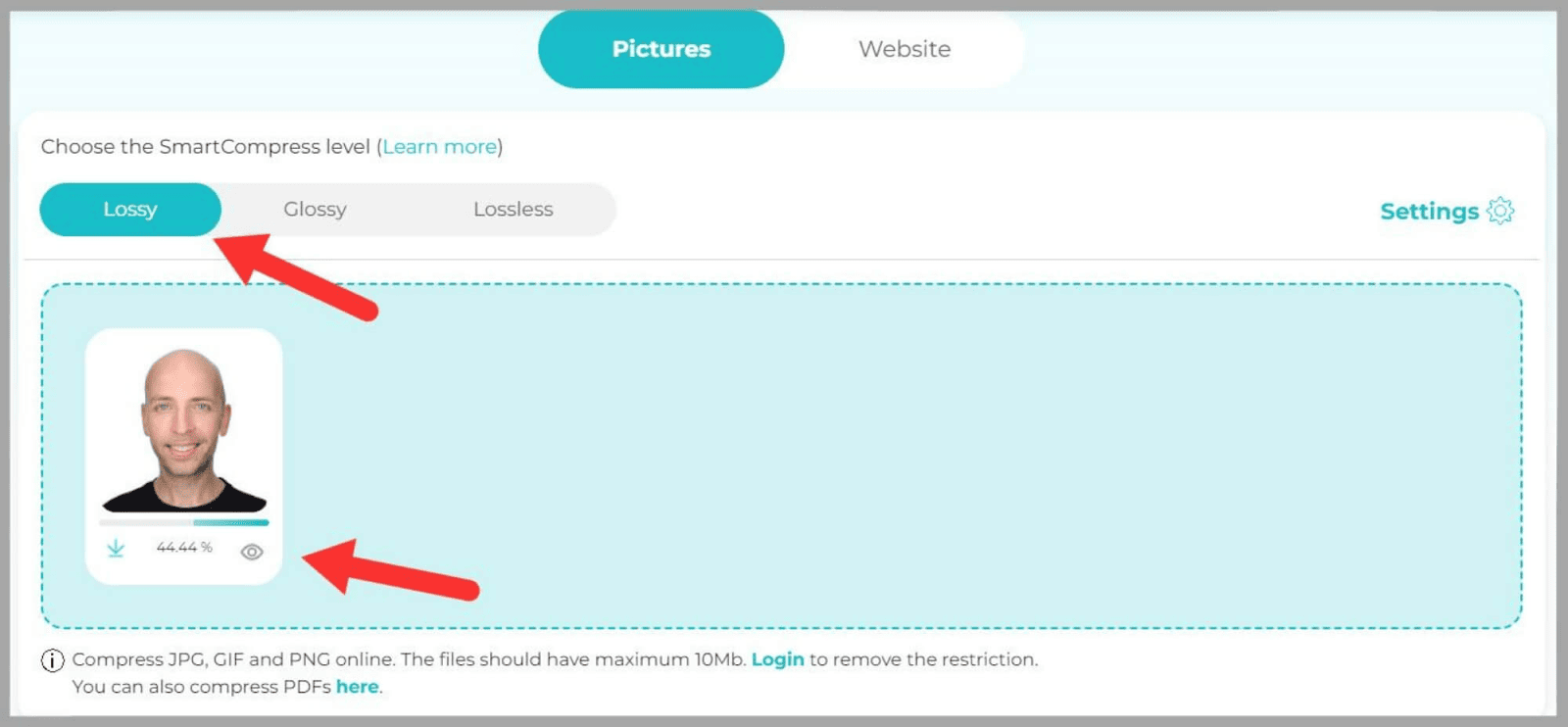
ShortPixel also allows you to input your URL so it can analyze your site and optimize the images it finds. This helps to improve your site’s performance.
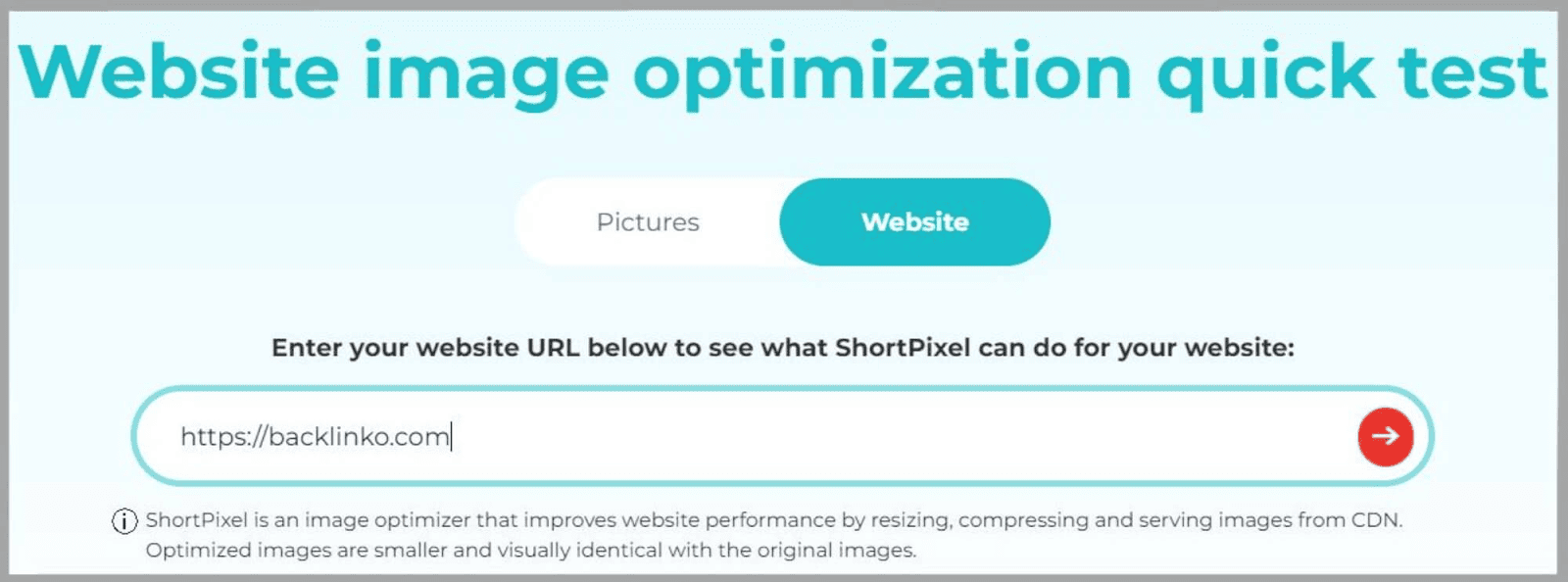
Awesome.
26. Google Analytics
See how people find and interact with your site.
OK, OK. Google Analytics isn’t really an SEO tool.
But it’s almost impossible to run an SEO campaign without it.
Why?
The data in Google Analytics tells you whether or not your SEO efforts are paying off.
I’m talking about data like:
- Organic traffic
- Bounce rate
- Traffic sources
- Time on site
- Page speed
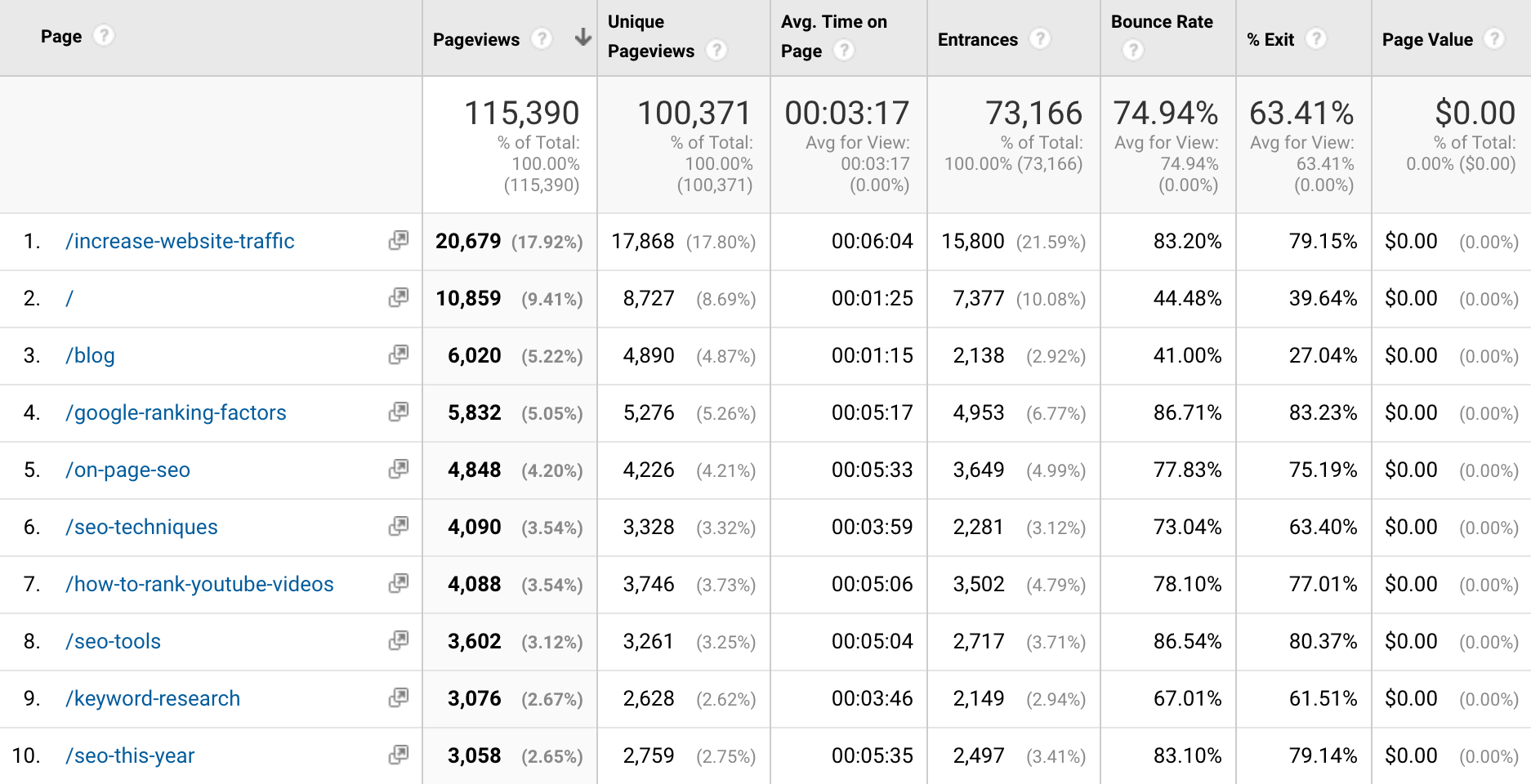
Best Feature: Google Analytics and Google Search Console Integration
Google Analytics is super powerful on its own.
But when you combine it with the Google Search Console?
It’s even MORE powerful.
Linking your GSC account with GA hooks you up with helpful info, like the keywords people use to find your site, your organic CTR, and more cool stuff.
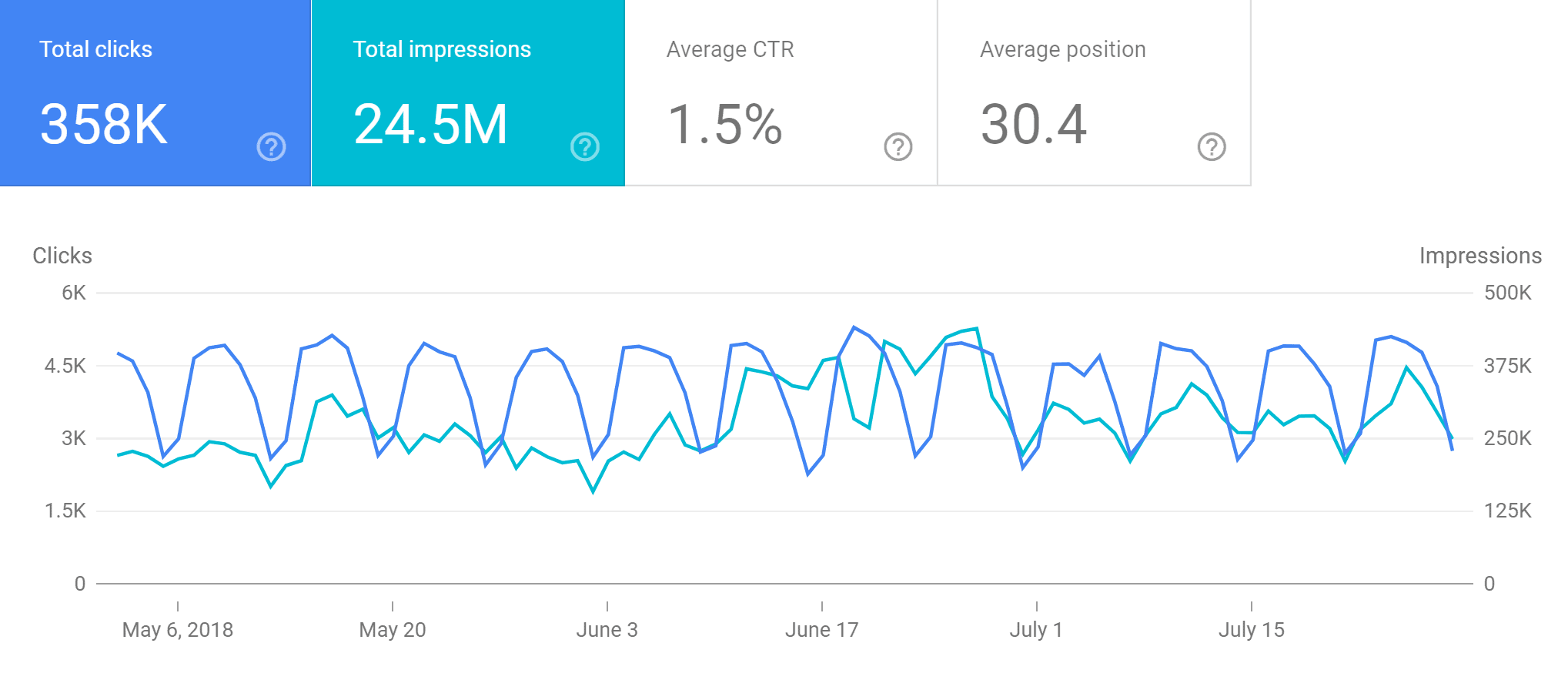
27. Reddit Keyword Research Tool
This is one of my favorite little keyword research tools.
Why? Because it can bring up terms that I probably wouldn’t find with any other tool.
This tool scrapes Reddit words and phrases that tend to crop up in specific subreddits.
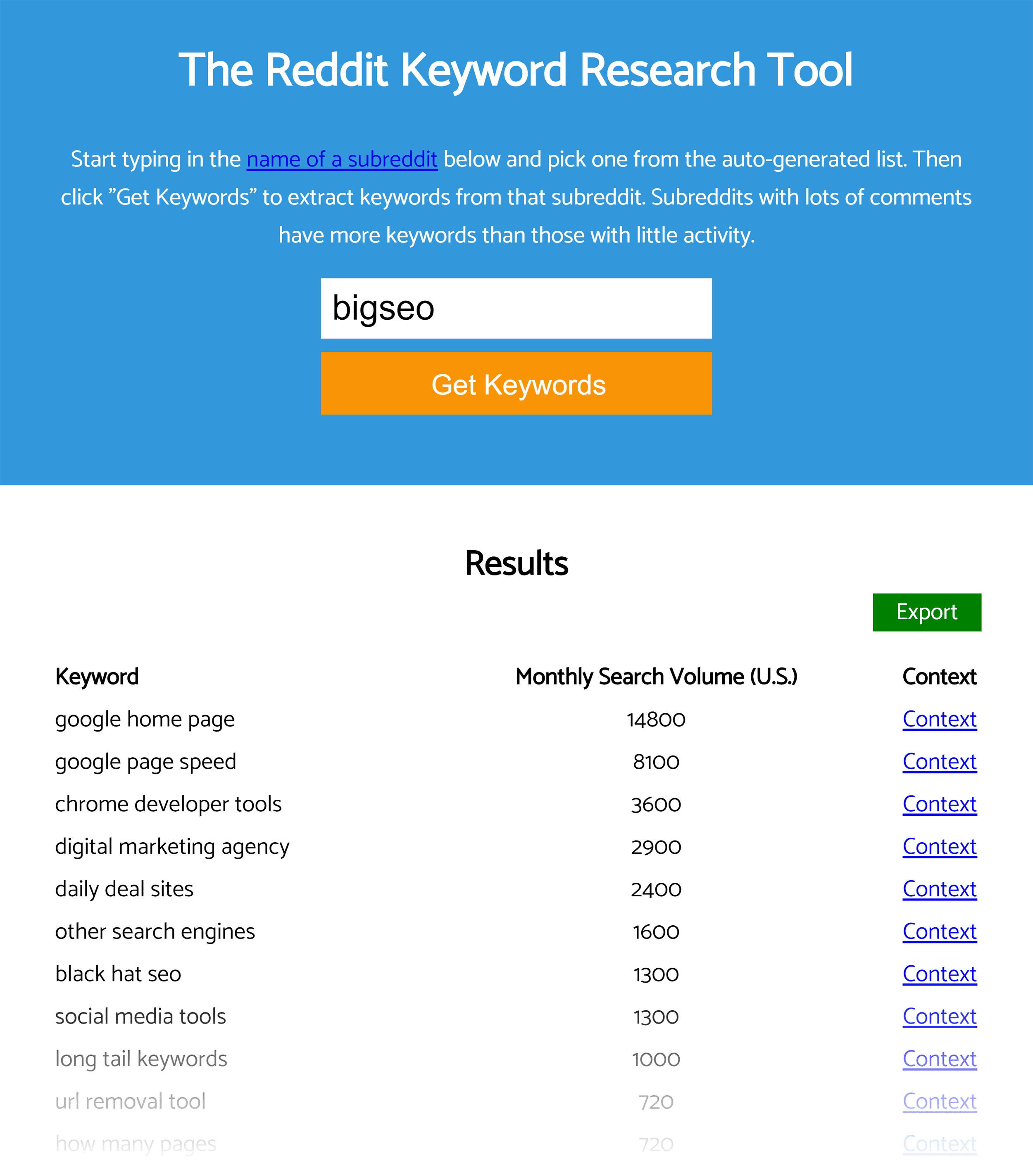
So if you know where your target audience hangs out on Reddit, this is a goldmine of keyword and content topic ideas.
Best Feature: Context
This feature takes you to the actual thread on Reddit.
That way, you can see exactly how that keyword is used in discussions.
28. MozBar
Mozbar is a killer browser extension that saves you time by allowing you to see the domain authority (DA) of sites right in the SERPs.
But why is this helpful?
Let’s say you want to target a keyword to rank for.
With MozBar, you can search for the term in Google and see the DA and page authority (PA) score for the ranking sites without having to leave the SERP. This allows for a quick evaluation of the competition and potential opportunities.

The free version also allows you to examine search results from alternative search engines and on-page elements such as:
- Page title
- Meta description
- Heading tags
Plus, you can also highlight different types of links present on a page such as Dofollow and Nofollow internal and external links.
If you need to quickly check the ”canonical tag” on the page, you can do that too, as well as see how long the page takes to load.
29. Yoast WordPress Plugin
The best SEO plugin for WordPress.
If your site runs on WordPress, you need to install Yoast ASAP.
It’s by far the most robust SEO plugin on the market.
The best part? It’s 100% free.
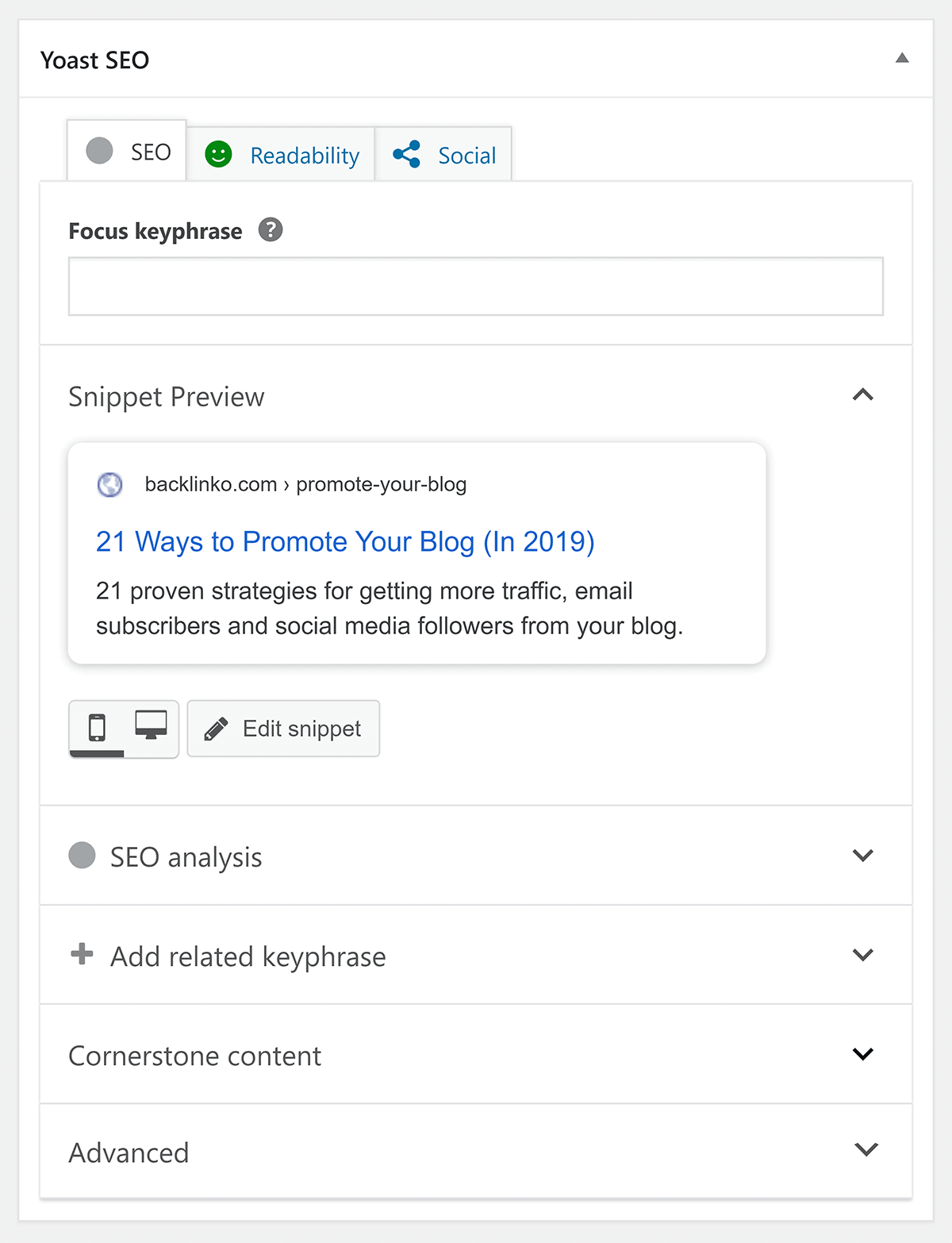
Best Feature: XML Sitemap Generator
Sitemaps help Google and other search engines find, crawl and index all of the pages on your site.
And with the Yoast plugin, you don’t have to tinker with your sitemap every time you add a new page to your site.
That’s because Yoast updates your sitemap automatically. Cool.
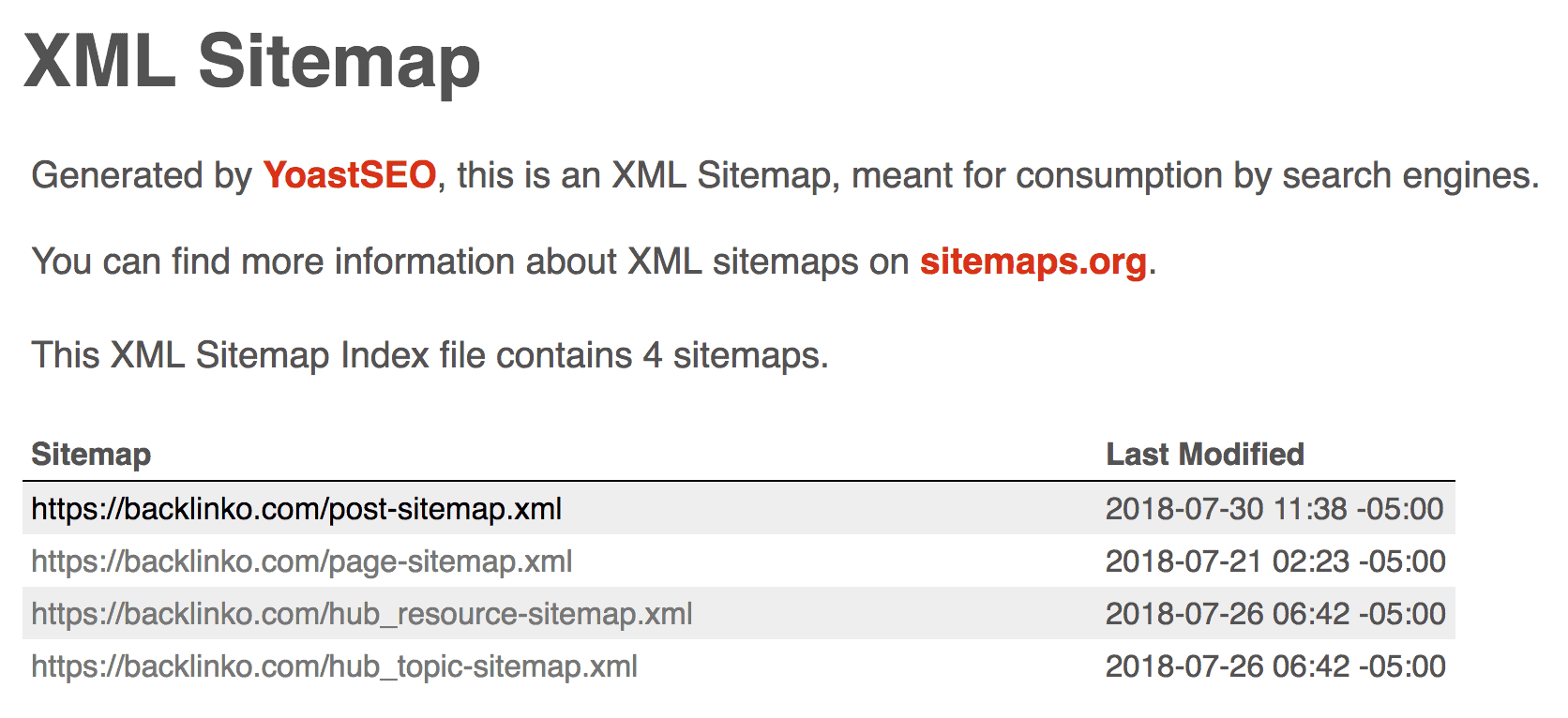
30. Panguin Tool
Get to the bottom of a rankings drop.
This tool correlates your search traffic with known Google updates.
Why is this helpful?
Well, if you notice that your rankings dropped around the time of a big Google update, you can figure out what went wrong… and fix it.
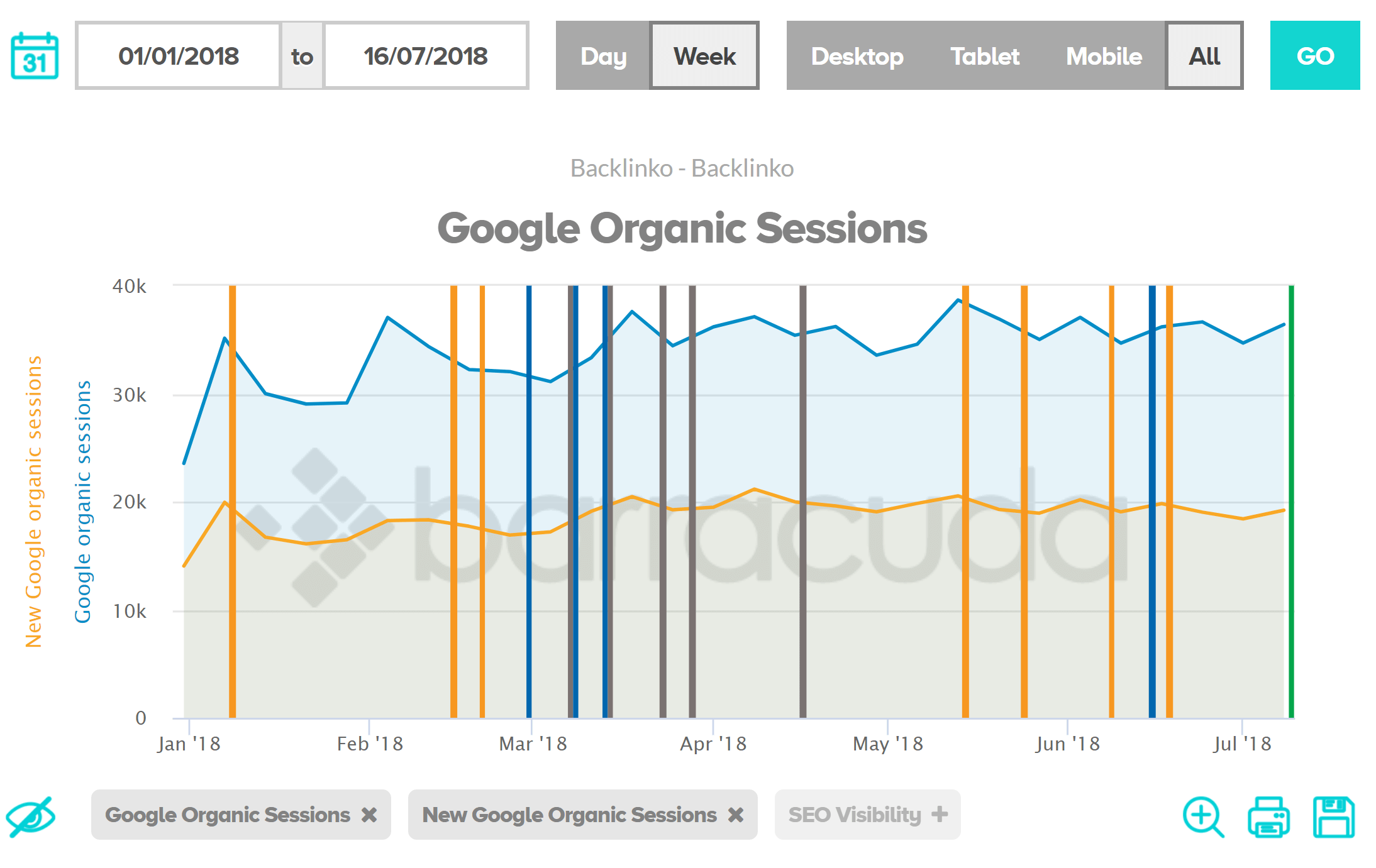
Best Feature: Switch Updates On/Off
Panguin makes it easy to zero in on a specific update.
For example, if you’re a local business that focuses on local SEO, you can only have Panguin ONLY show you Google updates that impacted local results.
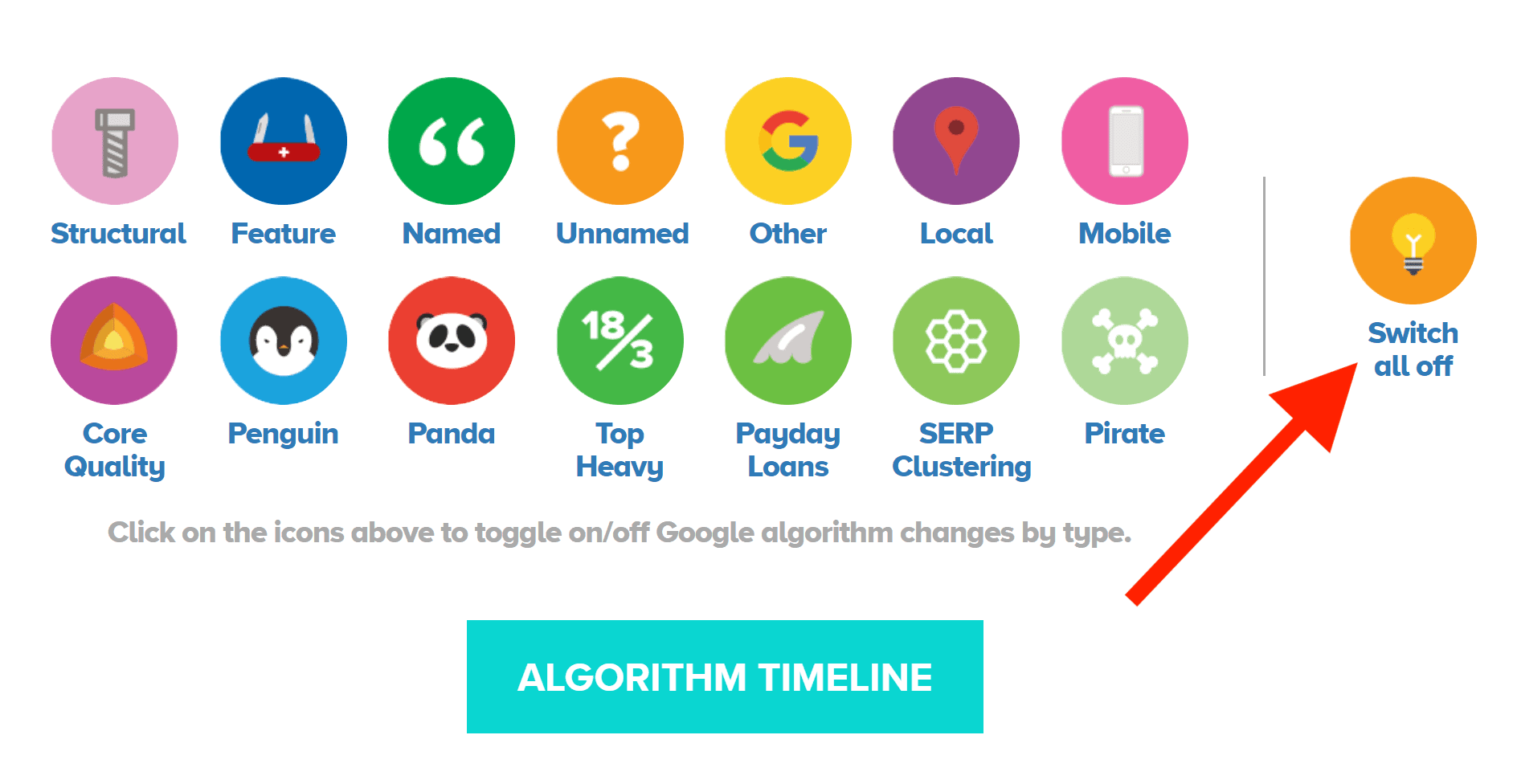
31. Wordtracker Scout
Steal your competitor’s keywords.
Wordtracker scout takes a unique approach to keyword research…
Instead of entering keywords into a tool, Wordtracker shows you the most common terms on a page.
That way, you can go over to one of your competitor’s pages… and grab the keywords they’re using in their content.
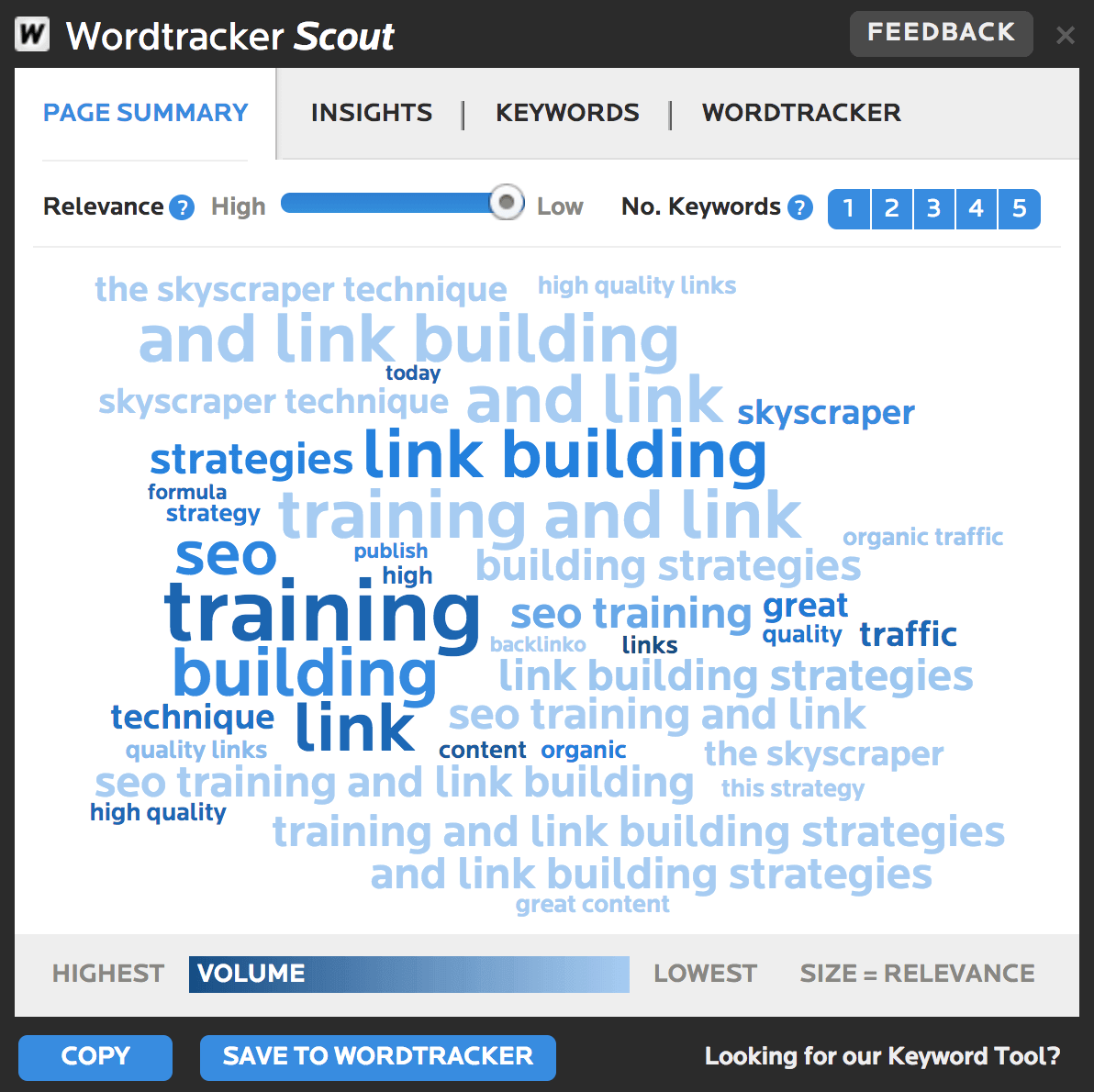
(Note: This is only available as Chrome extension and isn’t supported for Firefox)
Best Feature: Opportunity
Shows you which keywords on your list have the best ratio of search volume and competition.
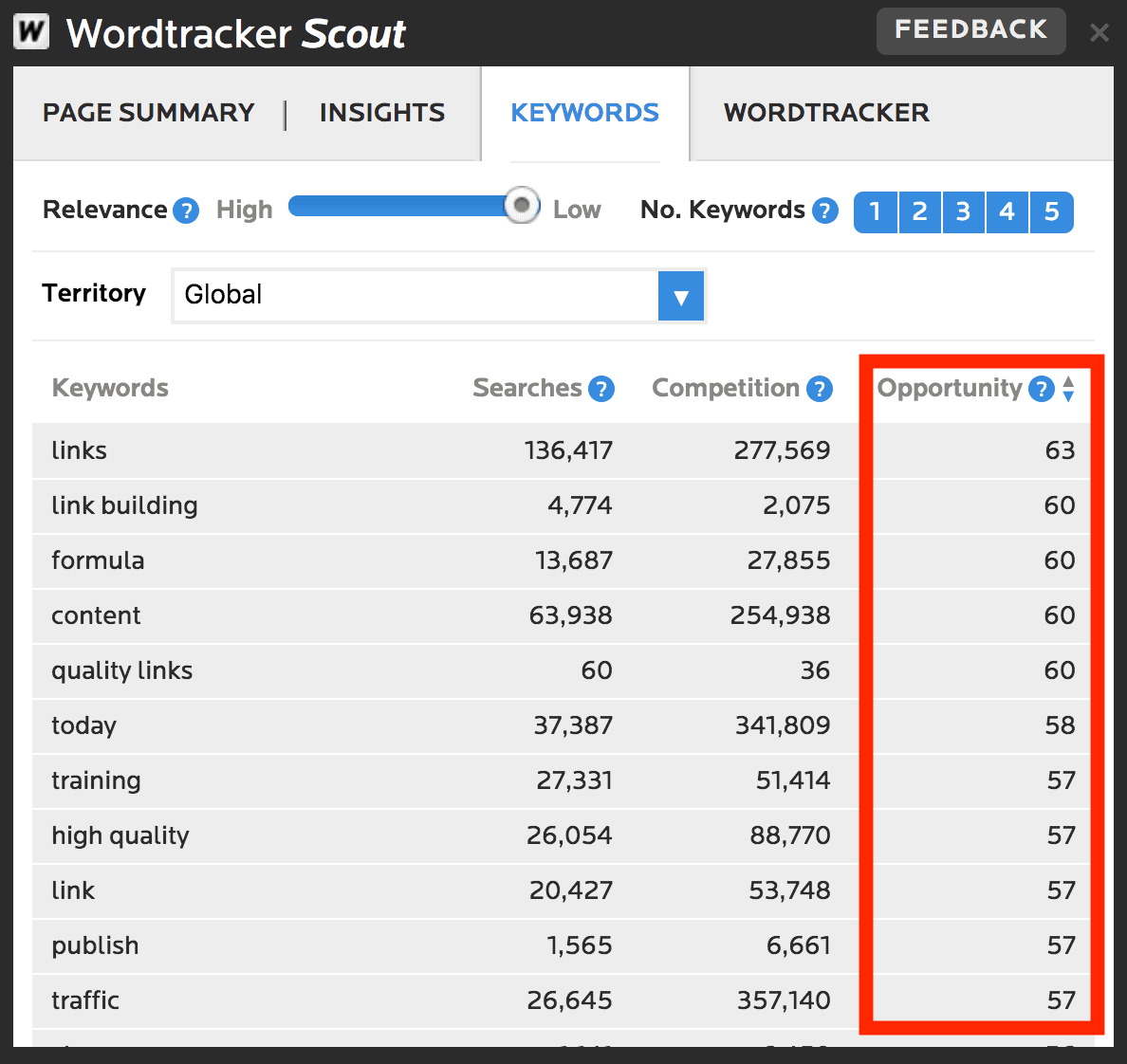
32. Cloudflare
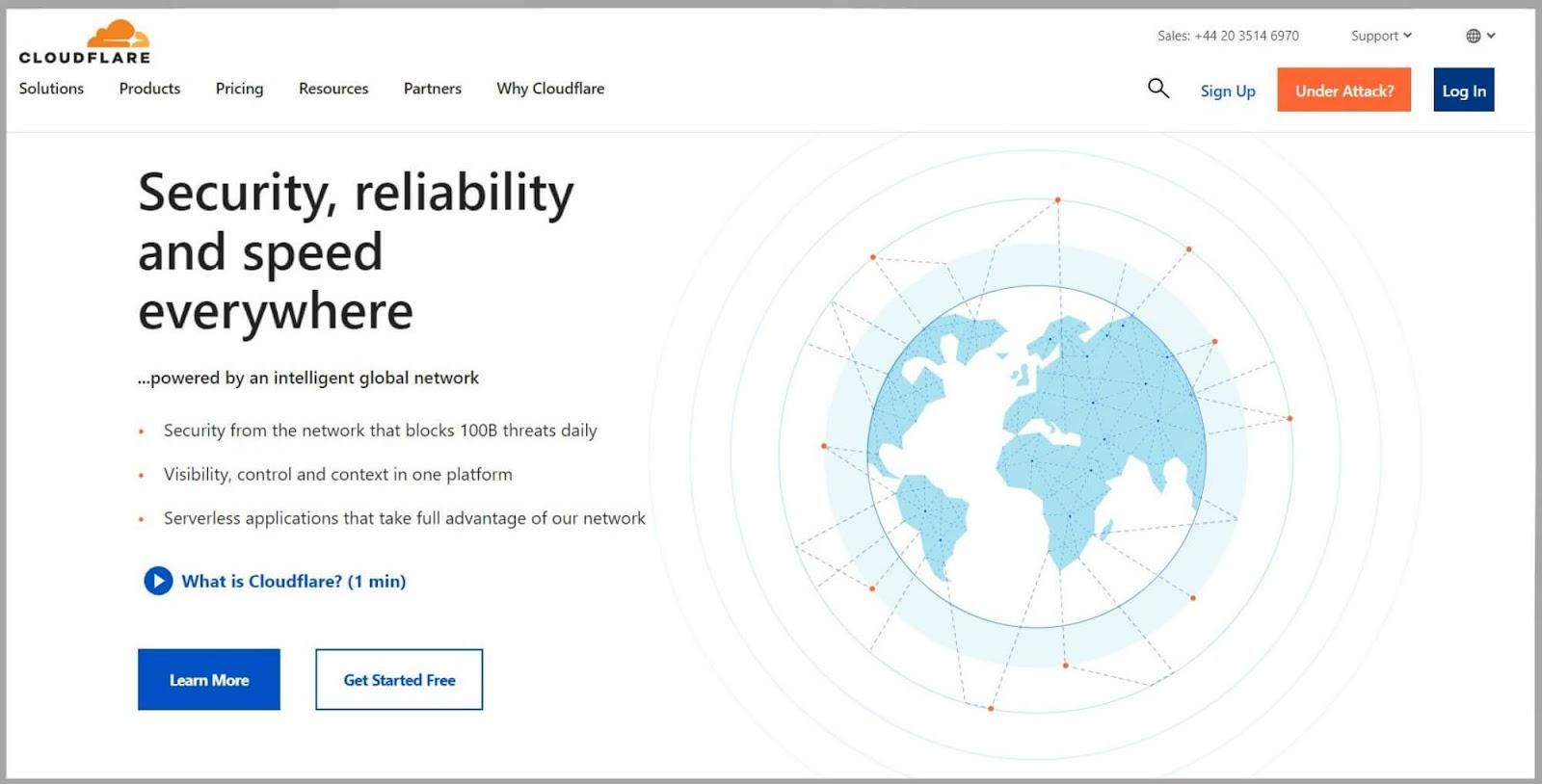
Cloudflare is a content delivery network (CDN) that caches static content across multiple servers.
Using a CDN means that content can be served to users from a location close to them which results in faster page load times.
It also automatically provides a free SSL certificate for your site.
This is really sweet as HTTPS makes your site more secure and is a ranking factor for Google as well.
33. ChatGPT
You’ve definitely used ChatGPT by now, but did you know you can use it for SEO?
Well, you can!
The tool is actually really versatile and you can use it to create optimized content, suggest keywords, generate schema markup, create meta titles, and much more.
To get the best results, you need to make sure you use detailed prompts.
Take a look at what I’ve asked ChatGPT to generate for me:

It’s important to know, the content ChatGPT gives you isn’t ready to just publish on your site.
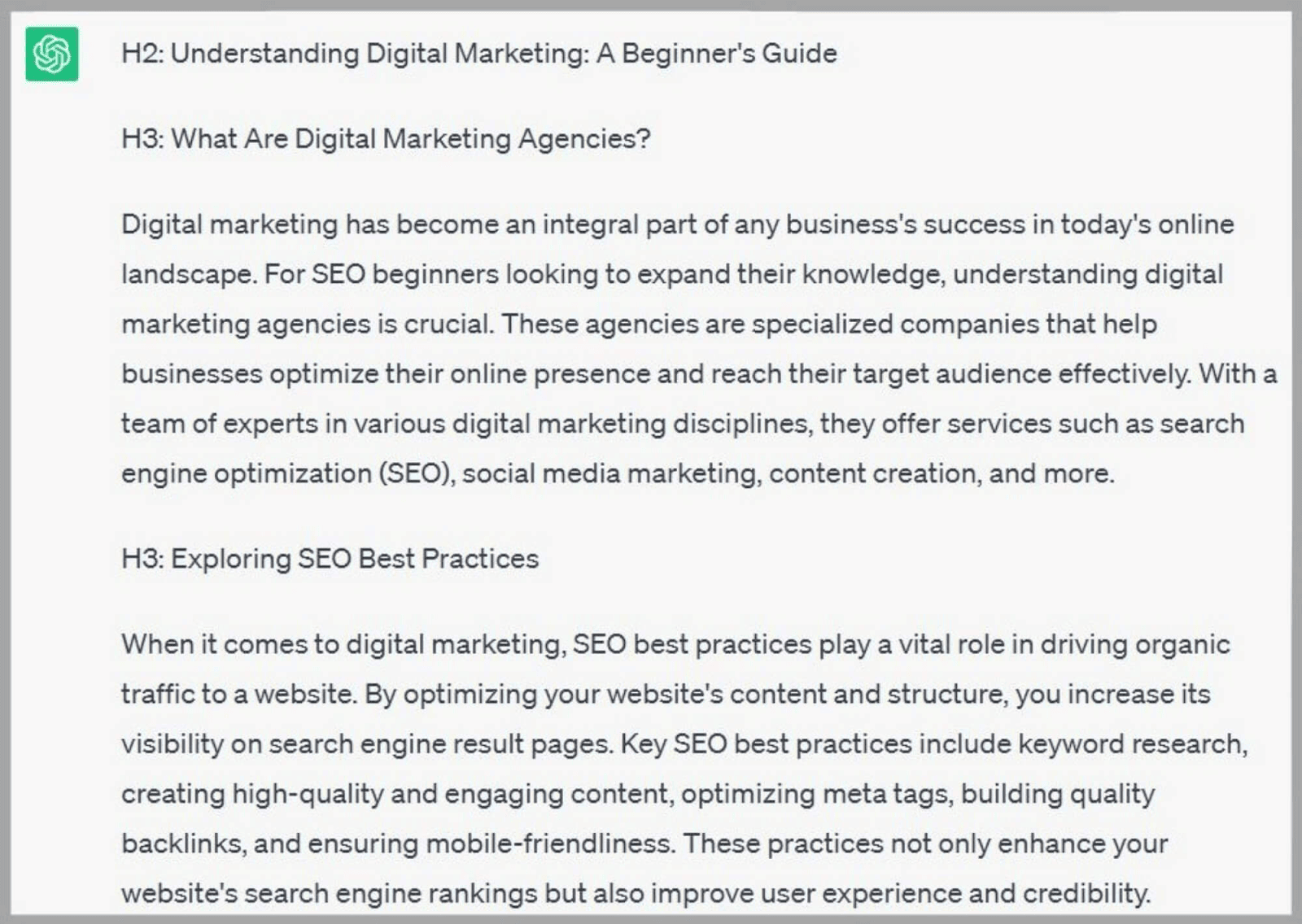
But with a bit of tweaking and a decent amount of rewriting, you’ll have optimized content for your site in a fraction of the amount of time it would’ve taken to create it from scratch. Check out my ultimate guide on how to use ChatGPT for SEO.
34. BrightLocal’s Local SERP Checker
When you’re doing local SEO, it’s important to optimize your pages so they have a good chance of ranking for location-specific keywords.
Luckily, BrightLocal’s Local SERP Checker is a free tool that helps you do just that.
BrightLocal’s Local SERP Checker provides valuable insights into local search results. You can use this tool to analyze SERPs at a local level.
It allows you to assess your visibility, identify opportunities for optimization, and track the performance of your local SEO efforts.
By understanding the local search landscape, you can make data-driven decisions to improve your site’s visibility and attract more local customers.
So how does it work?
You input your keyword and location and then choose your country and language.
You can also choose whether you want to see results from Google Search or Google Maps.
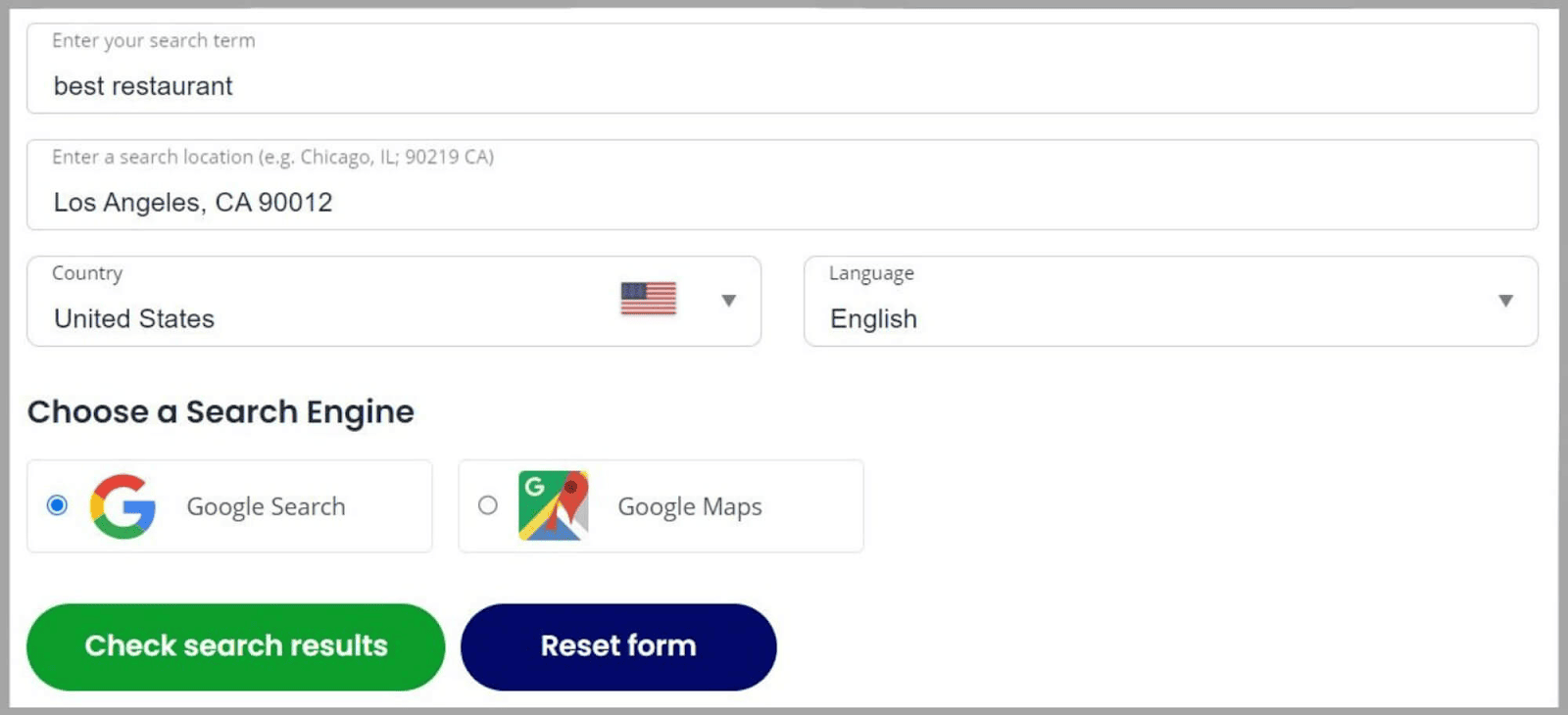
If you choose the Google Search option, then the results look like this.
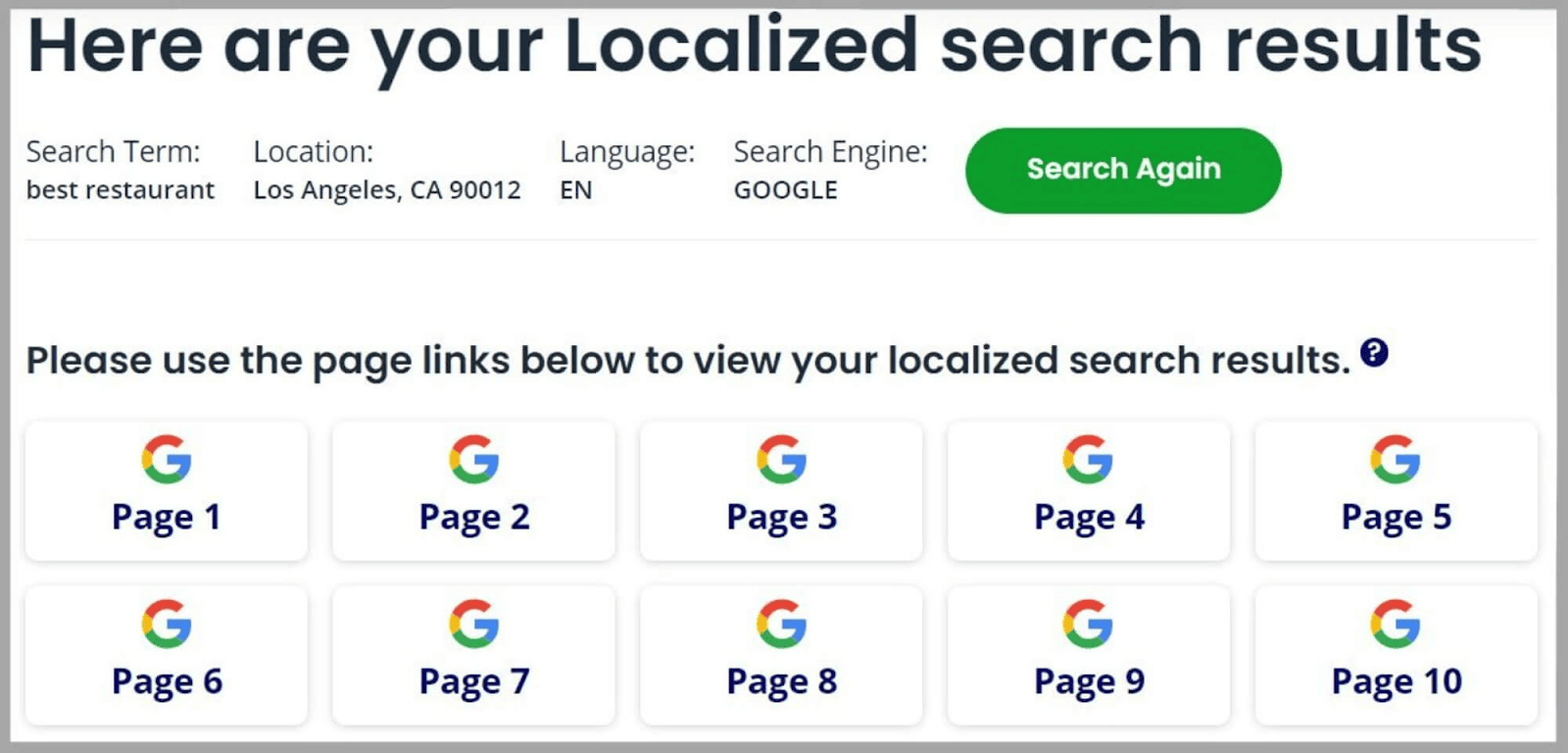
You can then click on each button and it takes you straight to the SERPs.
If you choose the Google Maps option, then this is what you get.
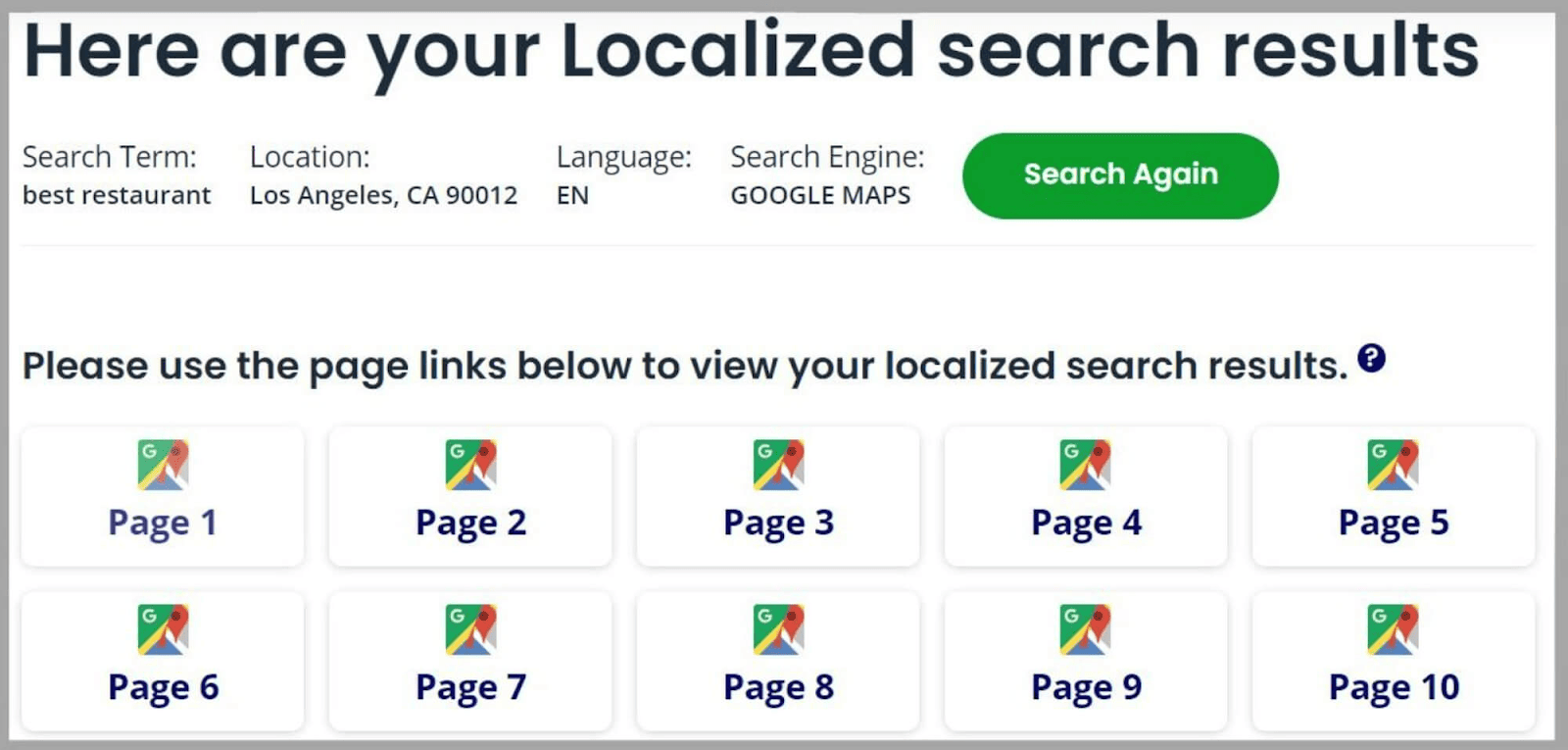
Likewise, the buttons take you to the results for the relevant pages on Google Maps.
This information then helps you to better optimize your SEO efforts for targeted geographical locations.
So, you can ensure maximum visibility and relevance in the locations that matter most to your business.
35. Hunter.io
Hunter.io is a great way to find email addresses that you can use in your link-building campaigns.
Instead of manually finding them yourself, using Hunter.io means you can just enter a domain and instantly find the email addresses associated with it.
You can save the email addresses you’re looking for as leads.
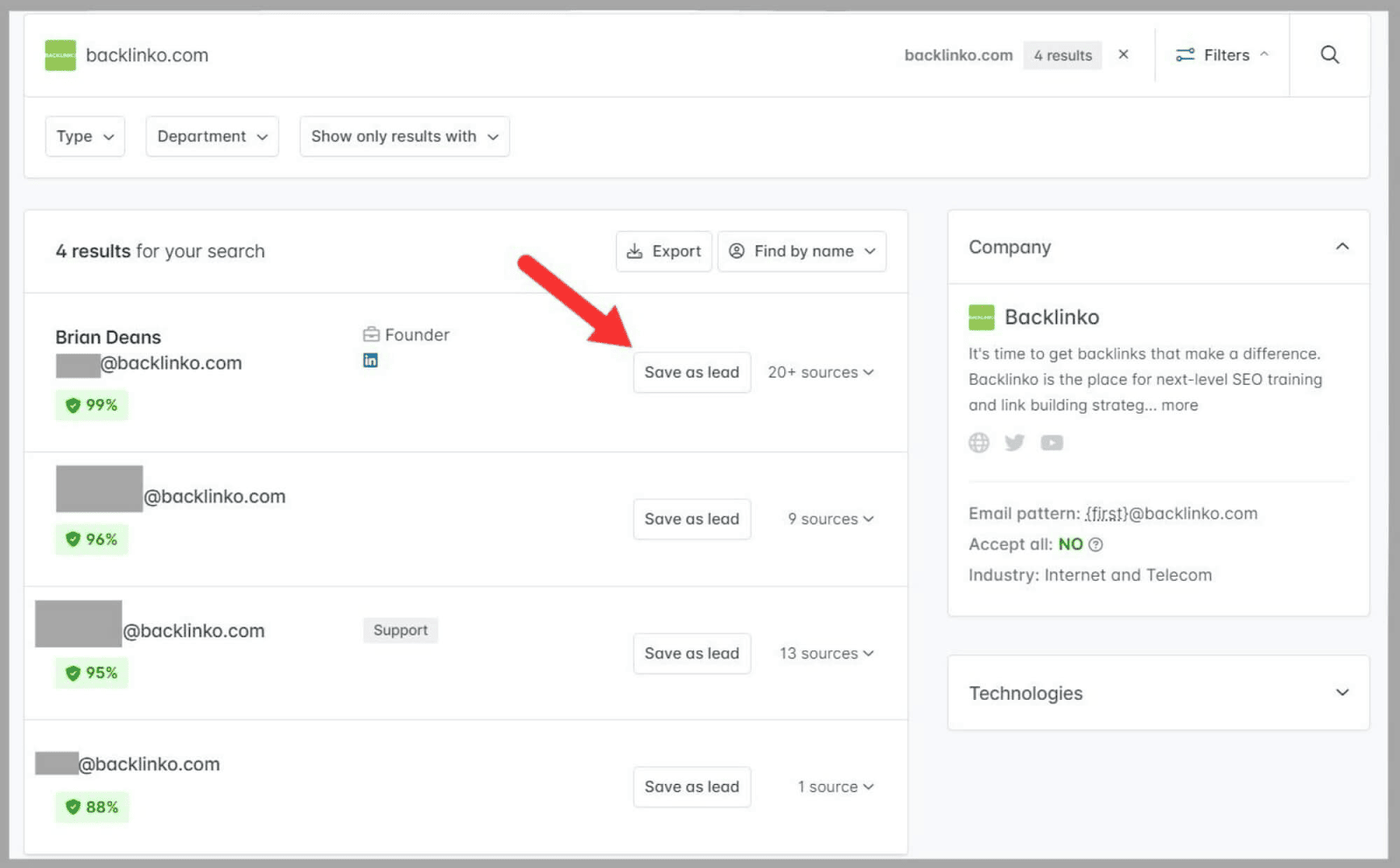
Plus, you can filter the results by type and department so that you only see the email addresses you need for your campaign.
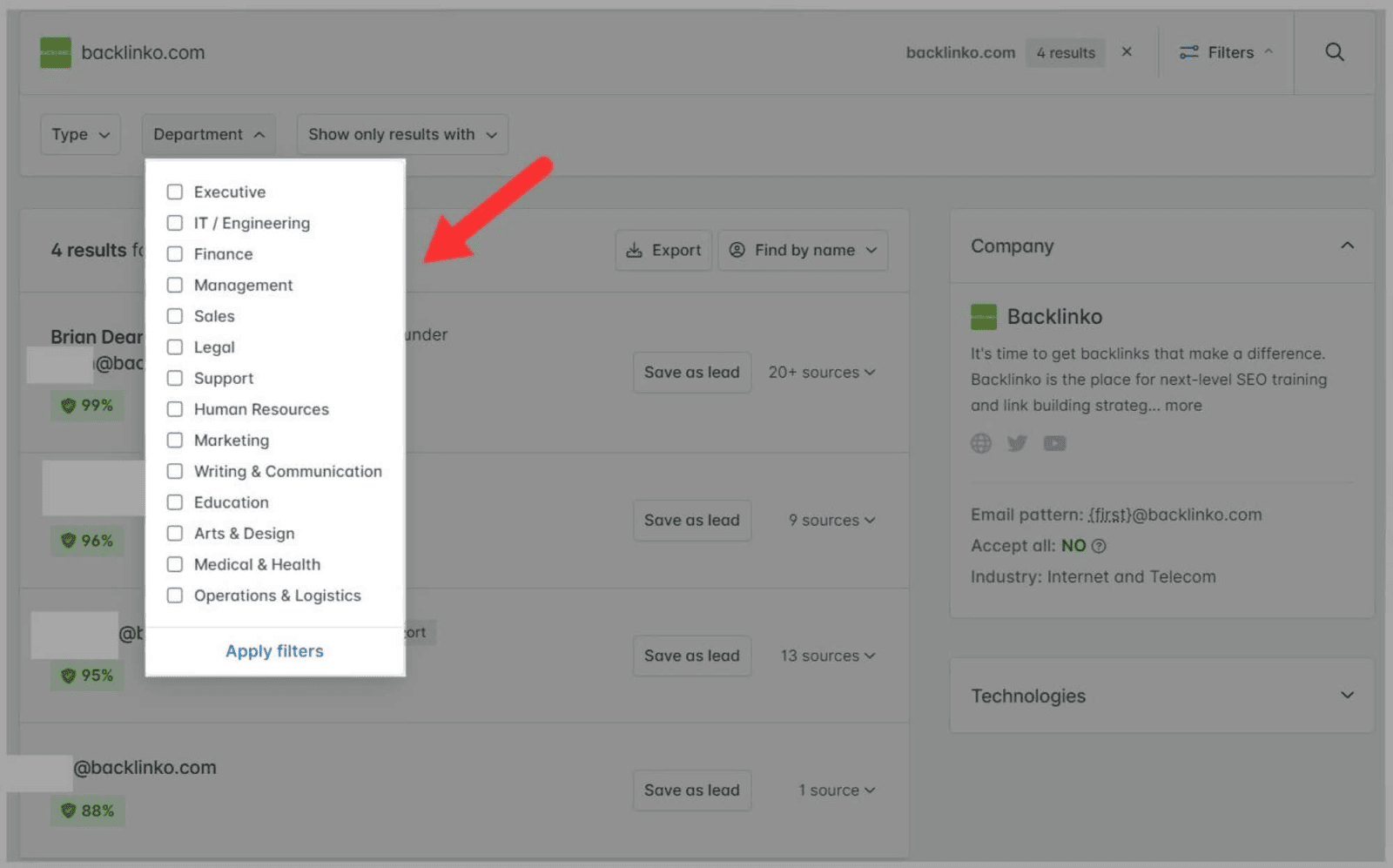
This tool can speed up your link-building outreach effort.
Very nice.
36. Lipperhey
Powerful website analyzer.
Lipperhey is a full-featured SEO analyzer that doesn’t cost a penny.
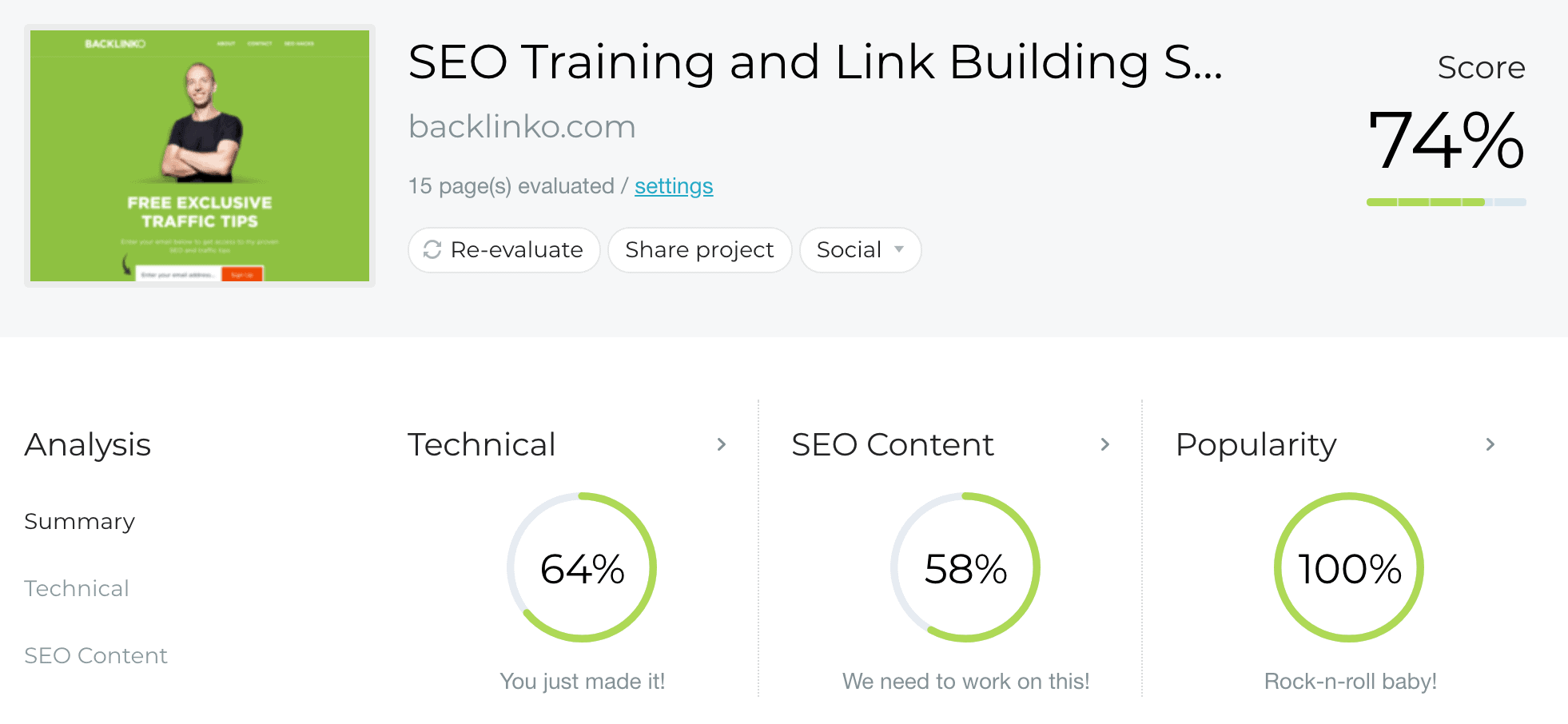
Best Feature: Keyword Suggestions
Get a list of keywords to add to specific pages on your site.
(Which can help you get more organic traffic from long-tail keywords.)

37. Bing Webmaster Tools
Optimize your site for Bing.
Bing Webmaster Tools is basically the Google Search Console… but for Bing.
So if you want to get your site indexed (and ranked) in Bing, Bing Webmaster Tools is a must-have.
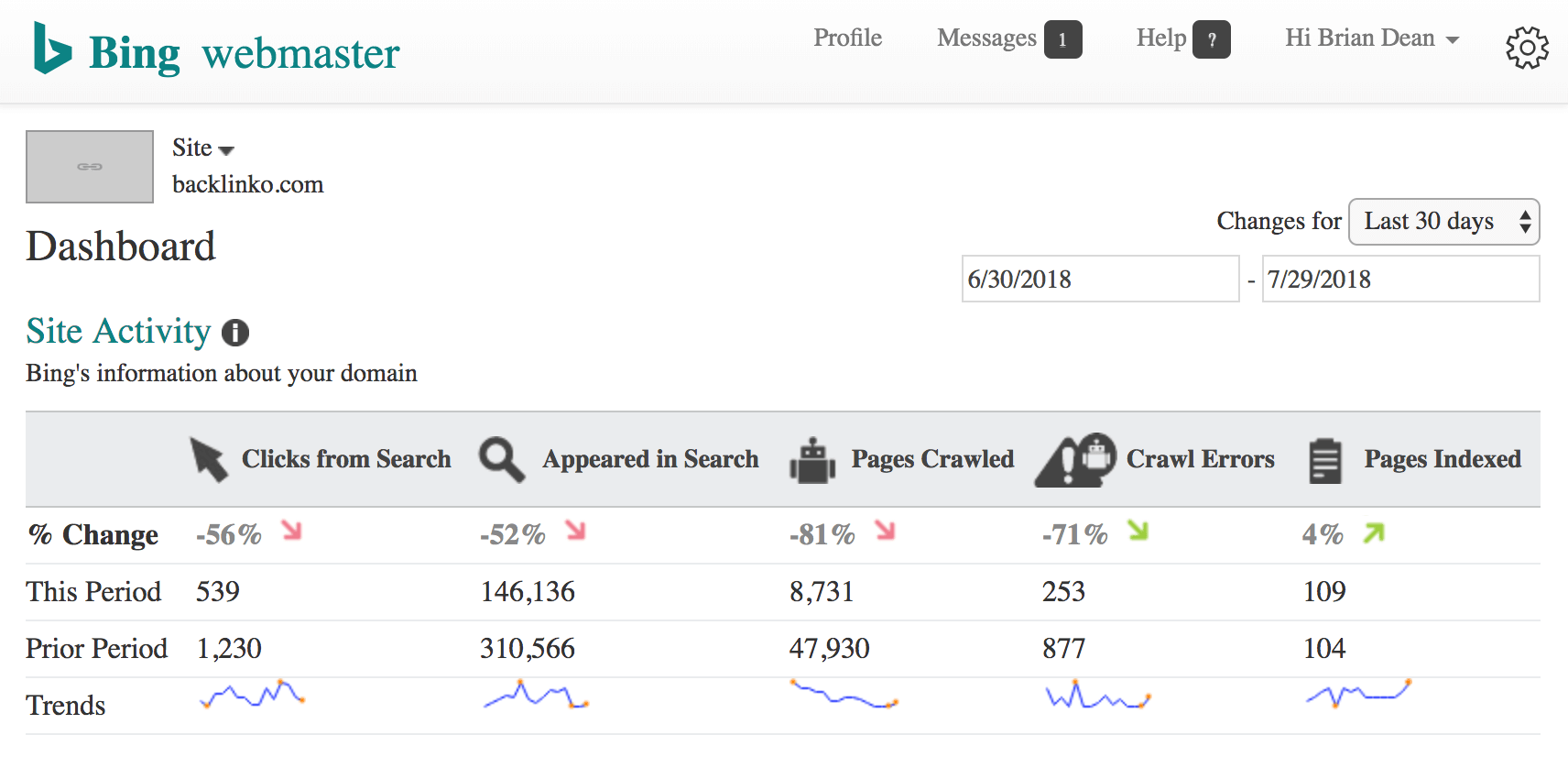
Best Feature: Keyword Research Tool
Get keyword ideas (and data) straight from Bing.
And unlike the Google Keyword Planner, the data from Bing is strictly for organic search (not Bing PPC or Adwords).
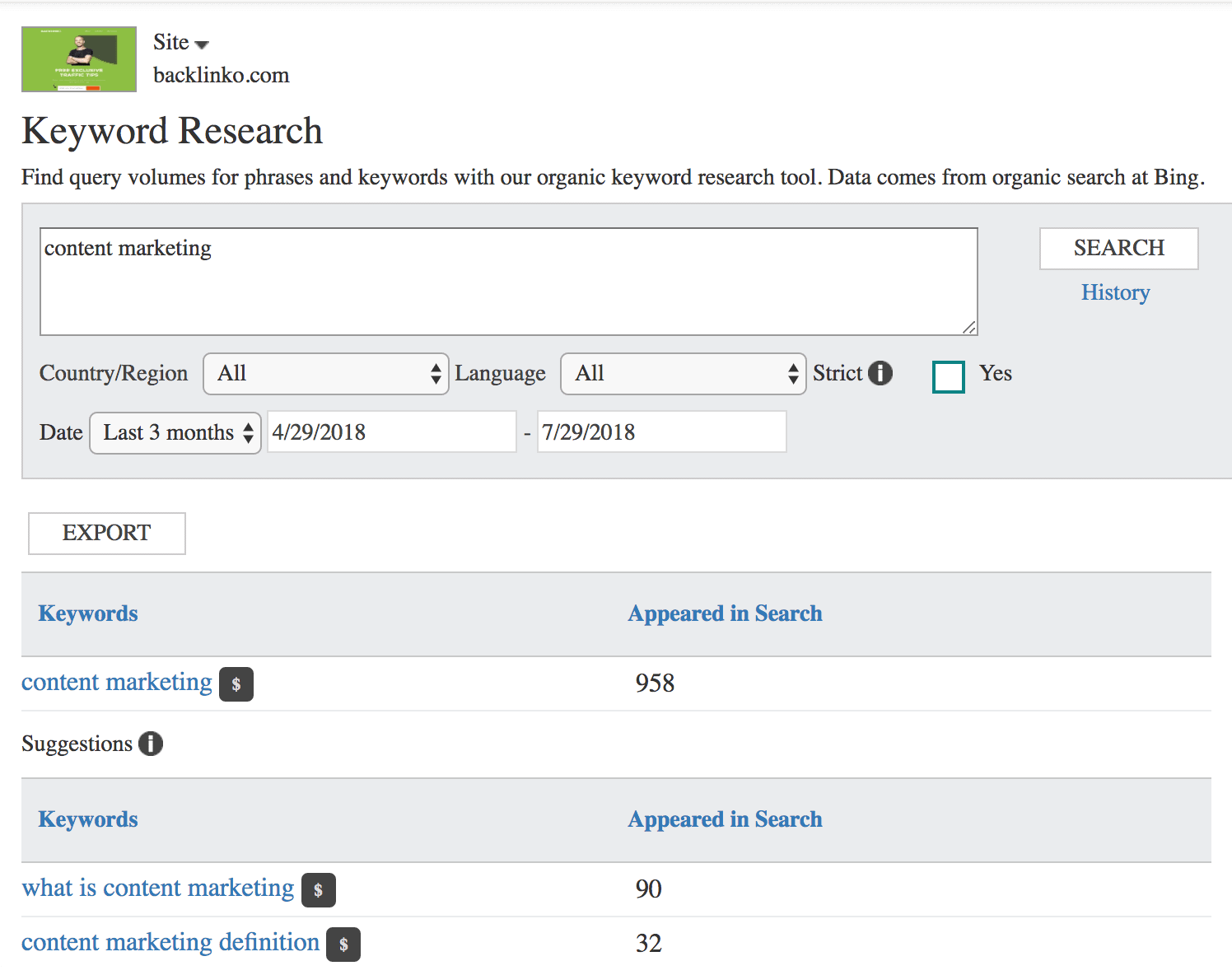
38. Dareboost
Analyze your site for speed, SEO, security and more.
Dareboost isn’t strictly an SEO tool.
But it does analyze your site for things that indirectly impact SEO, like your site’s loading speed and security.
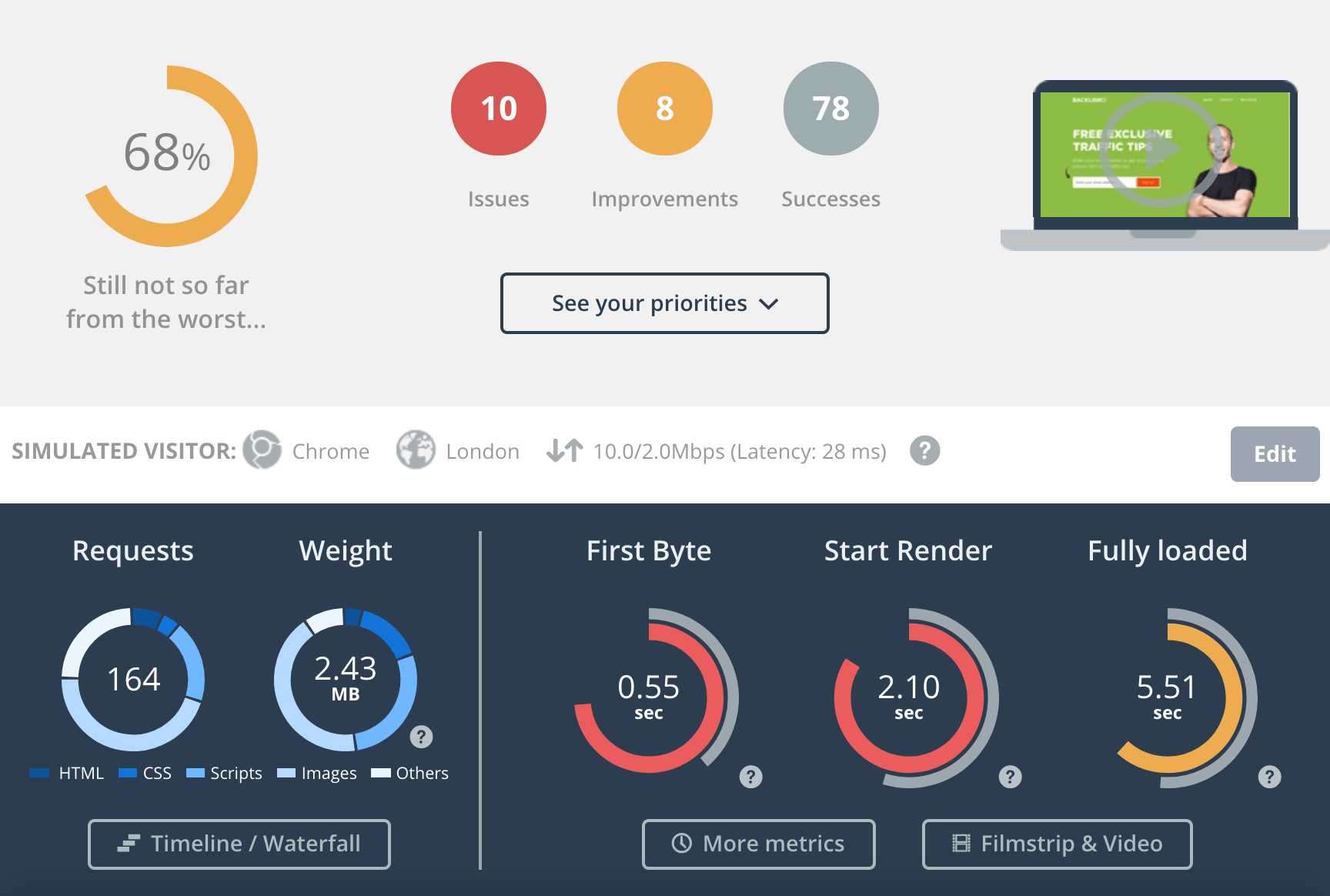
Best Feature: Priorities
Let’s you know where to start first. Helpful if you’re strapped for time.
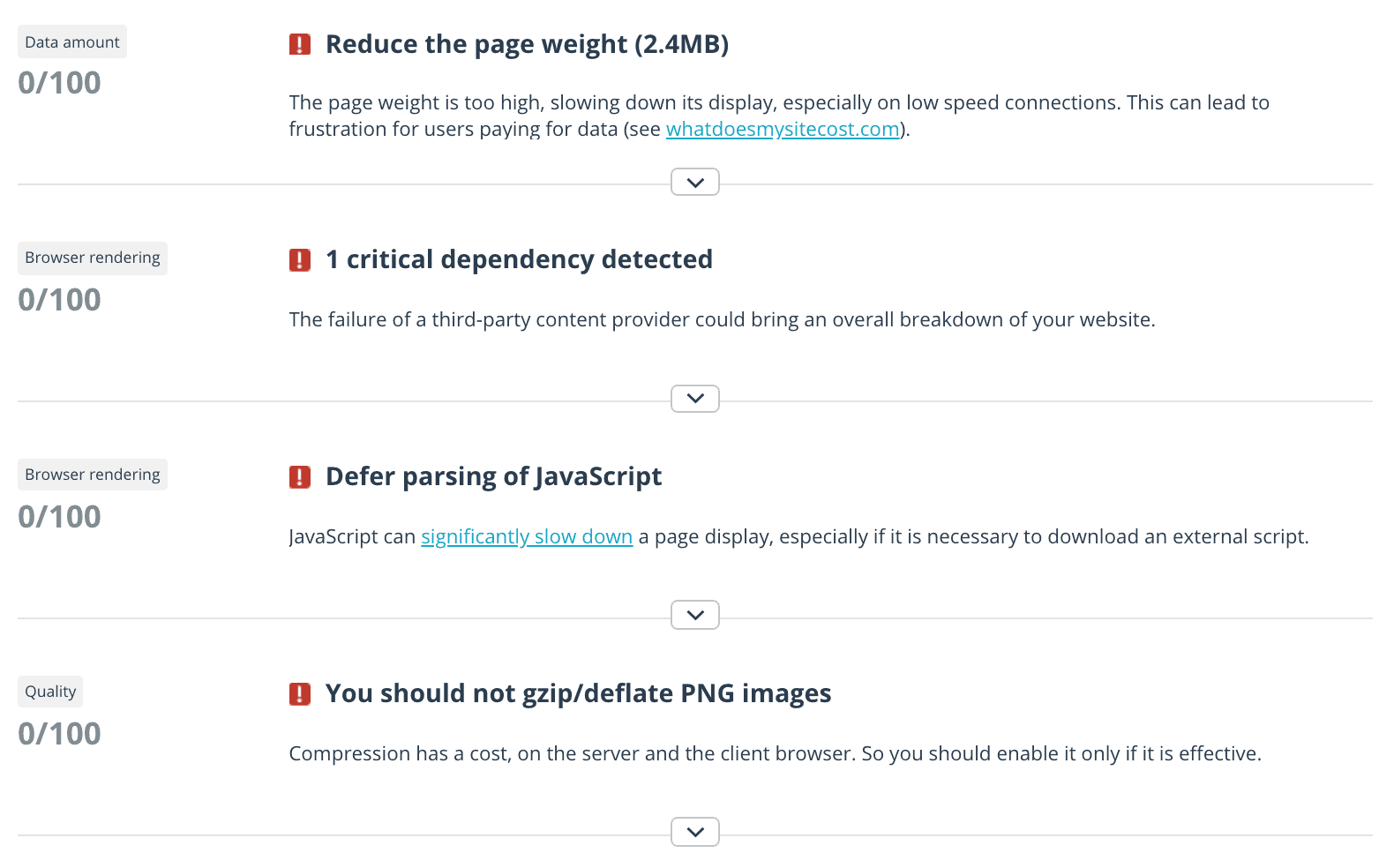
39. Siteliner
Get a full SEO report for free.
Siteliner scans your site for SEO problems (like blocked pages, messed up redirects and broken links).
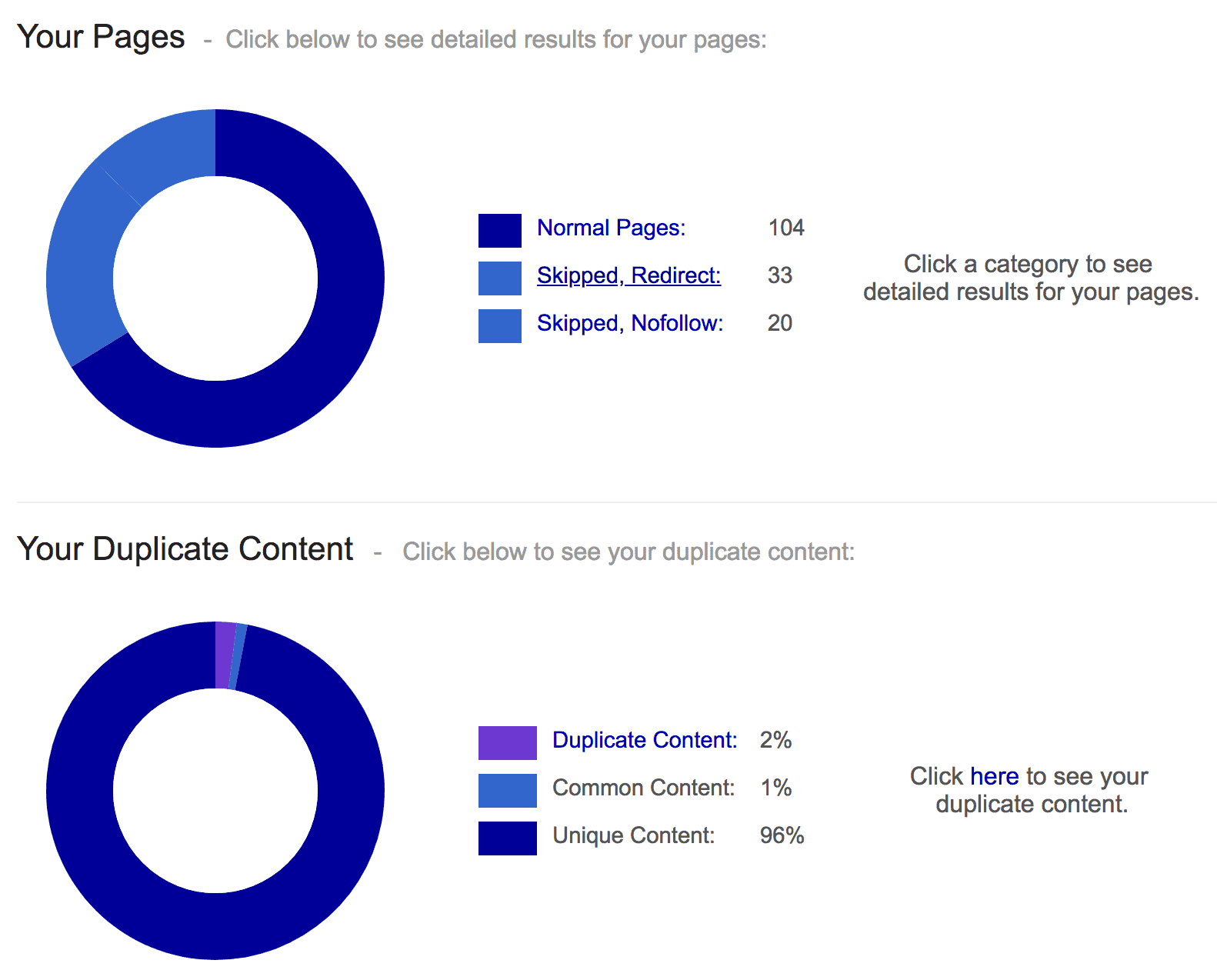
Best Feature: Comparison with Other Sites
This lets you compare your site’s loading speed and page size to other site’s in Siteliner’s database. Helpful for benchmarking.
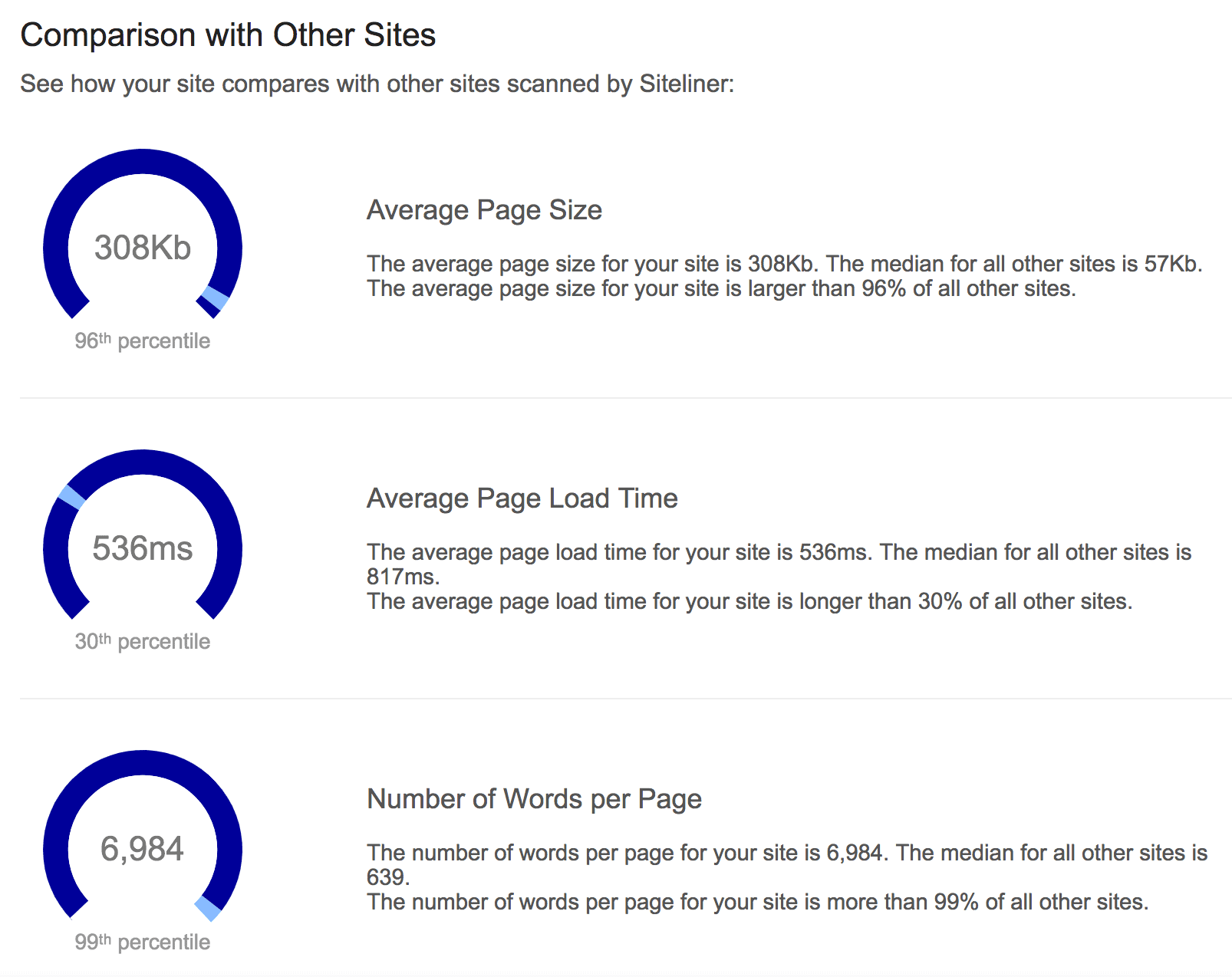
40. KWFinder
No-nonsense keyword research tool.
The best part of KWFinder is how darn easy it is to use.
But don’t let this fool you into thinking KWFinder isn’t powerful. It’s a legit keyword tool that lots of pros use.
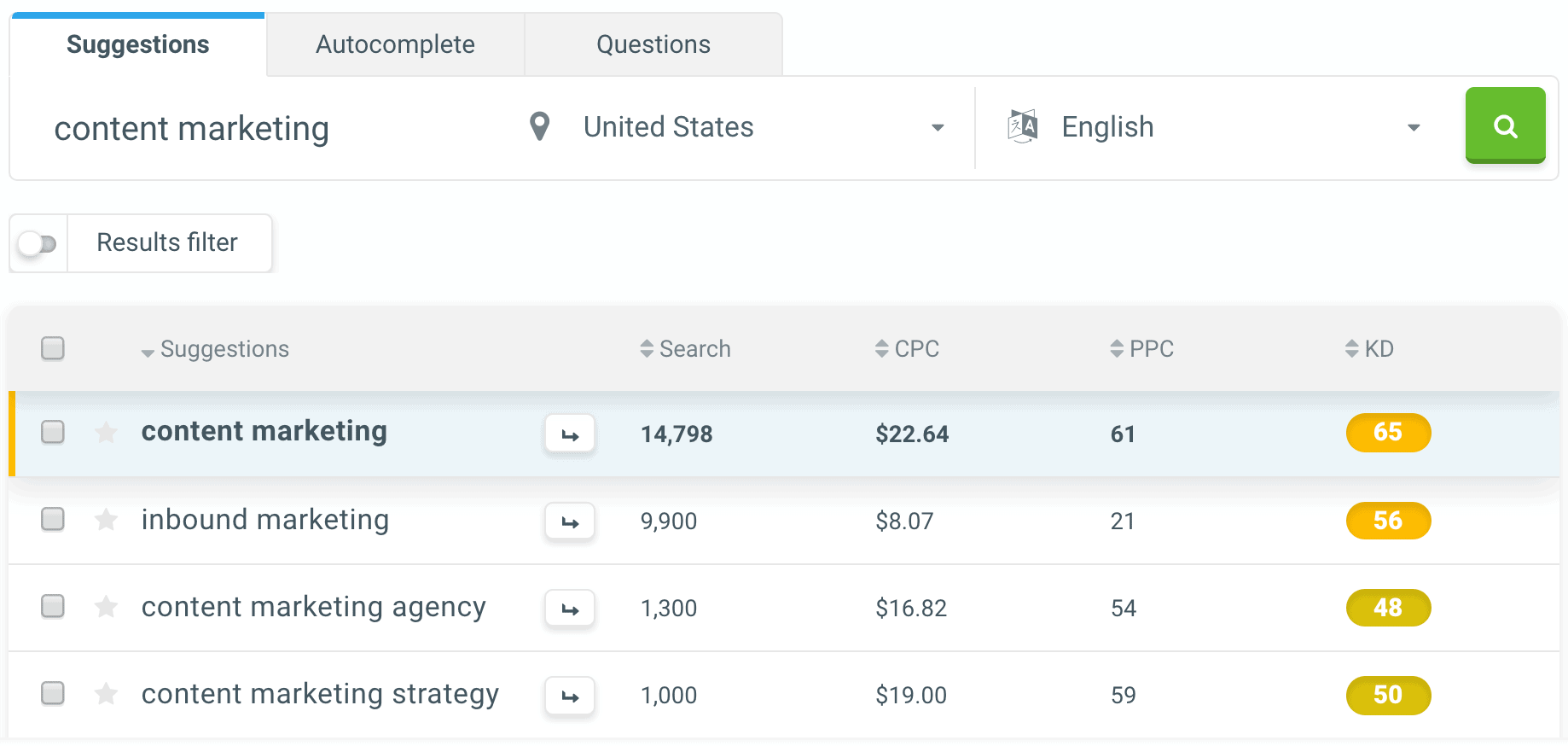
Best Feature: LPS
LPS=Link Profile Strength.
This feature basically tells you how many links you’ll need to rank for that keyword.
So if you find a keyword that has a LPS of 50+, you know that you’ll need to do some serious link building to rank for that term.
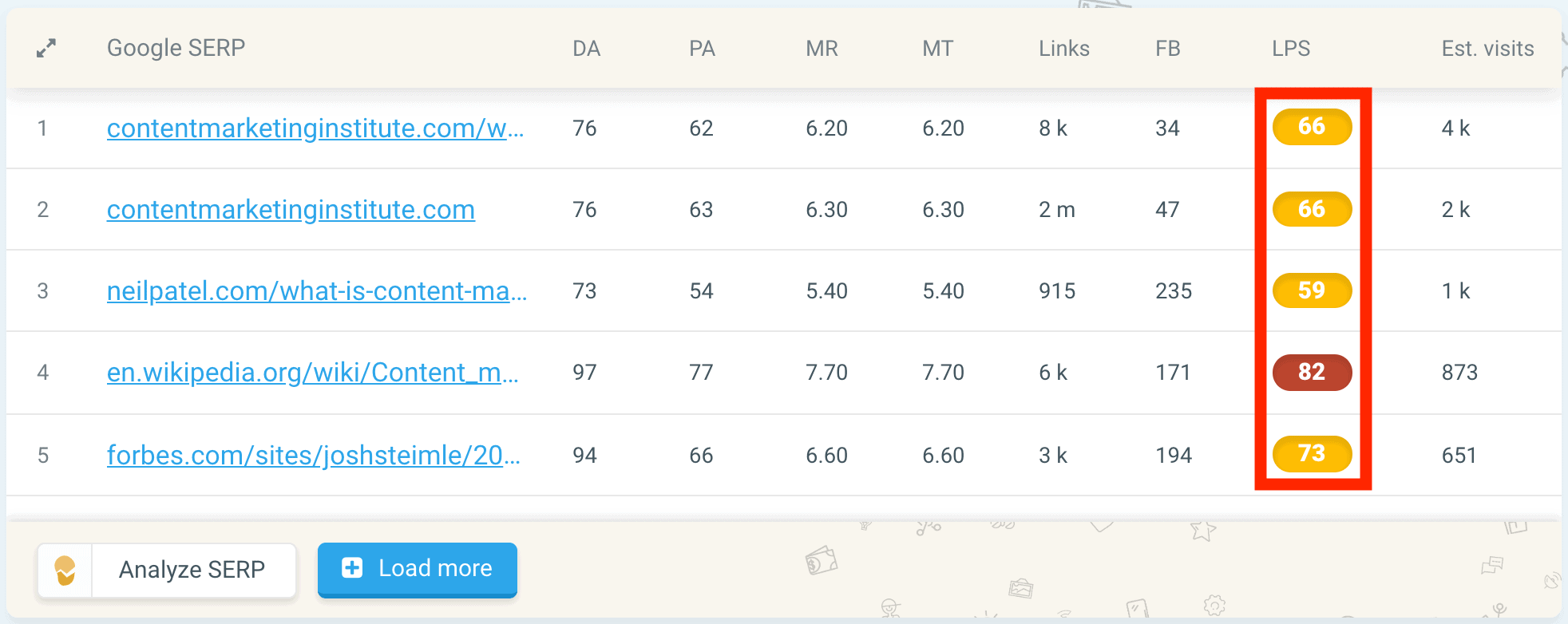
41. People Also Ask
This free tool pulls questions that appear in the “People Also Ask” section of Google’s search results.
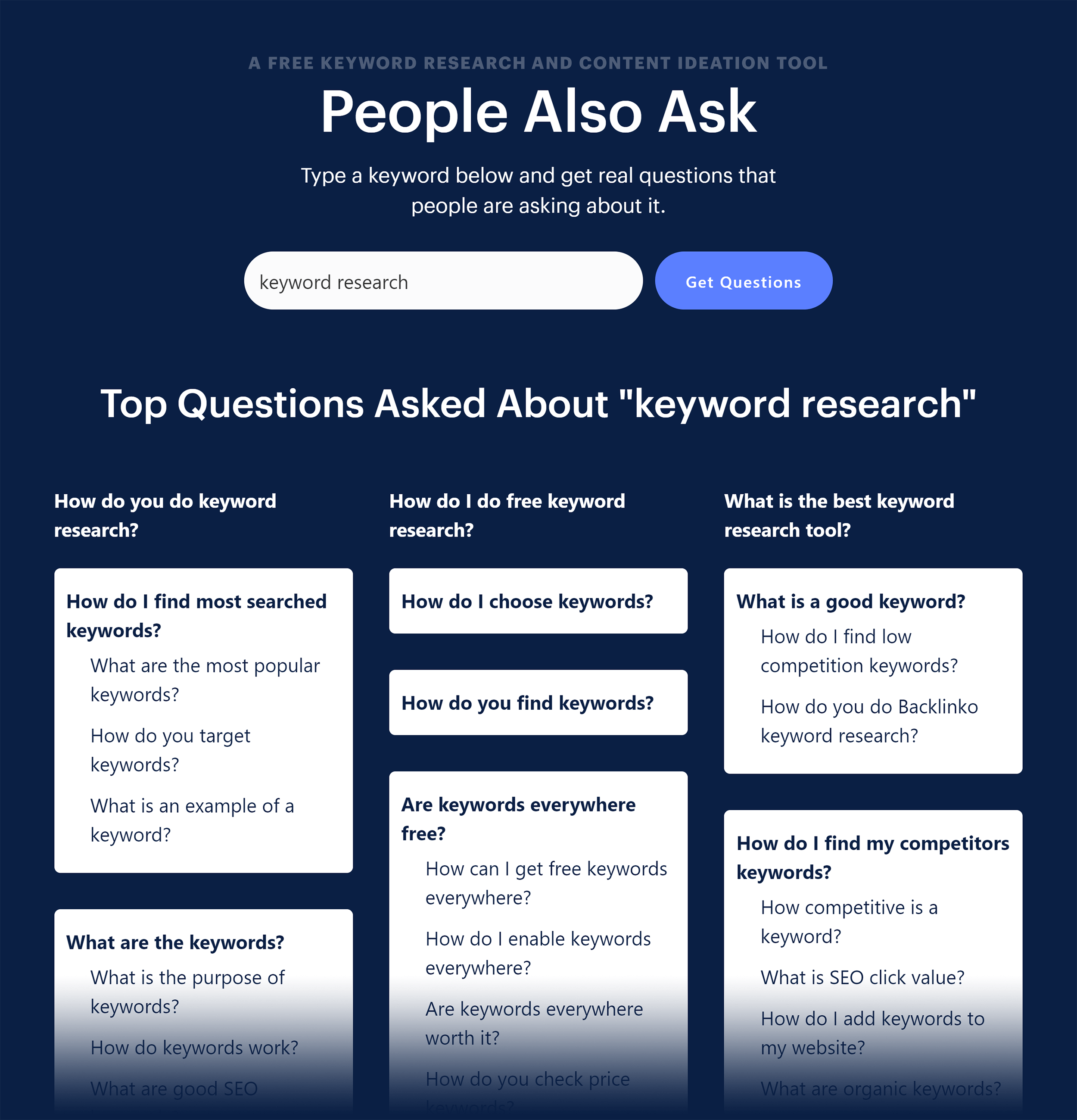
My only gripe with the tool is that it takes a while for the results to load. But I understand that’s because it has to actually run the search and grab questions from the PAA box. Which takes a while.
Overall, a very cool tool for finding question keywords.
Best Feature: Related Questions
People Also Ask shows you questions that you’d usually have to get by manually clicking on the PAA box in the SERPs.
For example, one of the questions the tool showed me was “What is a good keyword?”. And I also got a handful of questions that were closely related to the original question.

Bonus #1. Bulk Google Rank Checker
Simple and accurate rank checker tool.
If you want to see where you rank for a specific keyword in Google, you definitely want to use a rank tracking tool.
This free keyword tool makes the process a cinch (and you can check up to 10 keywords for free).
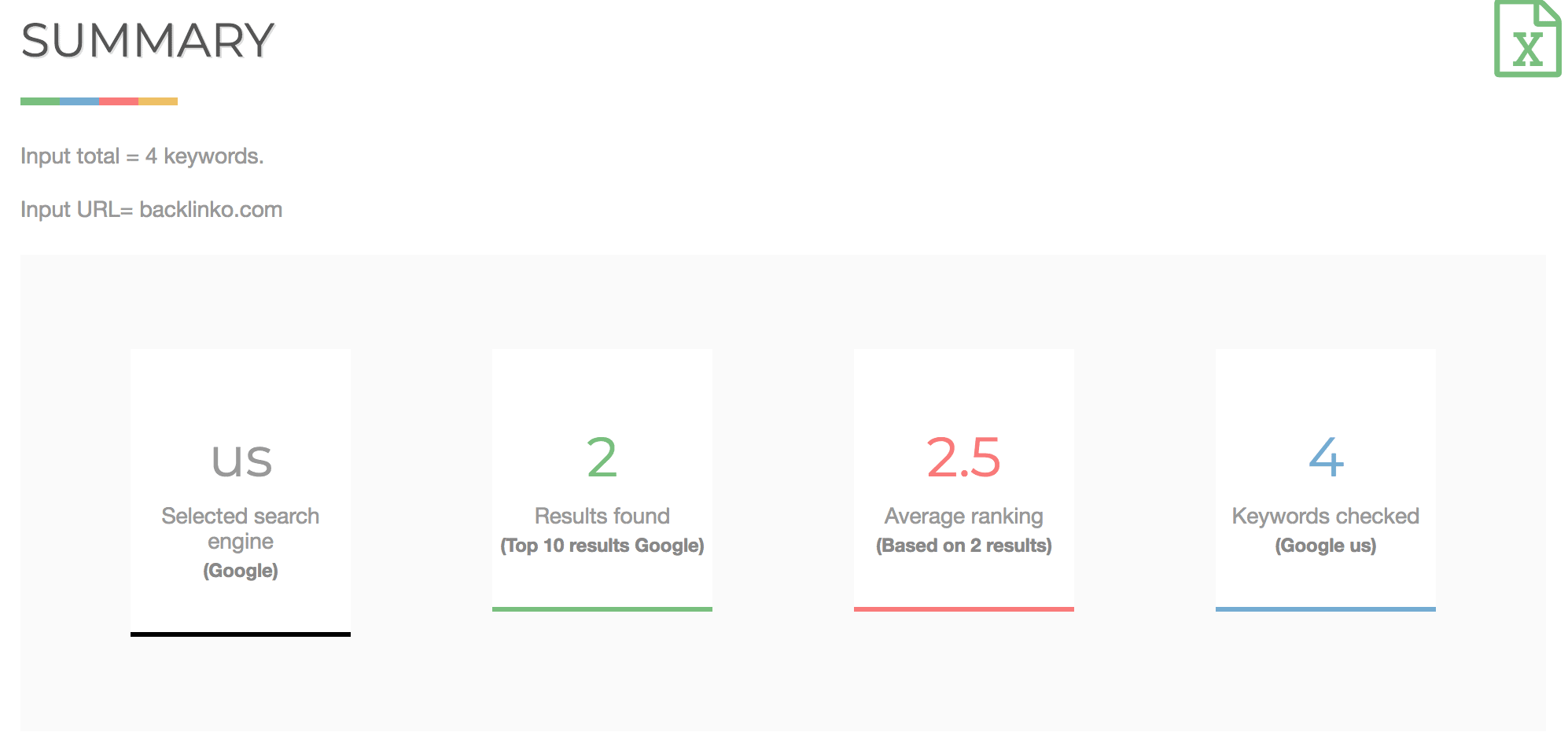
Best Feature: Search Engine Rankings
See where you rank in the SERPs… and where your competitors rank.
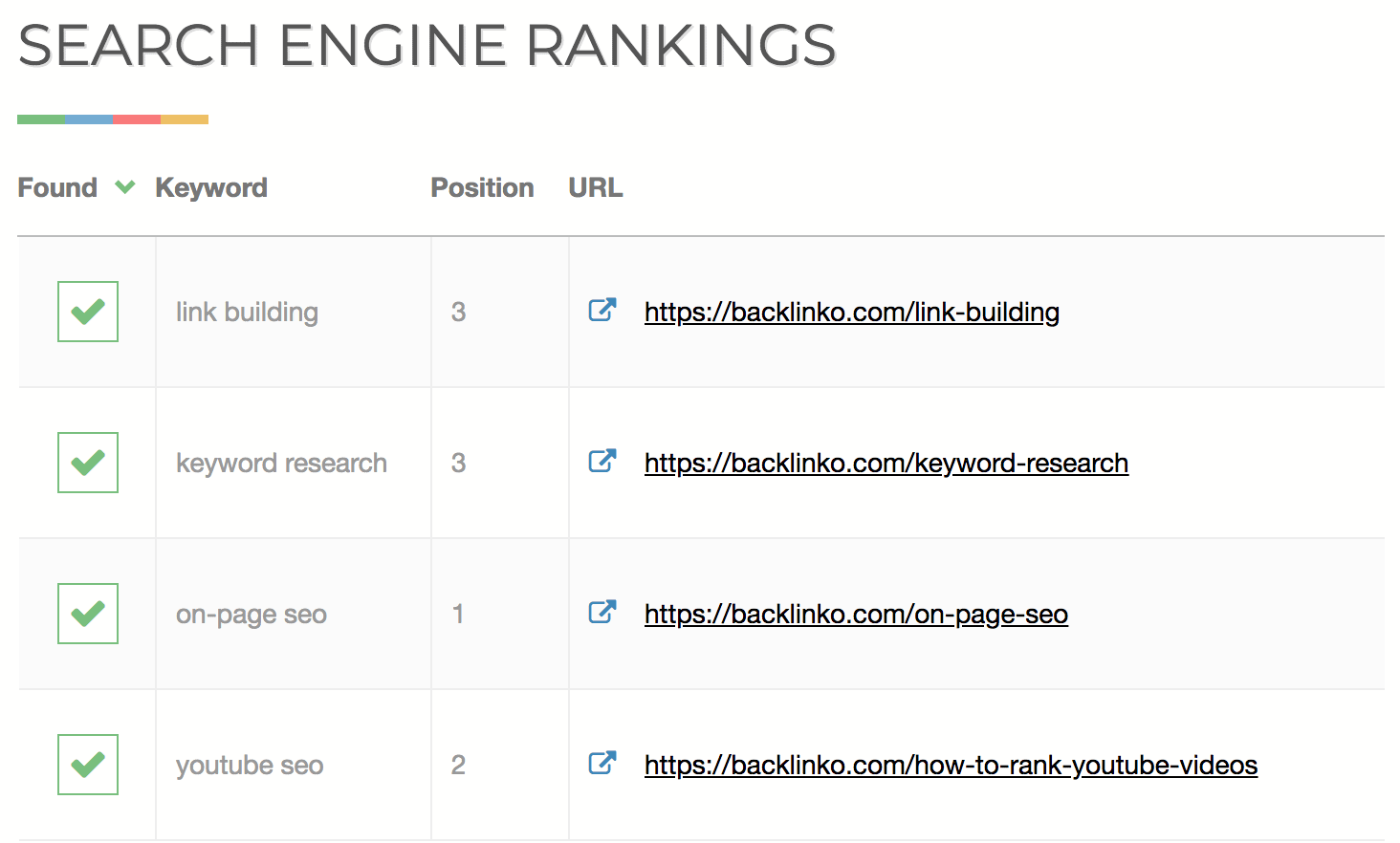
Bonus #2. LSI Graph
Advanced content optimization.
LSI keywords can help take your on-page SEO to the next level.
And that’s exactly what LSIGraph is designed to do: it creates a list of LSI keywords that you can sprinkle into your content.
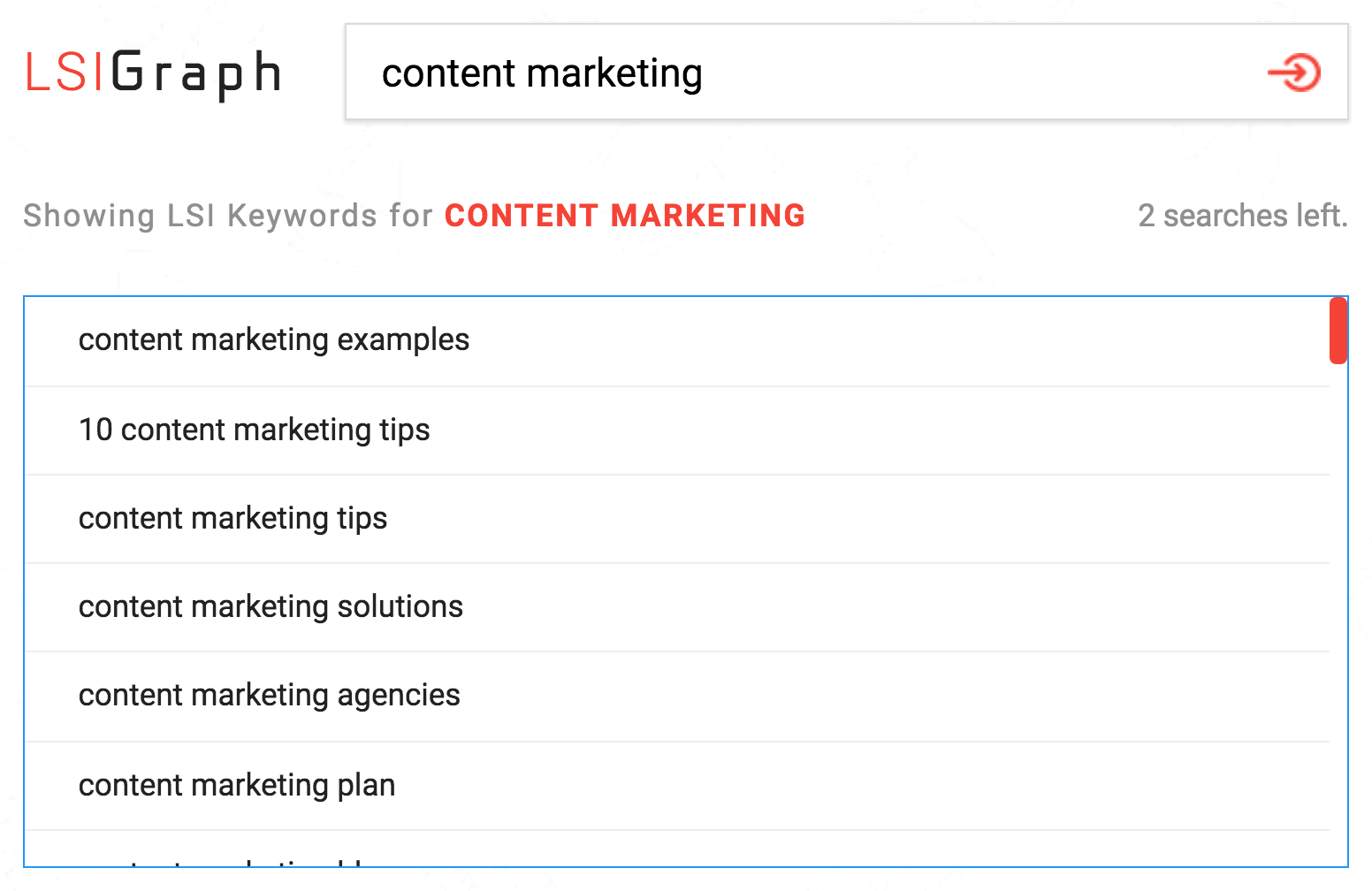
Best Feature: Analysis
Analysis lets you dig deep on an LSI keyword from your list. That way, you can find even MORE awesome LSI keywords to use.
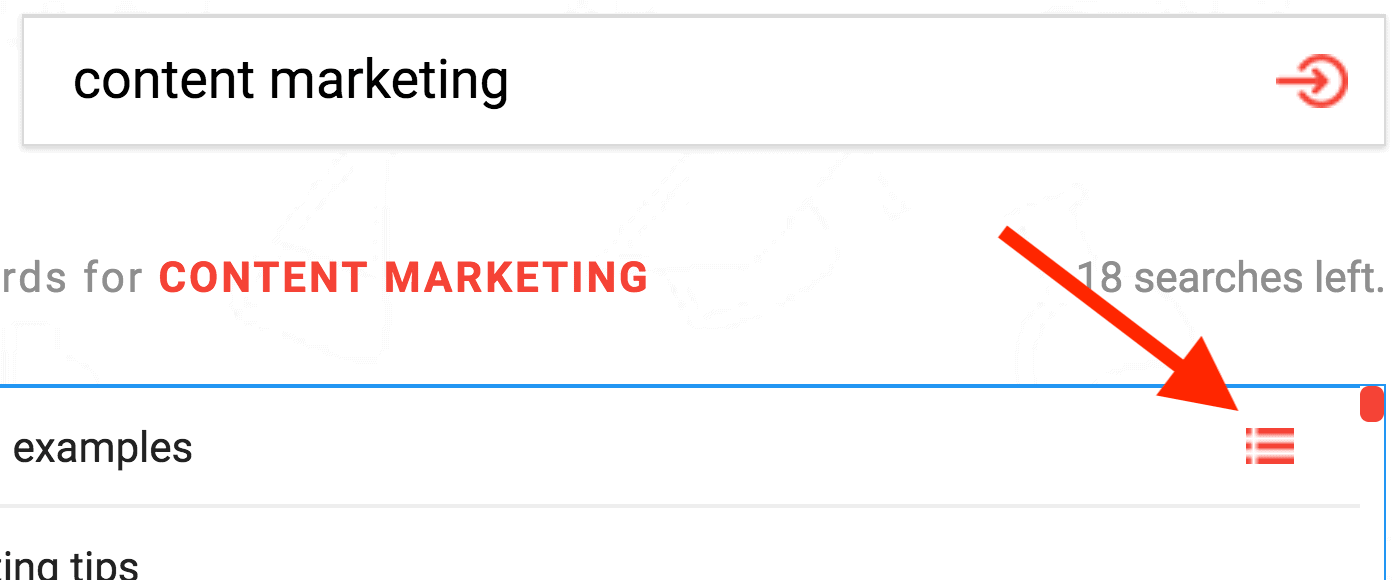
Anything I Missed?
So those are my favorite free SEO tools.
And now I’d like to hear from you:
Are there any tools that you love… but didn’t see on this list?
Or maybe you have a question.
Either way, let me know by leaving a comment below right now.